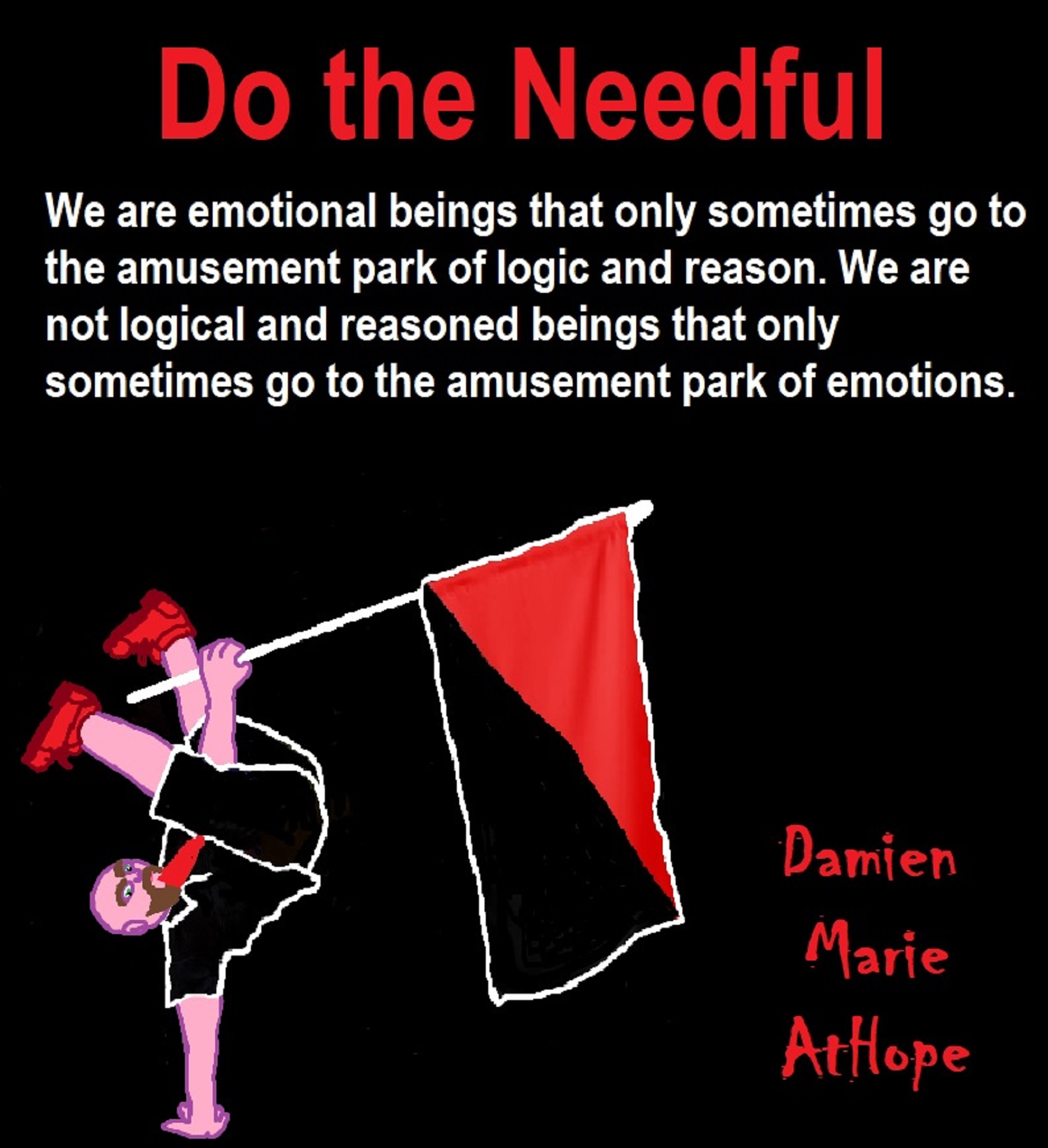
Seeing real need?
I think back on my life seeing how much time I have put into thinking about things/or wants I believed I needed in the moment, instead of on what I need to do to be a person of quality. I have stopped such mindless indifference and seek lasting things only an aware humanity can produce I see the true need to be a person of quality, not in one thing but as a way I live my life. I want a value-drivenSeeing real need?
I think back on my life seeing how much time I have put into thinking about things/or wants I believed I needed in the moment, instead of on what I need to do to be a person of quality. I have stopped such mindless indifference and seek lasting things only an aware humanity can produce I see the true need to be a person of quality, not in one thing but as a way I live my life. I want a value-driven life of meaning, not simply thinking about things/or wants I believed I needed in the moment.
We rise by helping each other.
Godless because I think, Humanist because I feel, and Anarchist because shit needs to change!
Equality is a virtue, that ethical prosocial behavior, we do to honor the dignity of others.
Equality, to me, is not a status one must earn, it is a behavior all deserve.
One Word
If I could only offer one word, the last one you heard in your life, would I really spend it on a word that was mean, hateful, or vicious? Would my words change in my life if there was a limit on them too? I can only express my thoughts for such a short time here on earth, so I see, that I must pick my words much more carefully. I just wish to be a person of value, with a high ethical character, who is guided by thoughts of compassion and behaviors of kindness. Love is my one word.
“Damien, you are an anarchist so you don’t like rules.”
I am fine with rules that are universal ethics guided and dignity respecting, confirmed by the strong acknowledging of everyone as equal in freedom and rights. And the most foundational right is one’s self-ownership/body-autonomy/self-sovereignty due to all fellow human beings. What I am against is rulers or any non-universal ethics guided and dignity respecting laws.
Anarchist Outreach?
I do anarchist outreach to non-anarchists, I have had non-anarchists share and like my stuff, even some of my anarchist stuff as I explain the values and thinking in a way they feel they can relate to and thus become more open to anarchism.
I want to help bring anarchist thinking to the world. I have inspired several people to become anarchists and this is a goal I hope for. I appreciate others’ thoughts and questions as well as because many people have errors in understanding anarchism.
I am trying to make them more like us anarchists and why others would want to look into anarchism. Anarchism for the win. We rise by helping each other.

#AntiCapitalism
Never underestimate the deep levels of malevolent greed the wealthy have and commonly act on, at the clear detriment of the Earth and Humanity. Heartlessness is only their appetizer. If humanity were a sinking ship, they would only save those who could pay the most… Our Earth is being killed and humanity is starved to the edge of death. But they only ask, “What are the profits?” The stolen “labor-value” due to so many…
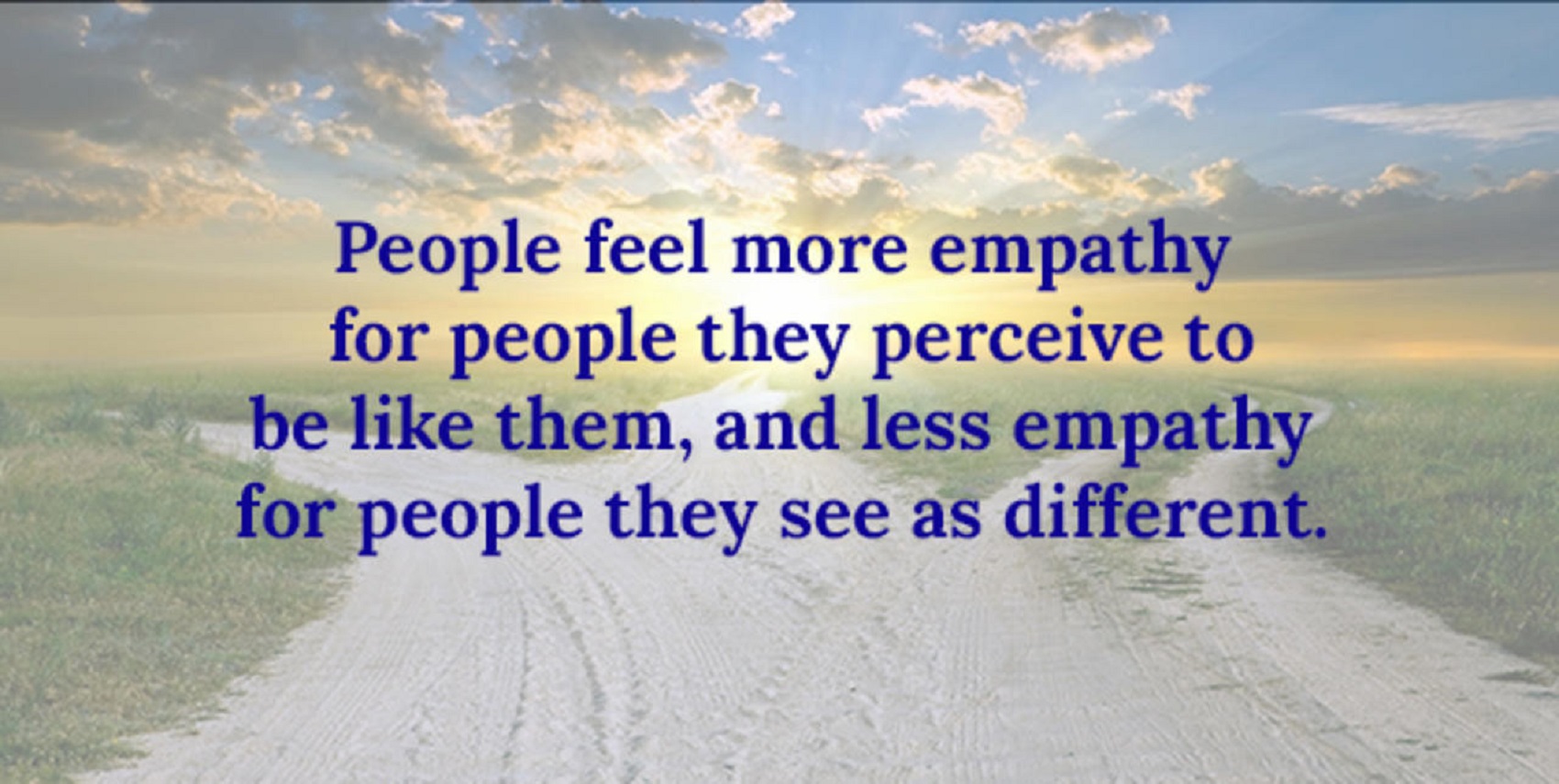
“People feel more empathy for people they perceive to be like them, and less empathy for people they see as different.”
I see people for who they are, fellow dignity beings, just like me…
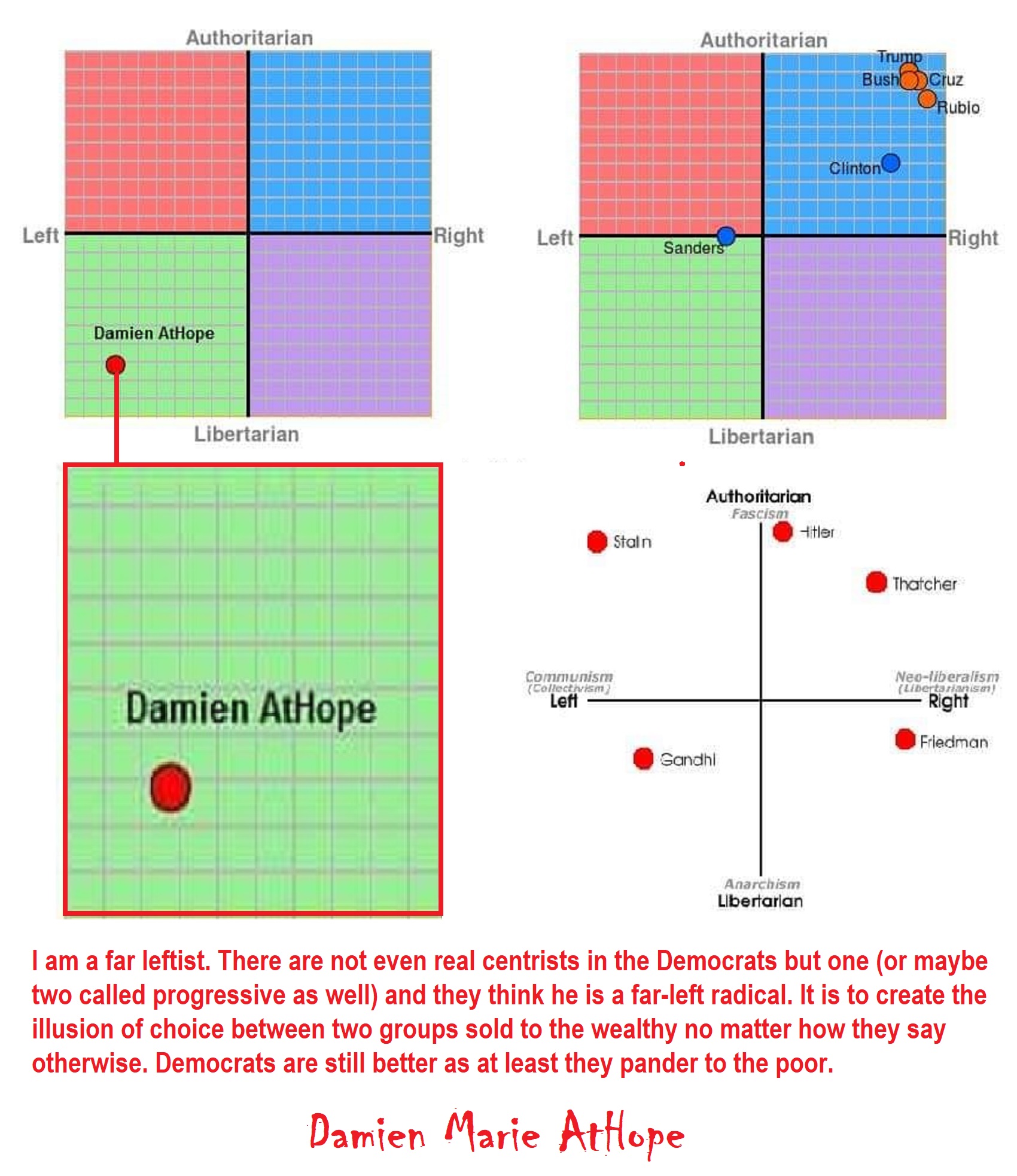
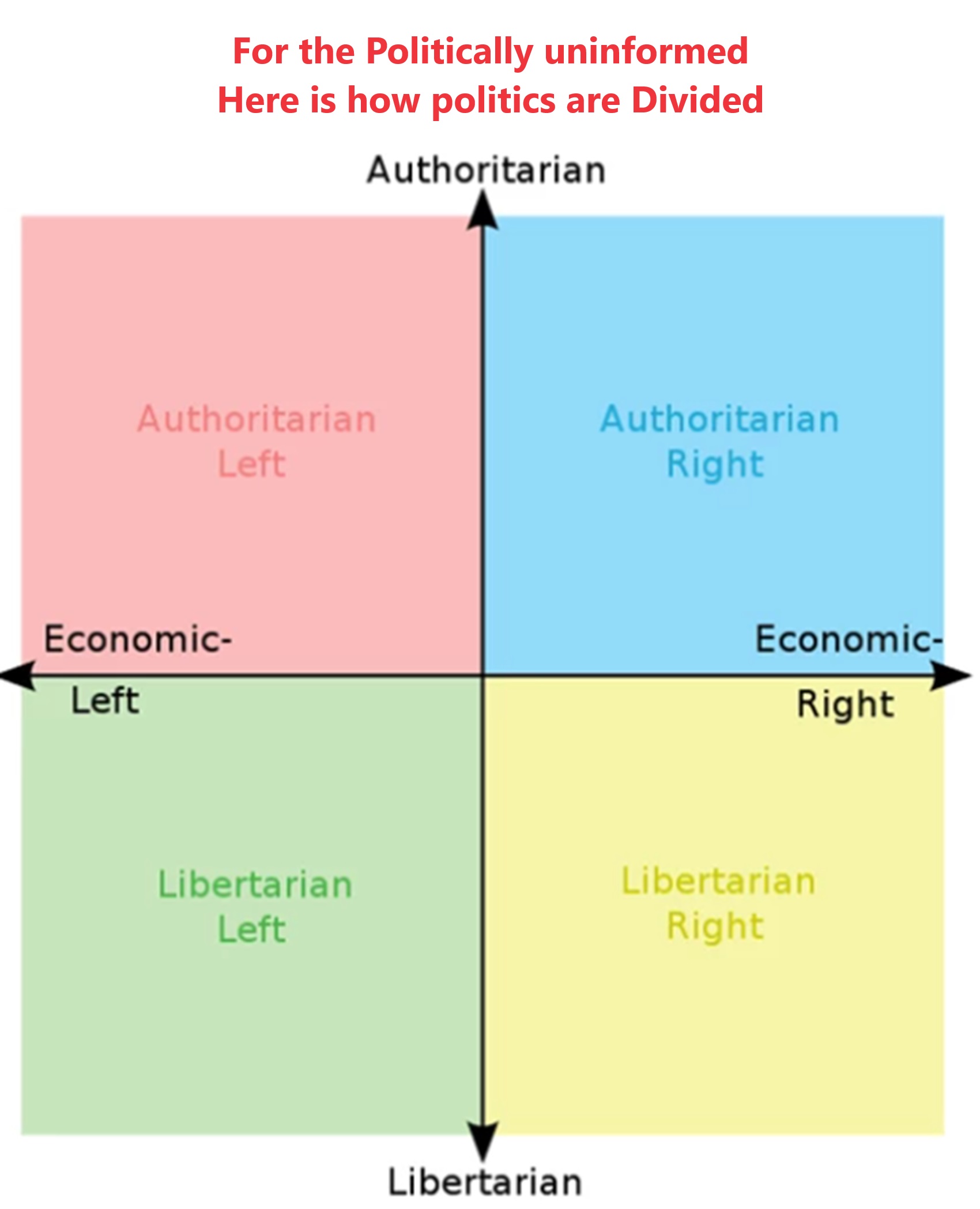
“Damien, you need to find a different word than “libertarian”. That term has been corrupted and co-opted by the right-wing trying to disguise themselves as “libertarians”, rather than the fascists they actually are.” – Commentor
My response, “Libertarian” was considered a leftist thinking from the 1800s, and only rightist in 1950 mainly limited to America but later spread elsewhere. I call myself an anarchist-socialist or anarcho-humanist, I am anti-authoritarianism.
“I think by and large Eugenia is right that the term was co-opted by the right and has been distorted. I however refuse to let them have it. The term libertarian is supposed to imply a value of freedom and autonomy and right-wingers will never stop being dishonest.” – Cory Johnston(he/him) @Skepticallefty
Hate is a thing we find everywhere?
Hate is a thing we find everywhere, at times in one’s own mind, where we forget to care. Hate left unchecked can entangle our reason and stifles our sense of care. The wall of capitalism greed is crushing humanity. Thus, I justifiably hate capitalism. But this hate of oppression and inequality is not a hate of people, we must maintain the difference.
I hate abuse!
Often the scars others make in a moment, we end up having to suffer through for a lifetime.
Sing a Beautiful Song
Here we all sit amongst the peoples of the world, yes among the good and bad. May I be held amongst the chorus of the good a goal all champions of humanity should. Yes, may we all see that the song of our lives is but an expression of theatrical performance that like musical notes fill the narrative voice in our behaviors as well as with the people around us. Yes, the ones we interact and the ones we only secondarily influence feel this music of actions may it be a beautiful song of thoughtfulness, compassion, understanding, support, kindness, and love. Peace and harmony are better championed in thoughtfulness, understanding, and kindness than by force, false impression, and thoughtlessness. When we fix our behaviors to the positive, we often reap the reward of adding positiveness all around us. This set of positive behaviors empowers our efforts to fix or at least better deal with the troubling situations of life.
I did not turn atheist until 35 and around that time I realized, that not just my religious beliefs were a lie, but my morality was wrong as well. And a thinking change occurred in me, to where I went from a strong rightist to a strong far leftist anarchist socialist.
We must not let the negative hateful people change us, so we are like them, to do so would be like we have lost before we start as then what are we fighting to protect if not a kinder world where we all can live in peace?
I see, if everyone had to earn my kindness I would be kind to few, rather I see I have an honor in how I am, and how I behave, and I don’t easily give up my honor as a person of value. We must come to see that education is both a light of hope and a path to our freedom.
Life requires we learn and understand, because what we don’t understand we too often come to fear, and what we fear we often learn to hate, and that which we hate we often seek to destroy.
Thus, we need to learn so we can overcome the dangers of fear. I desire to give back to help others and I wish to make a difference in others’ lives. I wish to bring about change in myself and others. I wish to be bold in what I believe in and to match my actions with my words.
When were you Radicalized?
I turned atheist, then inspired my brother to become an atheist, but everyone else in my family is a devoted Christian; even working in/with churches, being pastors/youth pastors, etc. I was radicalized when I turned atheist in 2006 at 35 years old and started thinking for myself. I was a rightist republican Christian, now an atheist leftist socialist anarchist. Every anarchist finds their own reason for being anarchist, for me it was a deeply ethical choice. Conservative? No thanks, I quit that cult of selfishness. And news flash Democrats are actually on the right spectrum of political thinking, but in America, they are lied to and think they are on the left yet many look unfavorably to actual leftists. What I mean by “my vote does not matter” is that the two political parties are wealthy elites that do more for themselves, big donors, powerful, wealthy, big business, lobbyists, but if not too inconvenient they may work a little for the rest of us at about 3% of our interests. I want an educational evolution as revolution, but when you make humanity hindered, and peaceful revolution impossible, it may make violent revolution enviable.
No longer an Unthoughtful Afterworldsman?
“Damien, why is atheism a life-freeing revelation as you state?” – Questioner
My response, No more sin, and a new connectedness to this world, and all people as I was no longer an unthoughtful afterworldsman/afterlife-thinker.
Princeton University study: Public opinion has “near-zero” impact on U.S. law.
“Study: Congress literally doesn’t care what you think, by looking at more than 20 years’ worth of data answers a simple question: Does the government represent the people? Well, No! Their study took data from nearly 2000 public opinion surveys and compared it to the policies that ended up becoming law. In other words, they compared what the public wanted to what the government actually did. What they found was extremely unsettling: The opinions of 90% of Americans have essentially no impact at all. It’s a vicious cycle of legalized corruption. As the cost of winning elections explodes, politicians of both political parties become ever more dependent on the tiny slice of the population who can bankroll their campaigns. Our elected officials spend 30-70% of their time in office fundraising for the next election. When they’re not fundraising, they have no choice but to make sure the laws they pass keep their major donors happy — or they won’t be able to run in the next election. Until it’s addressed, corruption will continue to block progress on every issue.” ref
“More than half of those in Congress are millionaires. Much of the wealth in Congress is concentrated at the top. The top 10 percent of the wealthiest lawmakers have three times more wealth than the bottom 90 percent.” ref
Federal cases against recent members of Congress
“These are federal cases against current or former federal lawmakers:
Former Rep. Jeff Fortenberry, a Republican from Nebraska – Found guilty in 2022 of three felonies in a case that centered on campaign contributions.
Former Rep. TJ Cox, a Democrat from California – Still awaiting trial after his 2022 indictment, including for fraudulent campaign contributions.
Former Rep. Duncan Hunter, a Republican from California – Sentenced to 11 months in prison for misusing campaign funds, but later pardoned by Trump.
Former Rep. Chris Collins, a Republican from New York – Sentenced to 26 months in prison for insider trading, but later pardoned by Trump.
Former Rep. Corrine Brown, a Democrat from Florida – Served more than two years for setting up a false charity.
Former Rep. Steve Stockman, a Republican from Texas – Sentenced to 10 years in prison for multiple felonies including fraud and money laundering, but pardoned by Trump after serving part of his sentence.
Former Rep. Anthony Weiner, a Democrat from New York – Sentenced to 21 months in prison for sexting with a minor.
Former Rep. Chaka Fattah, a Democrat from Pennsylvania – Sentenced to 10 years in prison for racketeering, fraud and money laundering.
Former Rep. Michael Grimm, a Republican from New York – Pleaded guilty and sentenced to eight months in prison for tax evasion. Attempted to run again for Congress.
Former Rep. Rick Renzi, a Republican from Arizona – Sentenced to three years for corruption. Pardoned by Trump after he served time.
Sen. Bob Menendez, a Democrat from New Jersey – Acquitted by a judge and other charges dismissed after a jury deadlocked in a bribery case.
Former Rep. Jesse Jackson Jr., a Democrat from Illinois – Sentenced to 30 months in prison for misusing campaign funds.
Former Sen. Ted Stevens, a Republican from Alaska – Conviction by jury for lying on ethics forms was later set aside over allegations of prosecutorial misconduct.
Former Rep. William Jefferson, a Democrat from Louisiana – Sentenced to 13 years for corruption and soliciting bribes. There was video of him taking $100,000 from an African official. Served multiple years in prison, but many of the charges were later vacated by a judge based on a US Supreme Court decision.
Former Rep. Bob Ney, a Republican from Ohio – Sentenced to 30 months after a guilty plea for corruption tied to disgraced lobbyist Jack Abramoff.
Former Rep. Randy “Duke” Cunningham, a Republican from California – Sentenced to eight years in prison after a guilty plea for bribery. Later pardoned by Trump.
Former Rep. James Traficant, a Democrat from Ohio – Sentenced to eight years in prison for corruption after defending himself during trial. Was later expelled from the House.
Two Republican governors and two Democratic governors have been convicted in federal courts in recent decades:
Former Virginia Gov. Bob McDonnell, a Republican, was convicted for bribery and corruption. But the US Supreme Court changed the rules in corruption and bribery cases when it threw out the case against McDonnell.
Former Illinois Gov. Rod Blagojevich, a Democrat, was convicted for trying to sell his power to appoint a replacement to Barack Obama’s Senate seat. His sentence was later commuted by Trump.
Former Alabama Gov. Don Siegelman, a Democrat, was convicted by a jury of bribery and corruption and was sentenced to more than six years in prison.
Former Illinois Gov. George Ryan, a Republican, was convicted on corruption charges after an FBI sting.” ref
“Democrats Decried Dark Money. Then They Won With It in 2020. “Dark money” became a dirty word, as the left warned of the threat of corruption posed by corporations and billionaires that were spending unlimited sums through loosely regulated nonprofits, which did not disclose their donors’ identities. Then came the 2020 election. The scale of secret spending is such that, even as small donors have become a potent force in politics, undisclosed money dwarfed the 2020 campaign fund-raising of the President race.” ref
Money, power, and the influence of ordinary people in American politics
Americans have long believed that major political donors and special interests have too much influence on politics and that ordinary people have too little influence. Most see voting as the best way for average Americans to impact the direction of the country. However, the belief that there is too much money in politics is widespread. References to the influence of money and concerns about corruption are some of the most frequently cited critiques of the political system, and many Americans see a monetary gain as a reason why most elected officials seek office, to begin with. When it comes to the decisions made by members of Congress, large shares of Americans say major donors, lobbyists, and special interests have too much influence. By contrast, just 9% of adults say the people in lawmakers’ districts have too much influence; that compares with 70% who say the people in their districts have too little influence (19% say they have about the right amount). Americans’ views on which groups have influence on the decisions made by members of Congress are similar across party lines:
- Around eight-in-ten Republicans and Republican-leaning independents (83%) say people who donate a lot of money to campaigns have too much influence on decisions made by members of Congress. A nearly identical share of Democrats and Democratic leaners (80%) say the same.
- Majorities in both parties also say lobbyists, special interests, and large employers in lawmakers’ districts have too much influence.
- Relatively small shares in both parties say people in lawmakers’ districts have too much influence. Nearly identical majorities of Republicans (72%) and Democrats (71%) say they have too little influence.” ref
Anarchism is about non-coercion, non-hierarchy, voluntary associations, and equal humanity.
I feel anarchism is grounded in ethics. So of course it should be part of one’s entire life. Even my relationship style is relationship anarchism. “Relationship anarchy is the application of anarchist principles to intimate relationships. Its values include autonomy, anti-hierarchical practices, anti-normativity, and community interdependence. RA is explicitly anti-amatonormative and anti-mononormative and is commonly, but not always, non-monogamous. This is distinct from polyamory, solo poly, swinging, and other forms of “dating”, which may include structures such as amatonormativity, hierarchy of intimate relationships, and autonomy-limiting rules. It has also been interpreted as a new paradigm in which closeness and autonomy are no longer considered to create dilemmas within a relationship.” ref
I was told by an anarchist nihilist that my being an anarchist humanist made me “Hitler.” I shit you not… What is wrong with people nowadays?
HUMANISM: to me, is relatively the philosophic thinking that humans can solve human problems by human means, without feeling a need to appeal to the likes of holy books, mystical anything, nor the belief in gods or religions. But, instead, aspires to a true belief in humanity, viewing it with a persuasion of equality. This caring realist thinking found in humanism utilizes an unstated assumption or aspiration, to do no harm as much as posable and to do good whenever one can.
How do I feel about Anarchist Nihilism?
I am an axiologist (value theorist/anti-nihilism persuasion) and do not value nihilism and see reasons to disvalue it. I am against unjust chaos supporters/nihilism as they are often anti-humanist as well as anti-civilization.
“Anarcho-Nihilism (AnNihil or AnNil) is an Individualist Anarchist ideology who believes that nothing at all contains objective and fixed meaning or essence, and as such, society, humanism, the state, morals, truth, and dogmas have no basis at all and should be rejected. They see the negation of these constructs as liberation from them. e sees government, family, and law as false constructs that have no real reason to govern the life of the individual, and thinks that the individual should reject false restraints. Anarcho-Nihilism comes from Anarchism and Nihilism, that takes from apathy for authority from anarchism, and negation of all social constructs from nihilism. Modern anarcho-nihilists belongs to post-left anarchists. This ideology has little or no praxis in real life currently, but has modern theorists are Aragorn! and Serafinski (author of Blessed is the Flame). Not much is known about them, as ideology is currently popular in internet, rather than in politics from different reasons, like avoiding authority, organized political action.” ref
“As main Anarcho-Nihilism tenets of ideology, can be considered:
- Pure Negation
- Opposition towards society
- Anti-civilization
- Opposition towards every political system, abolition of politics
- Anti-utopianism
- Anti-economy (including work)
- Opposition towards religion, family, tradition, and morals” ref
Anti-Humanism and Nihilism
“Criticism of humanism as over-idealistic began in the 19th century. For Friedrich Nietzsche, humanism was nothing more than an empty figure of speech – a secular version of theism. Max Stirner expressed a similar position in his book The Ego and Its Own, published several decades before Nietzsche’s work. Nietzsche argues in Genealogy of Morals that human rights exist as a means for the weak to constrain the strong; as such, they do not facilitate the emancipation of life, but instead deny it. Stirner is often seen as one of the forerunners of nihilism, existentialism, psychoanalytic theory, postmodernism, and individualist anarchism. Stirner, whose main philosophical work was The Ego and Its Own, is credited as a major influence in the development of nihilism, existentialism, and post-modernism as well as individualist anarchism, post-anarchism, and post-left anarchy. He also influenced illegalists, feminists, nihilists, and bohemians, as well as fascists, right-libertarians and anarcho-capitalists. Although Stirner was opposed to communism for the same reasons he opposed capitalism, humanism, liberalism, property rights, and nationalism, seeing them as forms of authority over the individual and as purveyors of ideologies he could not reconcile himself with, he has also influenced many anarcho-communists and post-left anarchists.” ref, ref
“Alas, I’ve obviously, overestimated the common ground I can find with esoteric anarcho-nihilists/post-civ folks. lol” – 𝐍𝐢𝐧𝐚 @moonlit_misfit
My response, The common ground with most, if not all nihilism (anti-value theorists), often doesn’t exist for me. If you are anti-humanist and anti-civilization you are not on my side and seem to sound like my enemy instead. As an axiologist (value theorist) I am generally anti-nihilism but if they support humanism or, are not anti to humanism, then maybe OK. But likely not.
*Revolution that divests itself of ethical values thereby lays the foundation of injustice, deceit, and oppression for the future society.” – Emma Goldman (anarchist revolutionary)
*Anarchy is synonymous with Socialism. Because both signify the abolition of exploitation and of the domination of man over man, whether maintained by the force of arms or by the monopolization of the means of life.” – Errico Malatesta (anarchist propagandist and revolutionary socialist)
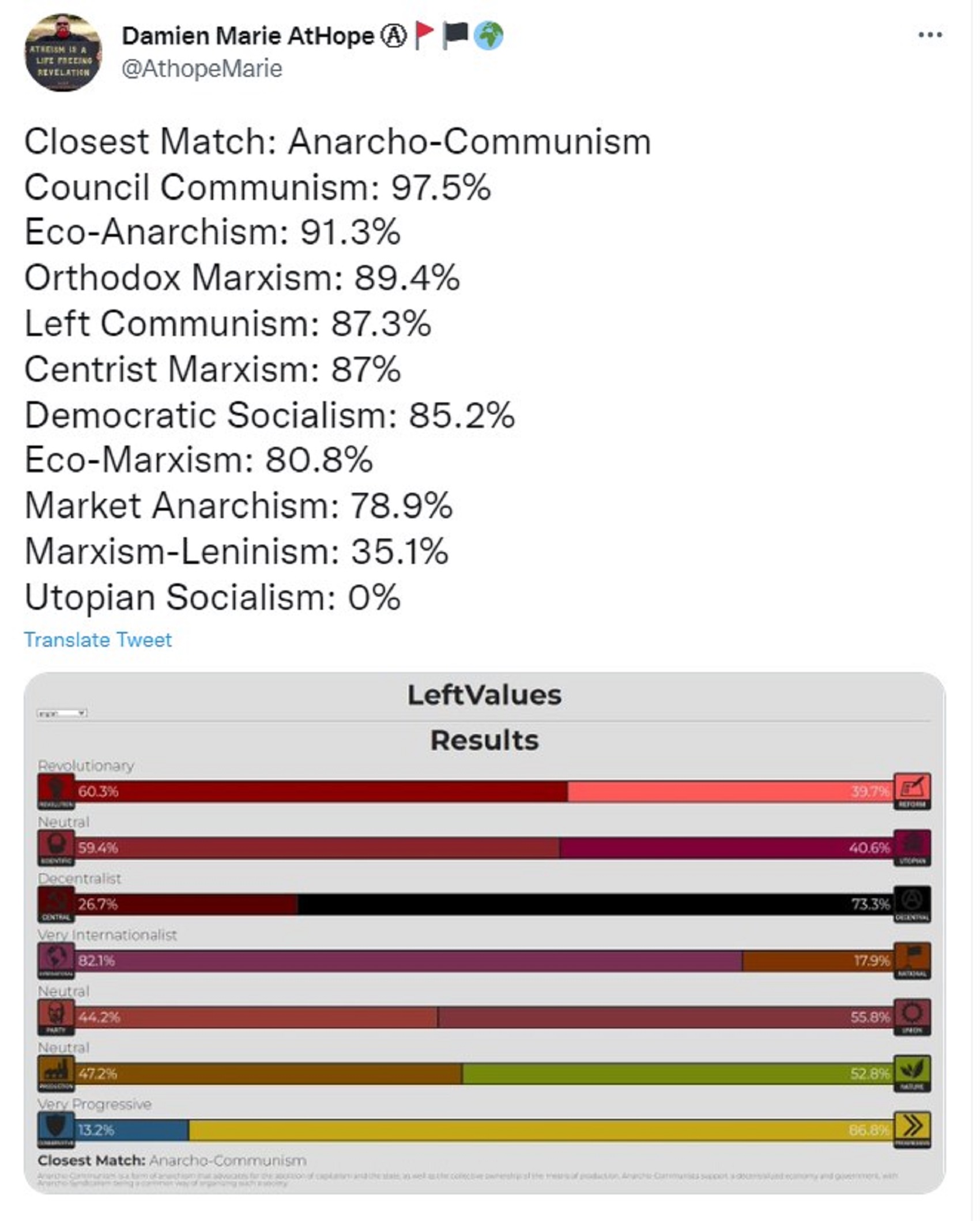
Marx said this or that…
Marx sounds cool on some stuff but I am not a Marxist, I am a socialist anarchist (close to Anarcho-Communism). I call myself an Anarcho-Humanist as humanitarian care and universal ethics, guide me.
I am an Anarchist Socialist:
*Anarchist, the radical idea you own yourself…
*Socialist, the radical idea of sharing…
I will not argue on human rights, other people have them and you don’t get to decide them for them. People own themselves, have self-sovereignty, and/or self-stewardship/bodily autonomy! I wish everyone had their self-sovereignty/self-ownership respected thus their rights respected, which would include things like women’s reproductive rights, LGBTQIA+ rights, etc. Call me whatever you want but my heart cries for all the injustice, hate, and harm in the world. Like an oppressive mountain of vileness, it devours the weak or the ones in great need. This wall of suffering is like a suffocating cry for help, but who will listen? We rise by helping each other. We should look up to all who do activism, you, me, and others alike. We are all a flame but together we are a fire that can light the hope for change. There can be no authoritarian anarchism, just not a thing that can happen, once you add authoritarianism, it is no longer anarchism. To me, the biggest delusion people have about their life is believing governments should ever decide what human rights we can have. We are all born equal in freedom, human rights, and dignity. Self-sovereignty/self-ownership is a human right.
Wage slavery and wage theft committed by a selfish society and its capitalism radicalized me to become a socialist anarchist.
I am Responsible?
I am responsible for my thinking and behaviors. I am responsible to care, as I am not alone and others have value. I am responsible to be a better me, and helping to make a better we, so society is a place of human flourishing for all. I am responsible to ensure a higher ethical awareness than the one found in the society I am from, to improve a better humanity for all. I am responsible to make a better world than I was given and I am starting with me because I am responsible. I have made many mistakes in my life but the most common one is being resistant to change. I wish to be more, to be better, as I desire my openness to change if needed, not letting uncomfortable change hold me back. I have an inquisitive mind, so I am an Atheist. I am a compassionate heart, so I am a Humanist. I see people matter and have value, whereas gods don’t matter and are not valuable. This is because people are real, gods are not. Simply, there is no magic to save us. We must help save ourselves and each other. We are all responsible!
Social Anarchism or Socialist Anarchism
We rise by helping each other. I am a socialist anarchist and I welcome all good humans.
“Social anarchism, also known as left-wing anarchism or socialist anarchism, is the branch of anarchism that sees liberty and social equality as interrelated. It advocates for a social revolution to remove oppressive forms of hierarchy, such as capitalism and the state. In their place, social anarchists encourage social collaboration through mutual aid and envision non-hierarchical forms of social organization, such as voluntary associations. Identified with the socialist tradition of Pierre-Joseph Proudhon, Mikhail Bakunin, and Peter Kropotkin, social anarchism is often contrasted with individualist anarchism, due to the latter’s criticism of socialism.” ref
“Social anarchism is opposed to all forms of social and political power, hierarchy, and oppression, including (but not limited to) the State and capitalism. Social anarchism sees liberty as interconnected with social equality, and considers the maximization of one to be necessary for the maximization of the other. Social anarchism therefore employs a utilitarian ethics, concerning itself with the well-being of all, as it considers each person’s happiness to be equal to those of others. As such, social anarchism seeks to guarantee equal rights to freedom and material security for all persons. Social anarchism envisions the overthrow of capitalism and the state in a social revolution, which would establish a federal society of voluntary associations and local communities, based on a network of mutual aid. The key principles that form the core of social anarchism include anti-capitalism, anti-statism, and prefigurative politics.” ref
“As an anti-capitalist ideology, social anarchism is opposed to the dominant expressions of capitalism, including the expansion of transnational corporations through globalization. It comprises one of the main forms of socialism, alongside utopian socialism, democratic socialism, and authoritarian socialism. Social anarchism rejects private property, particularly private ownership of the means of production, as the principal source of social inequality. As such, social anarchists typically oppose propertarianism, as they consider it to exacerbate social and economic inequality, suppress individual agency and require the maintenance of hierarchical institutions. Social anarchists argue that the abolition of private property would lead to the development of new social mores, encouraging mutual respect for individual freedom and the satisfaction of individual needs.” ref
“Social anarchism therefore advocates the breaking up of monopolies and the institution of common ownership over the means of production. Instead of capitalist markets, with their profit motives and wage systems, social anarchism desires to organize production through a collective system of worker cooperatives, agricultural communes, and labor syndicates. While social anarchism has rejected the statism of Orthodox Marxism, it has also drawn from Marxist critiques of capitalism, particularly Marx’s theory of alienation. Social anarchists have also been reluctant to adopt the Marxist centering of the proletariat as revolutionary agents, instead identifying the revolutionary potential of the socially excluded segments of society.” ref
“As an anti-statist ideology, social anarchism opposes the concentration of power in the form of a State. To social anarchists, the state is a type of coercive hierarchy designed to enforce private property and to limit individual self-development. Social anarchists reject both centralized and limited forms of government, instead upholding social collaboration as a means to achieve a spontaneous order, without any social contract supplanting social relations. Social anarchists believe that the abolition of the state will lead to greater “freedom, flourishing, and fairness.” ref
“In the place of a state structure, social anarchists desire anarchy, which can be defined as a society without government. Social anarchists oppose the use of a state structure to achieve their goals of a stateless and classless society, as they consider statism to be an inherently corrupting influence. They thus have criticized the Marxist conception of the “dictatorship of the proletariat“, which they consider to be elitist, and have rejected the possibility of a “withering away of the state“. However, some social anarchists such as Noam Chomsky sometimes hold state hierarchy to be preferable to economic hierarchy, and thus lend their support to welfare state programs like universal health care that can improve people’s material conditions.” ref
“Alongside its opposition to political and economic hierarchies, social anarchism upholds prefigurative politics, considering it necessary for the means to achieve anarchy to be consistent with that end goal. Social anarchism prefigures itself through participatory and consensus decision-making, which are capable of generating the diversification of political values, tactics, and identities. Social anarchism, therefore, promotes self-organization and the cultivation of a participatory culture, encouraging individuals to “do things for themselves“. Social anarchism upholds direct action as a means for people to themselves resist oppression, without subordinating their own agency to democratic representatives or revolutionary vanguards. Social anarchists thus reject the political party model of organization, instead preferring forms of flat organization without any fixed leadership.” ref
“Characterised by its loose definition and ideological diversity, social anarchism has lent itself to syncretism, both drawing from and influencing other ideological critiques of oppression, and giving way to a number of different anarchist schools of thought. While early forms of anarchism were largely individualistic, the influence of Left Hegelianism infused anarchism with socialistic tendencies, leading to the constitution of social anarchism. Over time, the question of the economic makeup of a future anarchist society drove the development of social anarchist thought.” ref
“The first school of social anarchism was formulated by Pierre-Joseph Proudhon, whose theory of mutualism retained a form of private property, advocating for enterprises to be self-managed by worker cooperatives, which would compensate its workers in labor vouchers issued by “people’s banks“. This was later supplanted by Mikhail Bakunin‘s collectivist anarchism, which advocated for the collective ownership of all property, but retained a form of individual compensation. This finally led to the development of anarcho-communism by Peter Kropotkin, who considered that resources should be freely distributed “from each according to their ability, to each according to their needs“, without money or wages.” ref
“Social anarchists also adopted the strategy of syndicalism, which saw trade unions as the basis for a new socialist economy, with anarcho-syndicalism growing to its greatest influence during the Spanish Revolution of 1936. The main division within social anarchism is over the means for achieving anarchy, with philosophical anarchists advocating for peaceful persuasion, while insurrectionary anarchists advocating for “propaganda of the deed“. The former have upheld an anarchist form of education, free from coercion and dogmatism, in order to establish a self-governing society. The latter have participated in rebellions in which they expropriated and collectivized property, and replaced the state with a network of autonomous and federally-linked communes. The aim was to build a socialist society, without using the state, from the bottom-up.” ref
“Principles of social anarchism, such as decentralization, anti-authoritarianism, and mutual aid, later held a key influence on the new social movements of the late-20th century. It was particularly influential within the New Left and green politics, with the green anarchist tendency of social ecology drawing directly from social anarchism. Social anarchist strategies of direct action and spontaneity also formed the foundation of the black bloc tactic, which has become a staple of contemporary anarchism. The social anarchist principle of prefiguration has also been shared by sections anti-state Marxism, particularly that of autonomism. In the contemporary era, anarcho-communism and anarcho-syndicalism are the dominant tendencies of social anarchism.” ref
Are we really civilized when the richest countries on earth can’t guarantee their citizens will not go hungry or not be housed when one is in great need? But rather to live as wage slaves or potentially homeless, while wealth is squandered on excess and greed (not need) by the capitalist elite and wealthy.
I am for Non-Aggression?
I am not a pacifist, rather I am for non-aggression, I will engage in or support violence if it is direct self-defense or for other-defense. I don’t believe we should desire to kill even bad people. I don’t believe in the death penalty. I am not a pacifist, rather I am for non-aggression. I think violence should be for self-defense or other-defense. In a justified, measured, and limited way.
My inner struggle, at times, is being a bully, or being a teacher. I am honored to strive to the value hope of teaching, rather than attacking. We can make a difference and this battle over ego is a challenge we all share. I am referring to a “desire” not an action of bullying people who are in error online and are also annoying, harsh, trolling, or bullying me.
Such as seen below:
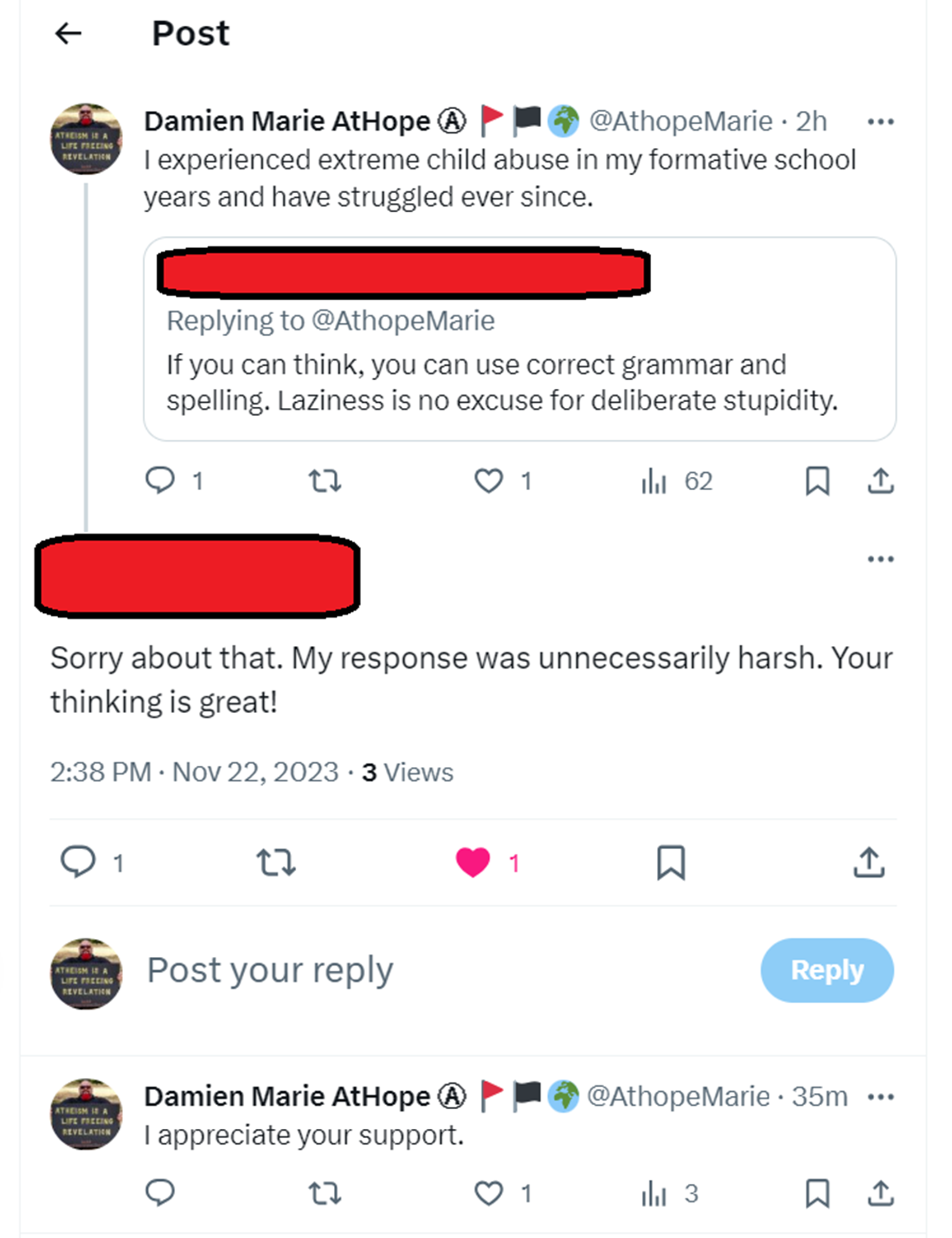
I am an anti-nationalist and anti-capitalist to my core. I stand in solidarity with humanity, not borders or nations, rather it is the humans from every single plot of dirt they happen to currently live on. We are all one. Don’t let fake borders, just coercive force lines on paper, divided by wars, tell you to hate or love. I am anti-natiomnalism. I am anti-capitalist for several thoughtful reasons but a basic one is that capitalists get rich on the stolen labor value of the workers. Capitalism is predatory and unethical as always petofit above people…
“Scholars of anarchism generally highlight anarchism’s socialist credentials and criticize attempts at creating dichotomies between the two. Some scholars describe anarchism as having many influences from liberalism, and being both liberal and socialist but more so. Many scholars reject anarcho-capitalism as a misunderstanding of anarchist principles. While opposition to the state is central to anarchist thought, defining anarchism is not an easy task for scholars, as there is a lot of discussion among scholars and anarchists on the matter, and various currents perceive anarchism slightly differently. Major definitional elements include the will for a non-coercive society, the rejection of the state apparatus, the belief that human nature allows humans to exist in or progress toward such a non-coercive society, and a suggestion on how to act to pursue the ideal of anarchy.” ref
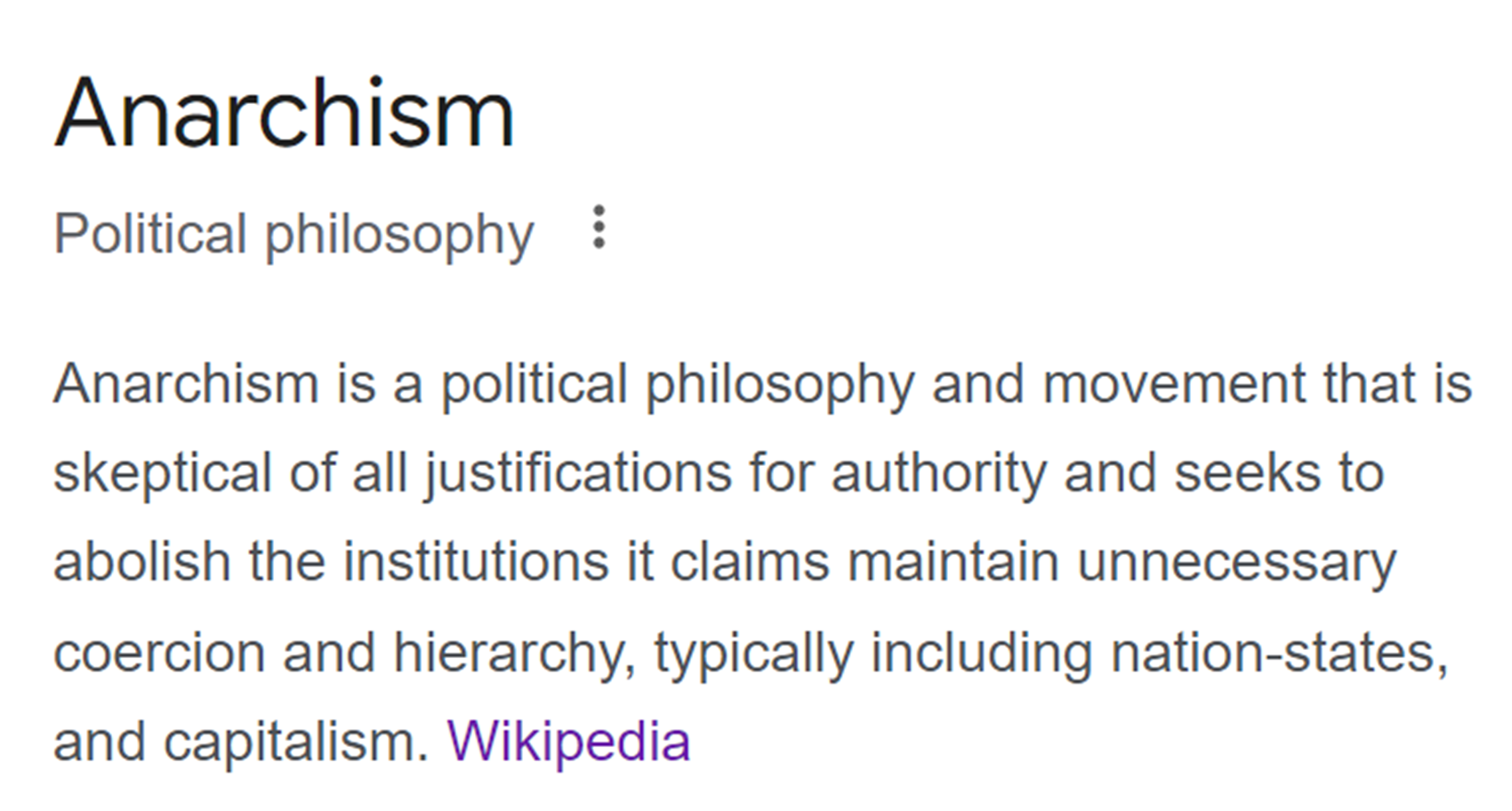
Anarchism Definition from Oxford Languages:
“An·ar·chism = a political theory advocating the abolition of hierarchical government and the organization of society on a voluntary, cooperative basis without recourse to force or compulsion. From Greek anarkhos ‘without a chief’ + -ism; later influenced by French anarchisme.”
“Anarchism is a political philosophy and movement that is skeptical of all justifications for authority and seeks to abolish the institutions it claims maintain unnecessary coercion and hierarchy. Anarchism advocates for stateless societies and voluntary free associations. As a historically left-wing movement, this reading of anarchism is placed on the farthest left of the political spectrum, usually described as the libertarian wing of the socialist movement (libertarian socialism). Humans lived in societies without formal hierarchies long before the establishment of states, realms, or empires. With the rise of organized hierarchical bodies, skepticism toward authority also rose. Although traces of anarchist ideas are found all throughout history, modern anarchism emerged from the Enlightenment. During the latter half of the 19th and the first decades of the 20th century, the anarchist movement flourished in most parts of the world and had a significant role in workers’ struggles for emancipation.” ref
“Various anarchist schools of thought formed during this period. Anarchists have taken part in several revolutions, most notably in the Paris Commune, the Russian Civil War and the Spanish Civil War, whose end marked the end of the classical era of anarchism. In the last decades of the 20th and into the 21st century, the anarchist movement has been resurgent once more, growing in popularity and influence within anti-capitalist, anti-war and anti-globalisation movements. Anarchists employ diverse approaches, which may be generally divided into revolutionary and evolutionary strategies; there is significant overlap between the two. Evolutionary methods try to simulate what an anarchist society might be like, but revolutionary tactics, which have historically taken a violent turn, aim to overthrow authority and the state. Many facets of human civilization have been influenced by anarchist theory, critique, and praxis.” ref
Nature of Anarchism
Anarchism Supports: Autonomy, Civil liberties, Classless society, Cooperation, Direct action, Mutual aid, Stateless society, Voluntary association, Workers’ self-management, etc. ref
Anarchism Rejects: Authoritarianism, Capitalism, Censorship, Centrally planned economy, Coercion, Discrimination, Hierarchy, Imperialism, Paternalism, States, Totalitarianism, etc. ref
“Anarchism is usually grounded in “moral claims” about the importance of individual liberty, often conceived as freedom from domination. Anarchists also offer a positive theory of human flourishing, based upon an ideal of equality, community, and non-coercive consensus building. Anarchism has inspired practical efforts at establishing utopian communities, radical and revolutionary political agendas, and various forms of direct action.” – Andrew Fiala with the Stanford Encyclopedia of Philosophy
*Morality = “The combination of ethics and anarchism provokes a wide variety of discussion ranging widely along both academic and anarchist traditions. However, the book Anarchism and Moral Philosophy is aimed at a particular audience (academics), specifically ones with a background in moral and ethical philosophy. Some anarchist traditions are inclined to dismiss moral philosophy as merely another dominating ideology, but many of these writers see ethics as an important foundation of anarchist projects and moral theory necessary for finding our away out of state and capitalist societies. This book adds significant material to recent debates on whether or not anarchism provides only a political analysis. These anarchists take questions of ethics as seriously as politics and are not afraid to seek questions and answers from figures ranging from Immanuel Kant to Emma Goldman. Throughout the three parts, the philosophers have to struggle with themes familiar to moral and ethical theory, such as questions of duty and deontology, ethical calculations, and consequentalism and the challenge to these traditional categories by the new system of virtue ethics. A number of scholars within Anarchism and Moral Philosophy investigate the potential of virtue ethics (most explicitly Benjamin Franks, Thomas Swann and Samuel Clark). Franks elaborates the similarities and differences between virtue ethics and the anarchist practice of prefiguration.” ref
“Its conception of morality is based on the ideas set forth in Mutual Aid and later developed in his Ethics. Here they are given special application to “right and wrong” in the business of social living. The job is done with fine feeling and with acute shafts at the shams of current morality. Kropotkin sees the source of all so-called moral ideas in primitive superstitions. The real moral sense which guides our social behavior is instinctive, based on the sympathy and unity inherent in group life. Mutual aid is the condition of successful social living. The moral base is therefore the good old golden rule “Do to others as you would have others do to you in the same circumstances,” – which disposed of the ethics of the shopkeeper’s anarchist customers.” ref
“This natural moral sense was perverted, Kropotkin says, by the superstitions surrounding law, religion, and authority, deliberately cultivated by conquerors, exploiters, and priests for their own benefit. Morality has therefore become the instrument of ruling classes to protect their privileges. He defends the morality of killing for the benefit of mankind – as in the assassination of tyrants – but never for self. Love and hate he regards as greater social forces for controlling wrong-doing than punishment, which he rejects as useless and evil. Account-book morality – doing right only to receive a benefit – he scores roundly, urging instead the satisfactions and joy of “sowing life around you” by giving yourself to the uttermost to your fellowmen. Not of course to do them good, in the spirit of philanthropy, but to be one with them, equal and sharing.” ref
“THE MORAL IDEA BEHIND ANARCHISM has always been somewhat elusive. There have probably been almost as many anarchist moralities as there have been anarchists, but for analysis they can be broadly divided into two categories: the socially positive and the socially negative. The positive anarchist moralities have derived from many sources from William Godwin onwards, but the negative aspects can chiefly be traced to the influence of Max Stirner.” ref
“In his theoretical attempt to escape from bourgeois hypocritical morals Stirner went to remarkable lengths in glorifying crime and denying all that was considered good by the respectable middle-class of his day. This total amorality was quite rational if one began with his premises, since one could owe no allegiances to a society to which one had no responsibilities. Stirner’s disbelief in altruistic actions, and his virtual deification of the individual, was quite consistent with his belief that others were to be regarded as little more than means to the end of personal self-realisation. But this justification of theft, dishonesty, rape and murder is in a sense the very opposite of anarchistic. When we complain that people are being exploited by the ruling-classes we are not only complaining that the people continue to endure it. We are also complaining about exploitation per se; and it is this very act of regarding a person as a means rather than an end that underlies Stirner’s philosophy. The Stirnerite attempt to escape this problem is to postulate a union of egoists, in which “enlightened” self-interest is best served by co-operation, although he prefers to call it competition!” ref
“Godwin, in contrast to Stirner, was a humanitarian, and believed that Justice—the general good—was above individual interest, although be realised that a person’s conception of exactly what was the general good could only be a matter for conscience. He was important in that he denied the Catholic doctrine of Original Sin, and asserted that we are born neither good nor bad. He was a moral man, and proclaimed that we have “no right to act anything but virtue and to utter anything but truth”. We can see here the complete disagreement between his idea of the moral anarchist, and Stirner’s affirmation that morality is rubbish. Both of these men made distinct contribution to anarchist thought however, although I think neither of them held views which were completely or distinctively anarchist in the moral sphere. It would be inconsistent with the spirit of anarchism to say that either one had, or could have had, the sole and absolute truth, for it is unlikely that anarchists will ever be absolutely unanimous on anything, especially with respect to morality.” ref
Damien is an anarcho-humanist (basically a socialist-collectivist-mutualist-anarchist as well as rather liberal, progressive, and revolutionary. Damien wants all positive change). Damien understands and utilizes “value” or actually “Value Consciousness” to both give a strong moral “axiological” argument (the problem of evil) as well as use it to fortify Damien’s humanism and positive ethical persuasion of human helping and care. Damien understands Value-blindness gives rise to sociopathic evil.
What Inspires Damien’s Anarcho-Humanism?
- We are all one connected human family.
- No one owns the earth.
- If you can’t trust people with freedom how can you trust them with power?
Axiology and Value Theory?
“Value theory is a range of approaches to understanding how, why, and to what degree persons value things; whether the object or subject of valuing is a person, idea, object, or anything else. This investigation began in ancient philosophy, where it is called axiology or ethics.”– Wikipedia
“The term “Value Theory” is used in at least three different ways in philosophy. In its broadest sense, “value theory” is a catch-all label used to encompass all branches of moral philosophy, social and political philosophy, aesthetics, and sometimes feminist philosophy and the philosophy of religion — whatever areas of philosophy are deemed to encompass some “evaluative” aspect. In its narrowest sense, “value theory” is used for a relatively narrow area of normative ethical theory particularly, but not exclusively, of concern to consequentialists. In this narrow sense, “value theory” is roughly synonymous with “axiology”. Axiology can be thought of as primarily concerned with classifying what things are good, and how good they are. For instance, a traditional question of axiology concerns whether the objects of value are subjective psychological states or objective states of the world. But in a more useful sense, “value theory” designates the area of moral philosophy that is concerned with theoretical questions about value and goodness of all varieties — the theory of value. The theory of value, so construed, encompasses axiology, but also includes many other questions about the nature of value and its relation to other moral categories. The division of moral theory into the theory of value, as contrasting with other areas of investigation, cross-cuts the traditional classification of moral theory into normative and metaethical inquiry, but is a worthy distinction in its own right; theoretical questions about value constitute a core domain of interest in moral theory, often cross the boundaries between the normative and the metaethical, and have a distinguished history of investigation.” – (Stanford Encyclopedia of Philosophy)
Axiological Presumptive-Value failures vs. Presumptive-value Successes
Simply, if you presume a thing is of value that you can’t justify, then you have committed an axiological presumptive value failure.
Axiological “presumptive-value” Success: Sound Thinker: uses disciplined rationality (sound axiological judgment the evaluation of evidence to make a decision) supporting a valid and reliable justification.
Axiological “presumptive-value” Failure: Shallow Thinker: undisciplined, situational, sporadic, or limited thinking (unsound axiological judgment, lacking required evidence to make a “presumptive-value” success decision) lacking the support of a needed valid and reliable justification.
My quick definition of Axiology?
Axiology is a philosophy (value theory) and a social science/science of value (formal axiology) mainly involving the “what, why, and how” of “value” the way epistemology approaches “knowledge” as in what is of value/good/worth/beneficial/ or useful? Why is the thing in question of value/good/worth/beneficial/or useful? How should the value/good/worth/beneficial/ or useful be interacted with? Real Morality is an emergent aspect limited to a sphere of social dynamics (social) result in human progress and social evolution understood in mental processes of high cognitively developed beings (biological) with developed psychological quality of awareness (psychological) and the so-called moral facts and the values that support or motivate them is limited to the realm of possible harm psychological or physical (actual external world or experiential internal world). I would like to offer my understanding of how I see the layout of morality, values, morals, and ethics as I see them. I see the term “morality” proper as the main moniker to a philosophic group (values, morals, and ethics) or a main heading that involves the subheadings of values, morals, and ethics. Values, morals, and ethics, in a basic observational way, should be understood as falling under branches expressing different but similar thinking and behavioral persuasion. Values are the internal catalyst often motivating our thinking and behaviors. Such as a value of all human life, would tend to motivate you to not wantonly end human lives. Just as a lack of value for all human life, may tend to motivate you to not have an issue with the wanton ending of human lives. Morals to me, are the personal persuasion that you value, such as having a desire for truthfulness. Then we have ethics and we know this is a different branch of the morality tree, as there is business ethics/professional ethics but not really business morals or professional morals; other than one’s self-chosen persuasion which may be adopted from business ethics/professional ethics. Ethics are as I have expressed our social universal prescriptions/persuasions public morality whereas morals to me are personal morality. Therefore, we can hold others to universal ethics standards (public morality) and not our moral proclivities that are not universal on others, as morals are for us (personal morality). To me, true Morality summed up to me is largely the expression of axiological value judgments/assessments carried into an appropriate valueized action. Axiology: Two Worlds in Three Dimensions of Value
The Way of a Sound Thinker?
Sound thinking to Damien, in a general way, is thinking, reasoning, or belief that tends to make foresight a desire to be as accurate as one can with valid and reliable reason and evidence. Sound axiological judgment, to me, a “presumptive-value” success, is value-judged opinions expressed as facts with a valid and reliable justification. In an informal and psychological sense, it is used in reference to the quality of cognitive faculties and adjudicational (relating to adjudication) capabilities of particular individuals, typically called wisdom or discernment. In a legal sense, – used in the context of a legal trial, to refer to a final finding, statement, or ruling, based on a considered weighing of evidence, called, “adjudication“.
A shallow thinker (i.e. not a Deep Thinker, a person whose thoughts are reasoned, methodological, logical, empirical, profound; an intellectual) quickly talks, often with boastful postulations, likely just as often pushed strongly and loudly as if this adds substance, and they do this before fully understanding what’s is really involved. Whereas, a Sound Thinker is reasoned (comparative more reasoned, superlative most reasoned) generally based on reasoning; being the result of logical thought. As a first debate process, a Sound Thinker commonly poses Questions to understand slowing down and assessing all the facts or factors involved and then builds their argument or ideas. In classical logic, the law of non-contradiction (LNC) (also known as the law of contradiction, principle of non-contradiction (PNC), or the principle of contradiction) states that contradictory statements cannot both be true in the same sense at the same time, e.g. the two propositions “A is B” and “A is not B” are mutually exclusive. It is the second of the three classic laws of thought.
Disciplined-Rationality is motivated by principles of correct reasoning with emphasis on valid and reliable methods or theories leading to a range of rational standpoints or conclusions understanding that concepts and beliefs often have consequences thus hold an imperative for truth or at least as close to truth as can be acquired rejecting untruth. Disciplined-Rationality can be seen as an aid in understanding the fundamentals for knowledge, sound evidence, justified true belief and involves things like decision theory and the concern with identifying the value(s), reasonableness, verification, certainties, uncertainties and other relevant issues resulting in the clearest optimal decision/conclusion and/or belief/disbelief. Disciplined-Rationality attempts to understand the justification or lack thereof in propositions and beliefs concerning itself with various epistemic features of belief, truth, and/or knowledge, which include the ideas of justification, warrant, rationality, reliability, validity, and probability.
Damien’s Axiological Dignity Being Theory:
An “Axiological assessment of human beings” shows with an axiological awareness a logic of values is clear which takes as its basic premise that “all persons always deserve positive regard.” – Progressive Logic by William J. Kelleher, Ph.D. And the reason why we should care is that we are Dignity Beings. “Dignity is an internal state of peace that comes with the recognition and acceptance of the value and vulnerability of all living things.” – Donna Hicks (2011). Dignity: The Essential Role It Plays in Resolving Conflict
Moral fear and Moral love (which together motivate my axiological ethics)?
True Morality summed up to me is largely the expression of axiological value judgments/assessments carried into an appropriate valueized action. Harm is often a violation of trust, and a violation of “expected trust” makes bad things even worse. Such as if I told you a child was killed, you would feel it was terrible, but if I further told you, it was the child’s doctor that murdered the child out of anger. You would be more angered as doctors are expected to care for people, not harm them. And if you think that is bad what if I further told you the doctor who killed the child was her mother would you hold her even more in contempt as mothers also are expected to care and not kill children, so a violation of trust is terrible and even makes things worse. Therefore, we can see why people that hold places of trust should never abuse them, and that we should hold them accountable if they do violate such trust by harming others. Morality first, that is morality should be at the forefront in all I do. I hope I am always strong enough to put my morality at the forefront in all I do, so much so, that it is obvious in the ways I think and behave. To better grasp, a naturalistic morality one should see the perspective of how there is a self-regulatory effect on the self-evaluative moral emotions, such as shame and guilt. Broadly conceived, self-regulation distinguishes between two types of motivation: approach/activation and avoidance/inhibition. one should conceptually understand the socialization dimensions (parental restrictiveness versus nurturance), associated emotions (anxiety versus empathy), and forms of morality (proscriptive versus prescriptive) that serve as precursors to each self-evaluative moral emotion.
Babies & Morality?
“They believe babies are in fact born with an innate sense of morality, and while parents and society can help develop a belief system in babies, they don’t create one. A team of researchers at Yale University’s Infant Cognition Center, known as The Baby Lab, showed us just how they came to that conclusion.” Ref
Animals and Morality?
5 Animals With a Moral Compass Moreover, Animals can tell right from wrong: Scientists studying animal behavior believe they have growing evidence that species ranging from mice to primates are governed by moral codes of conduct in the same way as humans. Likewise, in the book: Wild Justice: The Moral Lives of Animals: Scientists have long counseled against interpreting animal behavior in terms of human emotions, warning that such anthropomorphizing limits our ability to understand animals as they really are. Yet what are we to make of a female gorilla in a German zoo who spent days mourning the death of her baby? Or a wild female elephant who cared for a younger one after she was injured by a rambunctious teenage male? Or a rat who refused to push a lever for food when he saw that doing so caused another rat to be shocked? Aren’t these clear signs that animals have recognizable emotions and moral intelligence? With Wild Justice Marc Bekoff and Jessica Pierce unequivocally answer yes. Marrying years of behavioral and cognitive research with compelling and moving anecdotes, Bekoff and Pierce reveal that animals exhibit a broad repertoire of moral behaviors, including fairness, empathy, trust, and reciprocity. Underlying these behaviors is a complex and nuanced range of emotions, backed by a high degree of intelligence and surprising behavioral flexibility. Animals, in short, are incredibly adept social beings, relying on rules of conduct to navigate intricate social networks that are essential to their survival. Ultimately, Bekoff and Pierce draw the astonishing conclusion that there is no moral gap between humans and other species: morality is an evolved trait that we unquestionably share with other social mammals.
Moral Naturalism (James Lenman)
While “moral naturalism” is sometimes used to refer to any approach to metaethics intended to cohere with naturalism in metaphysics more generally, the label is more usually reserved for naturalistic forms of moral realism according to which there are objective moral facts and properties and these moral facts and properties are natural facts and properties. Views of this kind appeal to many as combining the advantages of naturalism and realism. Ref
“Sometimes justice has to outweigh care and sometimes care has to outweigh justice.” One may ask or question how do you discern the appropriate morality course of action between what is ethically right? To me, it takes Axiology (i.e. value consciousness: value judgment analysis of ethical appropriateness due to assessing the value involved).
MORAL FEAR (fight or flight “justice perspective”):
To feel a kind of morality “anxiety” (ethical apprehension to potentially cause harm) about behaviors and their outcomes empathy (I feel you) or sympathy (I feel for you) about something moral that may be done, is being done, or that has been done, thus feeling of distress, apprehension or alarm caused by value-driven emotional intelligence concern; moral/ethical anxiety to the possibility; chance (to do something as a moral thinker and an ethical actor) or dread; respect (to take the sensitivity of a personal moral choice that leads one to choose an ethical behavior(s) and grasping the moral weight of the actions involved and potential outcomes this engagement can or will likely create (using data from learning whether theoretical or practical to lessen the effect of an unpleasant choice as much as posable (morality development/awareness/goals/persuasion). “Moral Anxiety, improves us, while Social Anxiety kills. Some anxieties are indicators of healthy curiosity and strong moral fiber, while others are a source of severe stress. Knowing which is which can help you to navigate your personal, professional, and intellectual life more effectively.” Ref
Moral fear thus is a kind of morality “anxiety” that motivates a fascinating aspect of humanity, which is that we hold ourselves to high moral standards. With our values and emotional intelligence and moral development, we gain a developed prosocial persuasion and thus “tend to self-impose rules on ourselves to protect society from the short-term temptations that might cause us to do things that would have a negative impact in the long-run. For example, we might be tempted to harm a person who bothers us, but a society in which everyone gave in to the temptation to hurt those who made us angry would quickly devolve into chaos. And once we accept that emotion plays some role in complex decisions, it is important to figure out which emotions are influencing different kinds of choices. Therefore, when we make these moral judgments to an extent we are somewhat driven by our ability to reason about the consequences of the actions or are influenced by their emotions to or about the outcomes of the consequences of the actions.” ref
*ps. MORAL FEAR (fight or flight “consequentialist ethics/utilitarian ethics”) is roughly referring to the fight-or-flight response, also known as the acute stress response, which refers to a physiological reaction that occurs in the presence of something that is terrifying, either mentally or physically. The fight-or-flight response (also called hyperarousal, or the acute stress response) is a physiological reaction that occurs in response to a perceived harmful event, attack, or threat to survival.
MORAL LOVE (tend and befriend “voice of care perspective”):
To me, this relates to care/caring ethics, which affirms the importance of caring motivation, emotion and the body in moral deliberation, as well as reasoning from particulars.This moral theory is known as “ the ethics of care” implies that there is moral significance in the fundamental elements of relationships and dependencies in human life. Normatively, care ethics seeks to maintain relationships by contextualizing and promoting the well-being of care-givers and care-receivers in a network of social relations. Most often defined as a practice or virtue rather than a theory as such, “care” involves maintaining the world of, and meeting the needs of, ourself and others. It builds on the motivation to care for those who are dependent and vulnerable, and it is inspired by both memories of being cared for and the idealizations of self. Following in the sentimentalist tradition of moral theory, care ethics affirms the importance of caring motivation, emotion and the body in moral deliberation, as well as reasoning from particulars. One of the original works of care ethics was Milton Mayeroff’s short book, On Caring, but the emergence of care ethics as a distinct moral theory is most often attributed to the works of psychologist Carol Gilligan and philosopher Nel Noddings in the mid-1980s. Though there are notable thinkers who express early strains of care ethics such as those that can be detected in the writings of feminist philosophers such as Mary Wollstonecraft, Catherine and Harriet Beecher, and Charlotte Perkins. Offering a general charged that traditional moral approaches contain a kinda of male bias, and asserted the “voice of care” as a legitimate alternative to the “justice perspective” of liberal human rights theory. Annette Baier, Virginia Held, Eva Feder Kittay, Sara Ruddick, and Joan Tronto are some of the most influential among many subsequent contributors to care ethics. Typically contrasted with deontological/Kantian and consequentialist/utilitarian ethics, is that of care ethics.
*ps. MORAL LOVE (tend and befriend “care ethics (ethics of care)/reciprocity (reciprocal altruism) ethics”) is similar to the fight or flight which is also only part of a bigger picture, according to Shelley Taylor, Ph.D., a psychology professor at the University of California, Los Angeles, and her colleagues. In the Psychological Review, as in evolutionary psychology, researchers describe how stress can elicit another behavioral pattern they call “tend and befriend”–especially in females. Tend-and-befriend is a behavior exhibited by some animals, including humans, in response to threat. It refers to protection of offspring (tending) and seeking out the social group for mutual defense (befriending), tend-and-befriend is theorized as having evolved as the typical female response to stress, just as the primary male response was fight-or-flight. This kind of gender determinism within the field is the subject of some controversy but I see it as to limited as well because we tend to use multiple sstrategiesto further sucuresafty depending of avalable resorces and if one regardless of gender persuasion is not able to either adequately defend themselves/or others (the fight part of fight or flight ) or is not able to either adequately flee a given threat (the flight part of fight or flight ) then other options such as The tend-and-befriend theoretical model was originally developed by Dr. Shelley E. Taylor and her research team at the University of California, Los Angeles and first described in a Psychological Review article published in the year 2000.
Universal ethics?
There are several ethical standards that are considered to be self-evident and seem to apply to all people throughout all of history, regardless of cultural, political, social, or economic context. The non-aggression principle, which prohibits aggression, or the initiation of force or violence against another person, is a universal ethical principle. My Examples of aggression include murder, rape, kidnapping, assault, robbery, theft, and vandalism. On the other hand, the commission of any of such acts in response to aggression does not necessarily violate universal ethics. There are obvious reasons why universal ethics are beneficial to society. For example, if people were allowed to kill or steal, this would lead to widespread chaos and violence and would be detrimental to the well-being of society. Most people agree that it’s better to prohibit aggression than to allow everyone to commit it. Therefore, aggression is intrinsically immoral. Although nearly all societies have laws prohibiting aggression, this does not mean that universal ethics are necessarily reflected by that society’s government or its dominant ideology. Universal ethics does not mean the imposition of one set of morals by one group on another. It means a shared way or means of reaching a consensus on norms and values that also accepts diversity. A shared understanding of what is right and what is wrong. In any circumstance or situation, we can start by examining the present state of affairs. This should be done with the aim of gaining an understanding of other cultural differences, history, and tradition, remembering that an explanation is not necessarily a justification. Next, what is the minimum that is acceptable? There has to be an acceptance that some disagreements cannot be resolved at that time. The aim is to change the present situation for the better. Once an acceptable minimum is reached, it is possible to work towards an eventual ideal state. We are all one community and we are all responsible for upholding human rights for each other. More than ever there is a need for agreement on the existence of universally held values and the content of those values. It may prove to be impossible to find one set of universal ethical principles that apply to all cultures, philosophies, faiths and professions but the destination is only part of the journey. The value lies in the search for principles that can be shared by all and can underpin the framework for global dialogue on ethical issues. A universal moral code might be a set of underlying dispositions we are all born with. Or it might be a set of explicit norms and values humans might one day universally accept. But a more important sense of ‘universal moral code’ is of a set of moral values that is universally valid, whether or not it is inscribed in our brains, or accepted by people. Of course, that is a very controversial idea. If there is such a universal moral code, then we have an imperative to try to discover it, and to make it universally accepted (to make it a moral code in the descriptive sense). But this requires thinking hard about ethics, not looking for some code that might or might not be written into our brains. Ref Ref Ref
*Non-coercion
“Coercion involves compelling a party to act in an involuntary manner by the use of threats, including threats to use force against that party. It involves a set of forceful actions which violate the free will of an individual in order to induce a desired response. These actions may include extortion, blackmail, or even torture and sexual assault. For example, a bully may demand lunch money from a student where refusal results in the student getting beaten. Coercion used as leverage may force victims to act in a way contrary to their own interests. Coercion can involve not only the infliction of bodily harm, but also psychological abuse (the latter intended to enhance the perceived credibility of the threat). The threat of further harm may also lead to the acquiescence of the person being coerced. The purpose of coercion is to substitute one’s aims to those of the victim. For this reason, many social philosophers have considered coercion as the polar opposite to freedom.” ref
*Anti-hierarchy
“Hierarchy: the arrangement of a particular set of members into (ranks or levels). A hierarchy (from Greek: hierarkhia, ‘rule of a high priest’, from hierarkhes, ‘president of sacred rites’) is an arrangement of items (objects, names, values, categories, etc.) that are represented as being “above”, “below”, or “at the same Rank/Level as” one another. Rank: the relative value, worth, complexity, power, importance, authority, level etc. of an object.” ref
*Solidarity
“Solidarity or solidarism is an awareness of shared interests, objectives, standards, and sympathies creating a psychological sense of unity of groups or classes. Soledarity does not reject individuals and sees individuals as the basis of society. It refers to the ties in a that bind people together as one. Anarchist theorist Peter Kropotkin (1842–1921) connected the biological and the social in his formulation of solidarity. In his most famous book, Mutual Aid: A Factor of Evolution (1902), written partly in response to Huxleyan Social Darwinism, Kropotkin studied the use of cooperation as a survival mechanism in human societies at their various stages, as well as with animals. According to him, mutual aid, or cooperation, within a species has been an important factor in the evolution of social institutions. Solidarity is essential for mutual aid; supportive activity towards other people does not result from the expectation of reward, but rather from instinctive feelings of solidarity.” ref
*Internationalism, actively opposes nationalism similar to, but distinct from globalism.
“Internationalism is an important component of socialist political theory, based on the principle that working-class people of all countries must unite across national boundaries and actively oppose nationalism and war in order to overthrow capitalism. In this sense, the socialist understanding of internationalism is closely related to the concept of international solidarity. Internationalism is a political principle that advocates greater political or economic cooperation among states and nations. It is associated with other political movements and ideologies, but can also reflect a doctrine, belief system, or movement in itself.” ref
“Supporters of internationalism are known as internationalists and generally believe that humans should unite across national, political, cultural, racial, or class boundaries to advance their common interests, or that governments should cooperate because their mutual long-term interests are of greater importance than their short-term disputes. Internationalism has several interpretations and meanings, but is usually characterized by opposition to nationalism and isolationism; support for international institutions, such as the United Nations, and a cosmopolitan outlook that promotes and respects other cultures and customs.” ref
“The term internationalism is similar to, but distinct from, globalism and cosmopolitanism. The International Workingmen’s Association, or First International, was an organization founded in 1864, composed of various working-class radicals and trade unionists who promoted an ideology of internationalist socialism and anti-imperialism. Figures such as Karl Marx and anarchist revolutionary Mikhail Bakunin would play prominent roles in the First International. The Inaugural Address of the First International, written by Marx in October 1864 and distributed as a pamphlet, contained calls for international cooperation between working people, and condemnations of the imperialist policies of national aggression undertaken by the governments.” ref
*Mutualism
“Mutualism describes the ecological interaction between two or more species where each species has a net benefit. Mutualism is a common type of ecological interaction. Mutualism can be contrasted with interspecific competition, in which each species experiences reduced fitness, and exploitation, or parasitism, in which one species benefits at the expense of the other. Mutualism plays a key part in ecology and evolution. For example, mutualistic interactions are vital for terrestrial ecosystem function as about 80% of land plants species. Humans are involved in mutualisms with other species. One researcher has proposed that the key advantage Homo sapiens had over Neanderthals in competing over similar habitats was the former’s mutualism with dogs.” ref
“Mutualism – tendency concerns with reciprocity, free association, voluntary contract, federation and credit and currency reform. It states that a market without government intervention drives prices down to labor-costs, eliminating profit, rent and interest according to the labor theory of value forcing firms to compete over workers by raising the wages (instead of workers competing over firms). Anarcho-communism – tendency that advocates the abolition of the state, capitalism, currency, wages and private property (while retaining respect for personal property), in favor of common ownership of the means of production, direct democracy, and a horizontal network of voluntary associations and workers’ councils with production and consumption based on the guiding principle “from each according to his ability, to each according to his need.” ref
*Cooperationism replaces our existing corporate regime with cooperative, mutualist, and nonprofit enterprises.
“Social anarchism (umbrella term) – several traditions of thought that emphasize the social life and relations. While individualists focus on personal autonomy and the rational nature of human beings, social anarchism sees “individual freedom as conceptually connected with social equality and emphasize community and mutual aid”, aggregating tendencies that advocates the communitarian and cooperative aspects of anarchist theory and practice. And Collectivist anarchism – a revolutionary tendency most commonly associated with Mikhail Bakunin, Johann Most and the anti-authoritarian section of the First International. It opposes all private ownership of the means of production, instead advocating that ownership be collectivized. Some collectivists do not oppose the use of currency, supporting workers being paid based on the amount of time they contributed to production and purchasing commodities in a communal market. This contrasts with anarcho-communism where wages and currency would be abolished and where individuals would take freely from a storehouse of goods.” ref
On Cooperationism: An End to the Economic Plague
“The only way forward—beyond a next Democratic administration—is a genuine legal transformation that replaces our existing corporate regime with cooperative, mutualist, and nonprofit enterprises. The many of us who create, invent, produce, work, and serve others need to displace the few who extract and hoard capital and put in place a new cooperationism that favors the equitable and sustainable distribution of economic growth and wealth creation. It is not enough to increase progressive wealth taxes on the billionaires and invest more in public hospitals and public schools, as Piketty recently suggested. That won’t fundamentally change the Faustian logic and temptations. Instead, and urgently, it’s time to replace our system of tournament dirigisme with a new cooperationism. This pandemic and economic crash must not prevent us from working together to place ourselves in a better position to deal with the other crisis—climate change—still looming on the horizon. On the contrary, these times call for a legal, political, and economic revolution to ring in a new epoch of cooperationism. This will demand political will. It will not come from our political leaders, so beholden now to corporate contributions. It will have to come from us all united.” ref
*Empowermentism involves the steps for the empowerment of humanity, power to the people. The process of becoming stronger in self-mastery and more confident, especially in controlling one’s life and claiming one’s rights.
“Empowerment: the capacity of individuals, groups and/or communities to take control of their circumstances, exercise power and achieve their own goals, and the process by which, individually and collectively, they are able to help themselves and others to maximize the quality of their lives. Empowerment is the degree of autonomy and self-determination in people and in communities. This enables them to represent their interests in a responsible and self-determined way, acting on their own authority. It is the process of becoming stronger and more confident, especially in controlling one’s life and claiming one’s rights. Empowerment as action refers both to the process of self-empowerment and to professional support of people, which enables them to overcome their sense of powerlessness and lack of influence, and to recognize and use their resources. As a term, empowerment originates from American community psychology and is associated with the social scientist Julian Rappaport (1981).” ref
“However, the roots of empowerment theory extend further into history and are linked to Marxist sociological theory. These sociological ideas have continued to be developed and refined through Neo-Marxist Theory (also known as Critical Theory). In social work, empowerment forms a practical approach of resource-oriented intervention. In the field of citizenship education and democratic education, empowerment is seen as a tool to increase the responsibility of the citizen. Empowerment is a key concept in the discourse on promoting civic engagement. Empowerment as a concept, which is characterized by a move away from a deficit-oriented towards a more strength-oriented perception, can increasingly be found in management concepts, as well as in the areas of continuing education and self-help. Empowerment is the process of obtaining basic opportunities for marginalized people, either directly by those people, or through the help of non-marginalized others who share their own access to these opportunities. It also includes actively thwarting attempts to deny those opportunities.” ref
“Empowerment theory social work involves using intervention methods to guide people toward achieving a sense of control. People may feel helpless in their lives for any number of reasons, but empowerment theory focuses on how oppression contributes to this experience. It centers on helping marginalized people at individual, group and community levels gain the personal, interpersonal and political power to improve their lives. Additionally, the model seeks to challenge systems that prevent or hinder people from having their needs met.” ref
Utopian Communities and Non-Revolutionary Anarchism
“Many anarchists are revolutionaries who want change to be created through direct action. But given our preceding discussion of violence, disobedience, and the potential for success of revolutionary activity, the question arises about opting-out of political life. The Epicureans and Cynics pointed in this direction. The history of anarchism is replete with efforts to construct anarchist communes that are independent and separated from the rest of state centered political life.” ref
“We might pick up the history here with the Christian anarchists and pacifists of the Reformation: the Mennonites, for example; or the Quakers who refused to doff their hats for political authorities and who sought a refuge in Pennsylvania. Indeed, there is an anarchist thread to the colonization of North America, as those who were disgruntled with European political and religious hierarchy left for the “new world” or were forced out by the European authorities. In the Seventeenth Century, Anne Hutchinson was cast out of the Massachusetts Bay Colony and forced to found a new community, when she concluded that the idea of government was flawed. Hutchinson is considered as one of the first anarchists of North America (see Stringham 2007). Separatist communities were founded by the New England abolitionists and transcendentalists, by Josiah Warren, and by others.” ref
“Anarchist communes were formed in Europe during the Nineteenth Century and in Spain during the 1930s. There have been ongoing movements and organizations of indigenous peoples and others who inhabit the margins of mainstream political life. In the 1960s and 70s, anarchist separatism was reiterated in the Hippy communes and attempts to live off the grid and get back to nature. Alternative communes, squats, and spontaneous gatherings continue to occur.” ref
“Separatist communities have to consider: the degree to which they give up on anarchist direct action against dominant political forces, the extent to which they have to accommodate themselves to political reality, and the risk that customary hierarchies will be reinstated within the commune. For the revolutionary anarchist, separatism is a strategy of avoidance that impedes political action. Separatist communes must often obey the rules of the dominant political organization in order to trade and get connected to the rest of the world. Finally, a complaint made about separatist communes is that they can end up being structured by sexist, classist, and other hierarchical organizing principles. One might argue that until the dominant culture is revolutionized, separatism will only be a pale reflection of the anarchist ideal. And yet, on the other hand, advocates of separatism will argue that the best way for anarchist ideals to take hold is to demonstrate that they work and to provide an inspiration and experimental proving ground for anarchism.” ref
“If revolutionary activity is taken off the table, then anarchists are left with various forms of gradualism and reformism. One way this might occur is through the creation of “temporary autonomous zones” such as those described by Bey. Along these lines David Graeber provides a description of the cultural and spiritual work that would be required in order to prepare the way for anarchist revolution. Graeber says that this would require “liberation in the imaginary”, by which he means that through activism, utopian communities, and the like there can be a gradual change in the way political power is imagined and understood (Graeber 2004). Revolutionary anarchists will respond to this by arguing that liberation in the imaginary is simply imaginary liberation: without actual change in the status quo, oppression and inequality continue to be a problem.” ref
Anarchism is Nihilistic and Destructive
“Objection: This objection holds that anarchism is merely another name for chaos and for a rejection of order. This objection holds that anarchists are violent and destructive and that they are intent on destroying everything, including morality itself.” ref
“Reply: This objection does not seem to recognize that anarchists come in many varieties. Many anarchists are also pacifists—and so do not advocate violent revolution. Many other anarchists are firmly committed to moral principles such as autonomy, liberty, solidarity, and equality. Some anarchists do take their critique of arché in a nihilistic direction that denies ethical principles. But one can be committed to anarchism, while advocating for caring communities. Indeed, many of the main authors in the anarchist tradition believed that the state and the other hierarchical and authoritarian structures of contemporary society prevented human flourishing.” ref
Anarchism Will Always Evolve Back into the State
“Objection: This objection holds that anarchism is inherently unstable. Hobbes and other early modern social contract theories maintain that the state emerges as a necessary response to natural anarchy which keeps order and protects our interests. A different theory comes from Nozick, who argues that the “night-watchman state” would emerge out of anarchy by an invisible hand process: as people will exercise their liberty and purchase protection from a protection agency, which would eventually evolve into something like a minimal state.” ref
“Reply: Anarchists may argue that the state of nature is simply not a state of war and so that Hobbes’s description is false. Some anarcho-primitivists will argue that things were much better for human beings in the original state of nature in small communities living close to the land. Other anarchists might argue that the disadvantages of state organizations—the creation of hierarchies, monopolies, inequalities, and the like—simply outweigh the benefits of state structures; and that rational agents would choose to remain in anarchy rather than allow the state to evolve. Some anarchists may argue that each time a state emerges, it would have to be destroyed. But others will argue that education and human development (including technological development) would prevent the reemergence of the state.” ref
Anarchism is Utopian
“Objection: This objection holds that there simply is no way to destroy or deconstruct the state. So exercises in anarchist political theory are fruitless. It would be better, from this point of view to focus on critiques of hierarchy, inequality, and threats to liberty from within liberal or libertarian political theory—and to engage in reforms that occur within the status quo and mainstream political organization.” ref
“Reply: Ideal theory is always in opposition to non-ideal theory. But utopian speculation can be useful for clarifying values. Thus philosophical anarchism may be a useful exercise that helps us understand our values and commitment, even though political anarchism has no hope of succeeding. Furthermore, there are examples of successful anarchist communities on a small local scale (for example, in the separatist communities discussed above). These concrete examples can be viewed as experiments in anarchist theory and practice.” ref
Anarchism is Incoherent
“Objection: This objection holds that a political theory that abolishes political structures makes no sense. A related concern arises when anarchism is taken to be a critique of authority in every case and in all senses. If anarchists deny then that there can be any arché whatsoever, then the claim contradicts itself: we would have a ruling theory that states that there is no ruling theory. This sort of criticism is related to standard criticisms of relativism and nihilism. Related to this is a more concrete and mundane objection that holds that there can be no anarchist movement or collective action, since anarchism is constitutionally opposed to the idea of a movement or collective (since under anarchism there can be no authoritative ruler or set of rules).” ref
“Reply: This objection only holds if anarchism is taken to be an all-or-nothing theory of the absolutist variety. Political anarchists do not necessarily agree with the skeptical post-foundationalist critique which holds that there can be no ruling principle or authority whatsoever. Rather, political anarchists hold that there are legitimate authorities but that political power quickly loses its authoritativeness and legitimacy. Furthermore, anarchists tend to advocate for a principle and procedure for organization based upon voluntarism and mutual aid, as well as unanimity and/or consensus. From this point of view anarchist communities can work very well, provided that they avoid coercive authority. To support this point anarchists will point to historical examples of successful anarchist communes. They will also point to ordinary human relations—in families and civil society relationship—which operate quite well apart form coercive and hierarchical political authority.” ref
Philosophical Anarchism is “Toothless”
“Objection: One objection to philosophical anarchism of the sort discussed throughout this essay is that it remains merely theoretical. Some political anarchists have little patience for abstract discourses that do not engage in direct action. One worry about philosophical anarchism is that in failing to act—and in failing to take responsibility for the actions that ought to follow from thought—philosophical anarchism remains a bourgeois convenience that actually serves the status quo. Thus when philosophical anarchists remain uncommitted in terms of the concrete questions raised by anarchism—whether they should obey the law, whether they should vote, and so on—they tend to support the interests of defenders of the status quo.” ref
“Reply: In response to this objection, one might defend the importance of philosophical reflection. It is important to be clear about principles and ideas before taking action. And with anarchism the stakes are quite high. The puzzles created by philosophical anarchism are profound. They lead us to question traditional notions of sovereignty, political obligation, and so on. They lead us to wonder about cultural and ethical conventions, including also our first principles regarding the theory and organization of social life. Given the difficulty of resolving many of these questions, the philosophical anarchist may hold that caution is in order. Moreover, the philosophical anarchist might also defend the importance of wonder. The anarchist critique gives us reason to wonder about much that we take for granted. Wonder may not change the world in immediate ways or lead to direct action. But wonder is an important step in the direction of thoughtful, ethical action.” ref
“Anarchism forces us to re-evaluate political activity. Ancient Greek philosophers such as Aristotle and Plato held that human beings flourished within just political communities and that there was a virtue in serving the polis. Modern political philosophy tended to hold, as well, that political action—including obedience to the law and the ideal of a rule of law—was noble and enlightened. In Hegelian political philosophy, these ideas combine in a way that celebrates citizenship and service to the state. And in contemporary liberal political philosophy, it is often presumed that obedience to the law is required as a prima facie duty (see Reiman 1972; Gans 1992). Anarchists, of course, call this all into question.” ref
“The crucial question for anarchists is thus whether one ought to disengage from political life, whether one ought to submit to political authority and obey the law, or whether one ought to engage in active efforts to actively abolish the state. Those who opt to work actively for the abolition of the state often understand this as a form of “direct action” or “propaganda of the deed”. The idea of direct action is often viewed as typical of anarchists, who believe that something ought to be done to actively abolish the state including: graffiti, street theater, organized occupations, boycotts, and even violence. There are disputes among anarchists about what ought to be done, with an important dividing line occurring with regard to the question of violence and criminal behavior.” ref
“Before turning to that discussion, let’s note one further important theoretical distinction with regard to the question of taking action, connected to the typology offered above: whether action should be justified in consequentialist or non-consequentialist terms. Franks has argued that anarchist direct action ought to exemplify a unity of means and ends (Franks 2003). On this view, if liberation and autonomy are what anarchists are pursuing, then the methods used to obtain these goods must be liberationist and celebrate autonomy—and embody this within direct action. Franks argues that the idea that “the end justifies the means” is more typical of state-centered movements, such as Bolshevism—and of right-wing movements. While some may think that anarchists are willing to engage in action “by any means necessary”, that phraseology and the crass consequentialism underlying it is more typical of radical movements which are not anarchist. Coercive imposition of the anarchist ideal re-inscribes the problem of domination, hierarchy, centralization, and monopolistic power that the anarchist was originally opposed to.” ref
Nonviolence, Violence, and Criminality
“One significant philosophical and ethical problem for politically engaged anarchists is the question of how to avoid ongoing cycles of power and violence that are likely to erupt in the absence of centralized political power. One suggestion, mentioned above, is that anarchists will often want to emphasize the unity of means and ends. This idea shows why there is some substantial overlap and conjunction between anarchism and pacifism. Pacifist typically emphasize the unity of means and ends. But not all pacifists are anarchists. However, we mentioned above that there is a connection between anarchism and Christian pacifism, as found in Tolstoy, for example. Gandhi was influenced by Tolstoy and the anarchists. Although Gandhi is better known as an anti-colonial activist, Marshall includes Gandhi among the anarchists (Marshall 2010: chapter 26). It is possible to reconstruct anti-colonial movements and arguments about self-determination and home rule as a kind of anarchism (aimed at destroying colonial power and imperial states). Gandhi noted that there were many anarchists working in India in his time. In saying this, Gandhi uses the term anarchism to characterize bomb-throwing advocates of violence. He says: “I myself am an anarchist, but of another type” (Gandhi 1916 [1956: 134]). Gandhian anarchism, if there is such a thing, embraces nonviolence. In general nonviolent resistance as developed in the Tolstoy-Gandhi-King tradition fits with an approach that turns away from political power and views the state as a purveyor of war and an impediment to equality and human development.” ref
“Objecting to this anarcho-pacifist approach are more militant activists who advocate direct action that can include sabotage and other forms of political violence including terrorism. Emma Goldman explains, for example, that anti-capitalist sabotage undermines the idea of private possession. While the legal system considers this to be criminal, Goldman contends it is not. She explains, it is ethical in the best sense, since it helps society to get rid of its worst foe, the most detrimental factor of social life. Sabotage is mainly concerned with obstructing, by every possible method, the regular process of production, thereby demonstrating the determination of the workers to give according to what they receive, and no more. (Goldman 1913 [1998: 94])” ref
“Goldman struggled with the question of violence through the course of her career. Early on she was a more vocal proponent of revolutionary violence. She began to rethink this later. Nonetheless, like other anarchists of her generation, she attributed violence to the state, which she opposed. She writes: I believe that Anarchism is the only philosophy of peace, the only theory of the social relationship that values human life above everything else. I know that some Anarchists have committed acts of violence, but it is the terrible economic inequality and great political injustice that prompt such acts, not Anarchism. Every institution today rests on violence; our very atmosphere is saturated with it. (Goldman 1913 [1998: 59])” ref
“Goldman views anarchist violence as merely reactive. In response to state violence, the anarchists often argued that they were merely using violence in self-defense. Another defender of violence is Malatesta who wrote that the revolution against the violence of the ruling class must be violent. He explained: I think that a regime which is born of violence and which continues to exist by violence cannot be overthrown except by a corresponding and proportionate violence. (Malatesta 1925 [2015: 48]) Like Goldman, Malatesta warned against violence becoming an end in itself and giving way to brutality and ferocity for its own sake. He also described anarchists as preachers of love and advocates of peace. He said, what distinguishes the anarchists from all others is in fact their horror of violence, their desire and intention to eliminate physical violence from human relations. (Malatesta 1924 [2015: 46])” ref
“But despite this rejection of violence, Malatesta advocates violence as a necessary evil. Anarchist violence appears as the violence of an individual against the state. It is easy to see why such violence would be characterized as terroristic and criminal. For an individual to declare war against the state and take action to disrupt the state is criminal. And thus anarchists have also been interested in a critique of crime and criminality—arguing that it is the law and the legal system that creates and produces crime and criminality. This critique was advanced by Kropotkin as early as the 1870s, when he called prisons “schools for crime”. Similar ideas are found in Foucault and in more recent criticisms of mass incarceration. Contemporary anarchists will argue that mass incarceration is an example of state power run amok.” ref
Disobedience, Revolution, and Reform
“The question of violence leads us to a further issue: the question of obedience, disobedience, resistance, and political obligation. Much could be said here about the nature of political obligation and obedience: including whether obedience is merely pragmatic and strategic or based upon notions about loyalty and claims about identification with the nation and its laws. But it is clear that anarchists have no principled reason for political obedience. If the anarchist views the state as illegitimate, then obedience and participation are merely a matter of choice, preference, and pragmatism—and not a matter of loyalty or duty.” ref
“Christian anarchists will look, for example, to the case of Jesus and his idea of rendering unto Caesar what is due to Caesar (Matthew 22:15–22). The anarchist interpretation of this passage claims that this is an indication both of Jesus’s disaffection with the state and with his grudging acquiescence to political authority. Christoyannopoulos argues, “Jesus’ political subversion is carried out through submission rather than revolt” (Christoyannopoulos 2010: 156). The crucifixion, on this interpretation, is a subversive event, which “unmasks” political power as “demonic” and illegitimate. Jesus does not recognize the ultimate moral and religious authority of Caesar or Pilate. But he goes along with the political regime. Thus some anarchists may simply be compliant and submissive.” ref
“But politically motivated anarchists encourage resistance to state power, including strategic and principled disobedience. Such disobedience could involve symbolic actions—graffiti and the like—or acts of civil resistance, protests, tax resistance and so on—up to, and possibly including, sabotage, property crime, and outright violence. Again, there is overlap with the discussion of violence here, but let’s set that question aside and focus on the notion of civil disobedience. One important example is found in Thoreau, who famously explained his act of disobedience by tax resistance as follows: In fact, I quietly declare war with the State, after my fashion, though I will still make what use and get what advantage of her I can, as is usual in such cases. (Thoreau 1849 [1937: 687])” ref
“Thoreau’s disobedience is principled. He recognizes that a declaration of war against the state is a criminal act. He willingly goes to jail. But he also admits that he will cooperate with the state in other cases—since there is something advantageous about cooperation. This indicates the complexity of the question of cooperation, protest, and disobedience. Thoreau’s essay, “Civil Disobedience” (1849), is often viewed as an anarchist manifesto. Kropotkin discussed him as an anarchist (Kropotkin 1927 [2002]). And Tolstoy admired his act of civil disobedience—as did Gandhi.” ref
“Anarchists continue to discuss strategies and tactics of disobedience. One problem throughout this discussion is the degree to which disobedience is effective. If there were to be successful anarchist campaigns of disobedience they would have to be organized and widespread. Whether such campaigns would actually work to disassemble the state apparatus remains an open question.” ref
“Until their dreamed-of revolution comes, anarchist must consider the degree to which cooperation with the state involves “selling out” to the political status quo. Perhaps there are reforms and short-term gains that can be obtained through traditional political means: voting, lobbying legislators, etc. But anarchists have often held to an all-or-nothing kind of approach to political participation. We noted above that the Christian anarchist Jacques Ellul has said that he does not vote because anarchy implies conscientious objection. But herein lies a strategic conundrum. If progressively minded anarchists opt out of the political system, this means that less enlightened policies will prevail. By not voting or otherwise engaging in ordinary politics, the anarchist ends up with a system that he or she will be even less happy with than if he or she had actively participated in the system.” ref
“This is, really, a problem of revolution versus reform. The revolutionary wants revolution now, believing that it will occur by way of direct action of various sorts. Perhaps the revolutionary is also thinking that the psychological, cultural, and spiritual evolution toward revolutionary consciousness can only occur when direct action is taken: in order for anarchism to emerge, the anarchist may think, one ought to behave and think like an anarchist. But without a concerted and nation-wide revolution, revolutionary action begins to look like mere selfishness, Epicurean opting out, or what Bookchin criticized as “lifestyle anarchism”. Meanwhile those reform-minded folks who work within the system of political power and legality can end up supporting a system that they have doubts about. This philosophical problem of reform vs. revolution exists for all radical political agendas. But the problem is especially acute for anarchists, since anarchism is often an all-or-none proposition: if the state is justified then gradualism and reformism make sense; but if no state can be justified, then what is sometimes called “reformist anarchism” is a non-starter (see L. Davis 2012).” ref
Imagine a world with enough excess to support all humanity yet we choose to change for everything even that found for free in or on the land. And a sociopathic society moved to want killing in war, spending almost like an addicted mind bent on killing itself rather than change. Is a fellow human being harmed? Then, hell yes, to me it is personal. A person of honor is not the same as a person who is never mad. We need to value the humanity expressed or exchanged in and by people, not the job title, claim of education level, or political power, nor how cool you might be. We rise by helping each other.
I am not an academic. I am a revolutionary who teaches in public, in places like social media, and in the streets. I am not a leader by some title given but from my commanding leadership style of simply to start teaching everywhere to everyone, all manner of positive education. In times of struggle or strife we humans can be most out of shape mentally so be patient as you can with others as we all are going through hell right now and desperately need each other. I wish people fought as hard for the actual values as they fight for the group/clan names political or otherwise they think support values.
To me, the clear fundamental issue in anarchism is “self-sovereignty/responsibility freedom,” so when I hear it limited to anti-statism, I don’t see this as grasping anarchism as it is about values, not lack of group unity or rules but freedom from rulers. I am Pro-Science. I follow valid and reliable reason and evidence. I also challenge ideas with which I do agree with. I trust that science also self-corrects when given good reasons to.
I strive to address fake history (Pseudoarchaeology, Pseudohistory, and Pseudoscience) and its supporters as well as try to teach real history. I also make speculations on history from how I see the evidence relating. I strive to be right in my thinking and actions but understand as an agreer to some of fallibilism‘s thinking, that I know I can be wrong and am thus rationally open to changing my thinking on valid and reliable reason and evidence. It is my welcoming correction that distills my thinking to the purity available to reach reason.
Here is the form of fallibilism I am thinking, “The claim that all assertions are provisional and thus open to revision in light of new evidence, which is widely taken for granted in the natural sciences.” ref
I am an atheist, antitheist, and antireligionist. However, I am also a self-taught prehistorian, trying to explain the evolution of religion which requires me fully understand the connections of religious or spiritual beliefs to allow others to rethink the belief in them. To expose the evolution of religion and thus understand its humanness not just from reason but do to understanding all the facts of archaeology, anthropology, and religious mythology. It is to bring about awareness to inspire others to atheism or at least a new understanding of religion removing its believed special status when religion or spiritual beliefs are, to me, just “culture” or “sociocultural“ products, like language. I don’t believe in gods or ghosts, and nor souls either. I don’t believe in heavens or hells, nor any supernatural anything. I don’t believe in Aliens, Bigfoot, nor Atlantis. I strive to follow reason and be a rationalist. Reason is my only master and may we all master reason.
“Sociocultural factors characterize social and cultural forces that influence the feelings, attitudes, values, thoughts, beliefs, interactions, and behaviors of related individuals and groups.” ref
“Examples of sociocultural factors include:
- Income and wealth distribution
- Social classes
- Attitudes towards education and work,
- Language, customs, and taboos
- Business and health practices
- Housing
- Religious beliefs
- Population size and housing
- Social mobility
- Age distribution and social values” ref
We are like believing machines we vacuum up ideas, like Velcro sticks to almost everything. We accumulate beliefs that we allow to negatively influence our lives, often without realizing it. Our willingness must be to alter skewed beliefs that impend our balance or reason, which brings about a new caring awareness.
I don’t believe in the supernatural notion of a “soul,” especially with our natural only evolution. Undesigned natural processes of evolution made us “believing-machines.” I am not an animist, thus I don’t believe in souls or spirits. How can I? When in our natural only evolution was there added magical anything? I can’t buy anything but natural, thus I can be labeled a “Metaphysical naturalist (also called ontological naturalist, philosophical naturalist, and anti-supernaturalist) which is a philosophical worldview that holds that there is nothing but natural elements, principles, and relations of the kind studied by the natural sciences.” ref
I am a rationalist, not a skeptic. I appeal to reason, not doubt, like most atheists. No “skepticism attack” tactics used on others atheists works on me, as I don’t even value skepticism. When the Truth is afraid, Fascism of some kind, likely Reigns. While many skeptics may tend to strive to master doubt, I as a rationalist, strive to master reason.
I am a Methodological Rationalist, I rarely am pushed to doubt as a default, instead, I see reason as my default and at times it may be responsible to doubt, but I get to that conclusion because of reasoning. Methodological: relating to the system of methods used in a particular area of study or activity: such as “a wide variety of methodological approaches to ethical problem-solving in my approach to truth or the label of knowledge.”
I fully enjoy the value (axiology) of archaeology (empirical evidence from fact or artifacts at a site) is knowledge (epistemology) of the past, adding to our anthropology (evidence from cultures both the present and past) intellectual (rational) assumptions of the likely reality of actual events from time past.
Religion is Unwarranted Faith and Belief. The problem with religion is unwarranted faith and belief. The problem of faith is as an invalid justification and the belief problem is holding unjustified false belief believing it is justified true belief. I use the Animism term as a definition of spirit-beliefs or a kind of Supernatural-Spiritism thinking, that to me, are in all spiritual or religious type beliefs, not primitive but core. I see Animism as the original religion (religious non-naturalism/supernatural persuasion or spiritual/magical thinking) of all humanity and is still in all the religions of the world.
I am mainly a prehistorian, 1 million to around 5,000/4,000 years ago. So while I may understand the past most don’t I don’t know a lot of history many seem to commonly know. I am not reading any more books, maybe ever again as I am tired from a life devoted to deep study. lol
Nothing is a justified true belief without valid or reliable reason and evidence; just as everything believed must be open to question, leaving nothing above challenge.
I don’t see religious terms Animism, Totemism, Shamanism, or Paganism as primitive but original or core elements that are different parts of world views and their supernatural/non-natural beliefs or thinking.
In the past or even lingering today, are beliefs often ripe with religious bigotry, seen in how religious/spiritual thinking not Abrahamic (Judaism, Christianity, or Islam) religious thinking are often believed to be primitive, unequal, or less than monotheism (preserved as the only real or not the correct religion beliefs if not monotheism).
I see all religions as having shared or similar features or core elements that relate to religious terms Animism, Totemism, Shamanism, or Paganism including Abrahamic (Judaism, Christianity, or Islam) religious thinking.
I don’t class any religious thinking as primitive but in error to what I see as a natural-only world, that religious thinking then makes up a myriad of non-natural/non-empirical themes/beings, stories, and myths about which group together are called religions.
I do anarchist teaching of prehistory, in that I don’t just make a blog, expecting people to come to me. No, I take all my knowledge, and like a gorilla soldier, I force-feed to the world my knowledge, one piece at a time, that is just what is needed. So, I heed that call and teach in public…
Do good, make no excuses, just do good, the world desperately needs more of this, and if we all do more, we all win. We rise by helping each other. I am an autodidactic-polymath in many subjects and a genus in both IQ intelligence as well as EQ emotional intelligence, quite rare. Yet I am ignored? Most disregard my ideas, I don’t think so, or is it due to my blogs that are so long they are like small free books, scary right?
I like learning prehistory!
I also hate: “Pseudo-science, Pseudo-history, and Pseudo-morality.”
So yeah, history is fun, but one must weed through the sometimes added mythology, half-truths, or outright lies. This is even more important when reading religion-related information.
The greatest lie ever, was the fraud of democracy, from its conceptions in Greece, claiming the freedom to vote, all the while upholding the institution of slavery. We today are sold the lie of capitalism, and the elite that play in space, while children starve in the streets…
The sad history of democracy is one of continued bigotry of elites and slaves, but now with a happy face or less unhappy faces, I should say, for more accuracy, as some non-slaves were a little more equal in a limited kind of way and/or scope.
If Americanism has taught us anything, it is that this “land” (people claiming colonialism as a birthright) loves bigotry, hate, lying, violence, denial, and unscientific explanations to just about any damn thing that can’t get away fast enough.
What if truth, mattered? Would we be more open-minded, or did you think you were already good, no improvement needed as most do, or do you let “new knowledge” alluded to, get in? Do you care? If so, what have you done to help change the world? When was the last time you realized you were wrong, then changed?
I often struggle for a better world but it is hard when hate is more motivating than love… Shamefully, the world thrives on bigotry and it needs to stop, no matter what style of society it is wrong.
“Blind belief in authority is the greatest enemy of truth.” Albert Einstein
My basic outline of scientific epistemology:
Science: Hypotheses (Rationalism/Deductive, Inductive, or Abductive Reasoning etc.) + Testing (Empiricism/Systematic Observation) – Checking for errors (Skepticism/Fallibilism) + Interpret/Draw a Conclusion (Rationalism/Deductive, Inductive, or Abductive Reasoning etc.) *if valid* = Scientific Laws (describes observed phenomena) or Scientific Theory (substantiated and repeatedly tested explanation of phenomena) = Justified True Belief = Scientific Knowledge = Epistemic Certainty supportive of correctability
*being epistemically certain, is believing a truth has the highest epistemic status, often with warranted psychological certainty but it may not, neither is it a requirement*
Believe it or not, people took their brains with them, so trade routes are also related to the spread of religious ideas.
“The Major religions spread across Eurasia and Africa through trade routes and conquest. Along with the religions came ideas and practices to new and distant places, changing local populations and creating new traditional beliefs and customs.” https://www.123helpme.com/essay/Trade-Routes-and-Religion-256229
Ancient Trade Routes between Europe and Asia: “Long-distance trade played a major role in the cultural, religious, and artistic exchanges that took place between the major centers of civilization in Europe and Asia during antiquity.”
https://www.metmuseum.org/toah/hd/trade/hd_trade.htm
"The historical accounts linking trade routes and Muslim adherence across countries are indicative of their importance for the spread of Islam." https://www.ncbi.nlm.nih.gov/pmc/articles/PMC8046173/
“All the religions that spread in the Indian Ocean Trade Routes belonged to anywhere groups which were Buddhism, Hinduism, and Islam that can be existed in each part of the world.” https://edubirdie.com/examples/what-religions-spread-on-the-indian-ocean-trade-routes-essay/
“The Silk Road evokes images of places and peoples linked by the exchange of exotic goods and fabled treasures. This limited notion of commerce, however, overshadows the fact that the Silk Road as a network of trade routes also spread religious ideas and beliefs.” https://festival.si.edu/2002/the-silk-road/the-silk-road-crossroads-and-encounters-of-faith/smithsonian
One of many, not one over many, let the people be free, and let them have free education!
I am virtuous to the vulnerable and champion justice, so valiantly, as I have experienced the hateful lash of unkindness and wish to champion its opposite, radical kindness in an unkind world, a sigh of true bravery. Never have I regretted being kind but often upon reflection, I have regretted my expression of anger. I have never wanted more hate in the world but how eagerly and proud I have worked to build a kinder world. For I know it starts with me, I am responsible. Long ago I only cared about “myself”, what a foolish time of my life. I once was afraid to champion kindness fearing I would look weak. Now I see the bravery of kindness and the weakness of hate.
Who gives a fuck?
Small abused hand rising to become a fist, I grab the microphone. Well, me of course. I am brave enough to be kind. As all people of high honor do. How about you? We are all an equal humanity, even I am a nothing, a no one, just one of the whole, which we all must care about if we want true human-flourishing, and if it must, let it start with me. May I be a true person of value, an honorable human, just another, a fellow dignity-being. It is not a matter of being the only flame but to inspire us all to unify as one, to bring light to all we can. Be an honest thinker who values only reason and evidence as your main helpful guides. I may have lost a god myth as an atheist, but I am happy to tell you, my friend, it is exactly because of that, leaving the mental terrorizer, god belief, that I truly regained my connected ethical as well as kind humanity. To master oneself, also means mastering positive prosocial behaviors needed for human flourishing. I create the world I want to live in, striving for flourishing. Which is not a place but a positive potential involvement and promotion; a life of humanist goal precision. In the end, all we have is each other and life is just too damn short to not be kind. It is not my moment of the greatest selfishness that holds good memories in my heart. No, it is my moment of the greatest selflessness that holds good memories in my heart.
I strive to be a good human ethical in both my thinking and behaviors thus I strive to be:
Anti-racist, Anti-sexist, Anti-homophobic, Anti-biphobic. Anti-transphobic, Anti-classist, Anti-ablest, Anti-ageist, and as Always 🏴 Antifascist 🏴
“Anarchism is not a romantic fable but the hardheaded realization, based on five thousand years of experience, that we cannot entrust the management of our lives to kings, priests, politicians, generals, and county commissioners.” – Edward Abbey
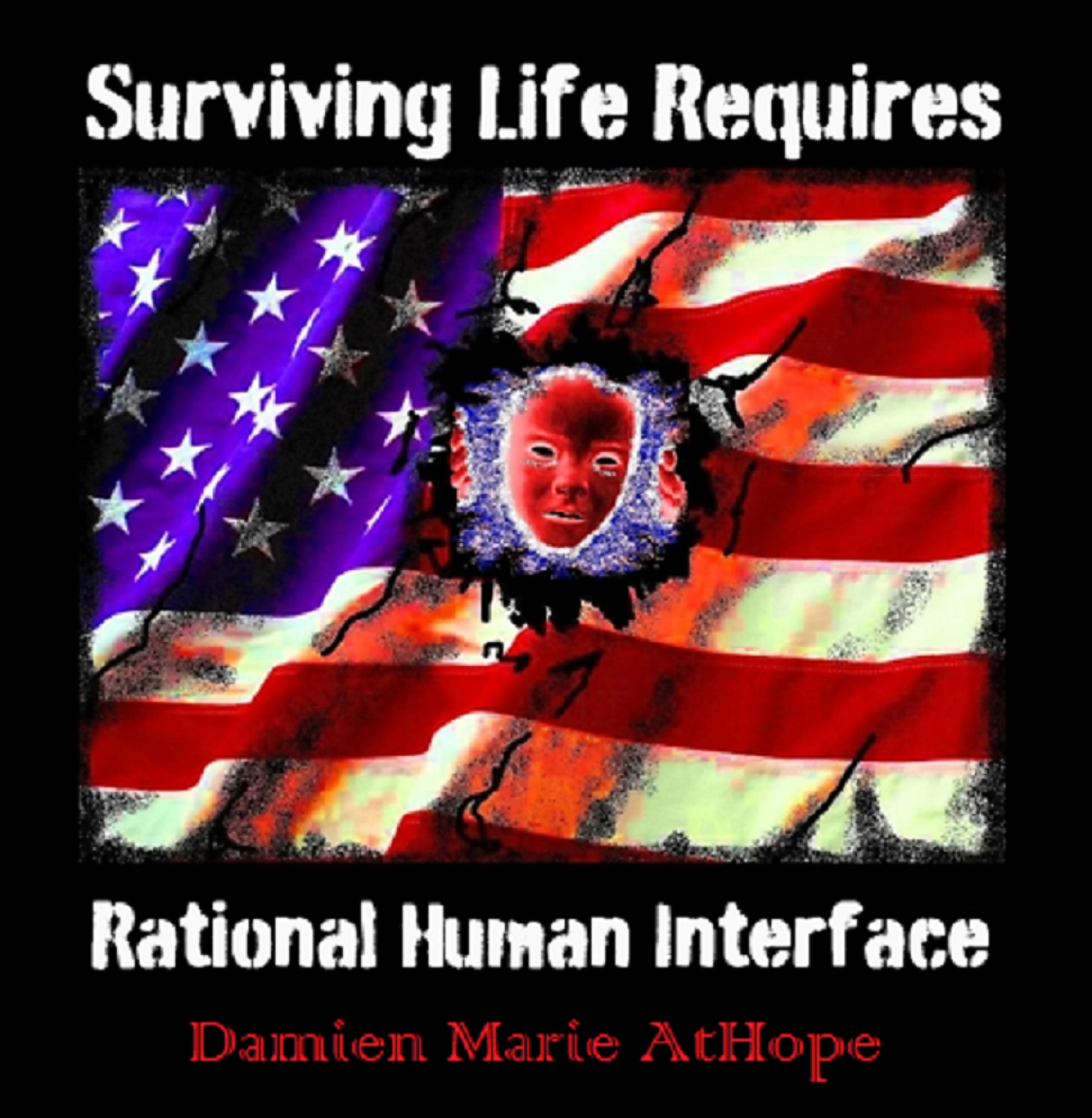
Vote?
I am a socialist anarchist, I cannot vote myself into the society I want as the elite will never let that happen, nor even anything close. I still will vote against the Republicans. I don’t think that the Democrats are great, but I do think Republicans are a complete nightmare. So, I vote to stop Republicans from making life worse. What could change that I would be more favorable to? If they will not change everything at least end the imbalance of all single leaders, thus ending the office of President, Governor, Mayor, etc. And add more direct democracy voting instead. Direct democracy is the ethical future.
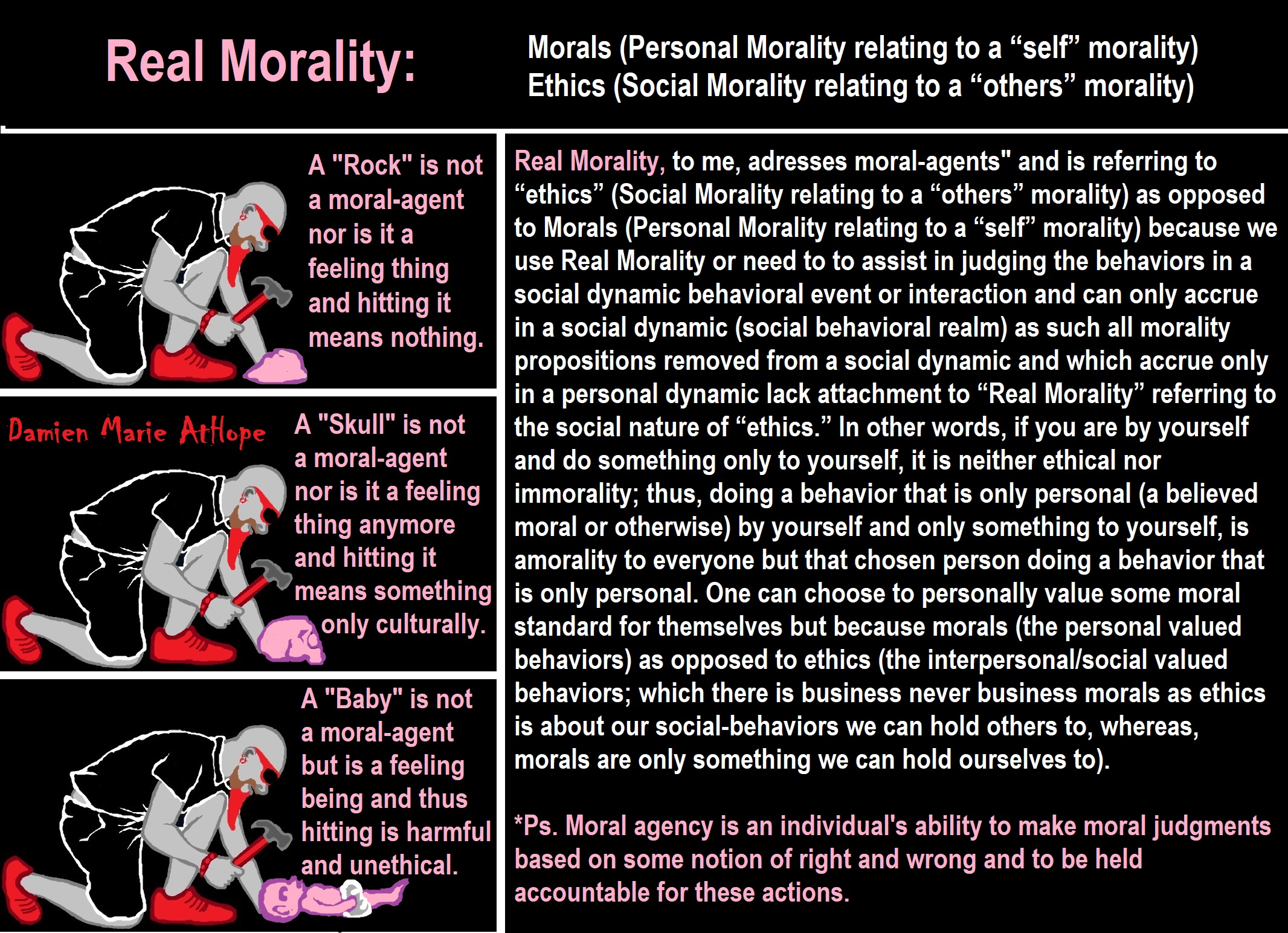
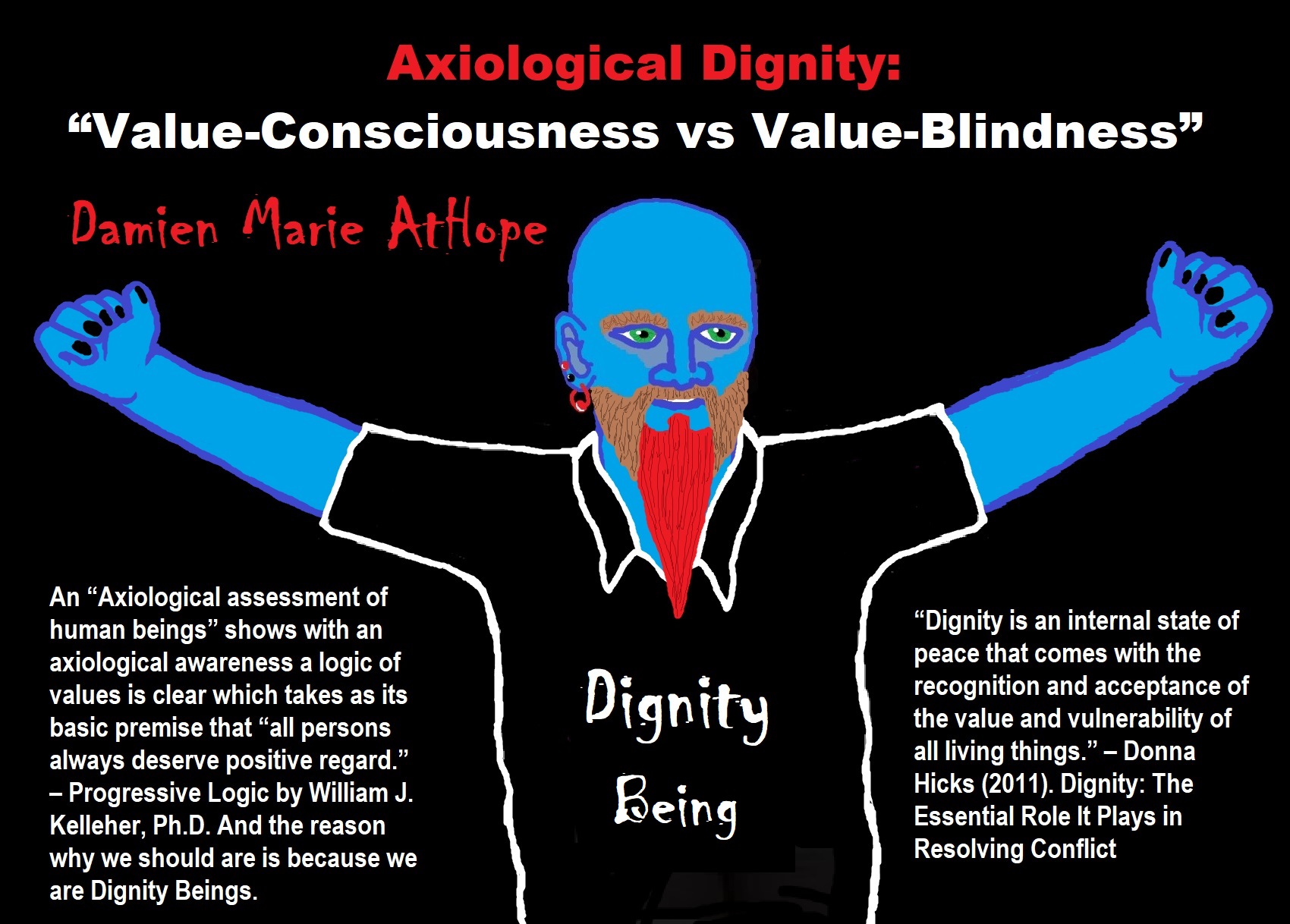
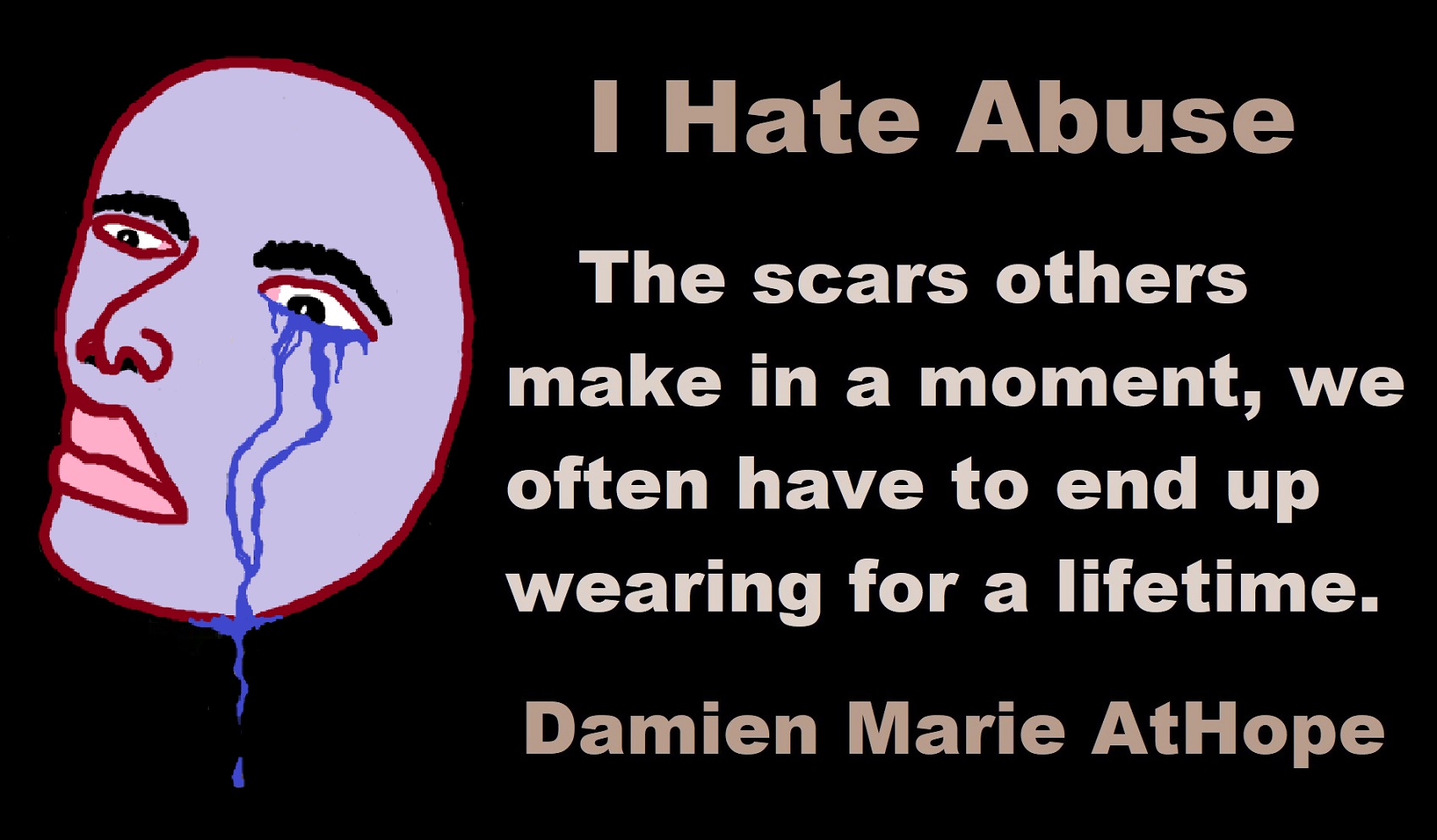
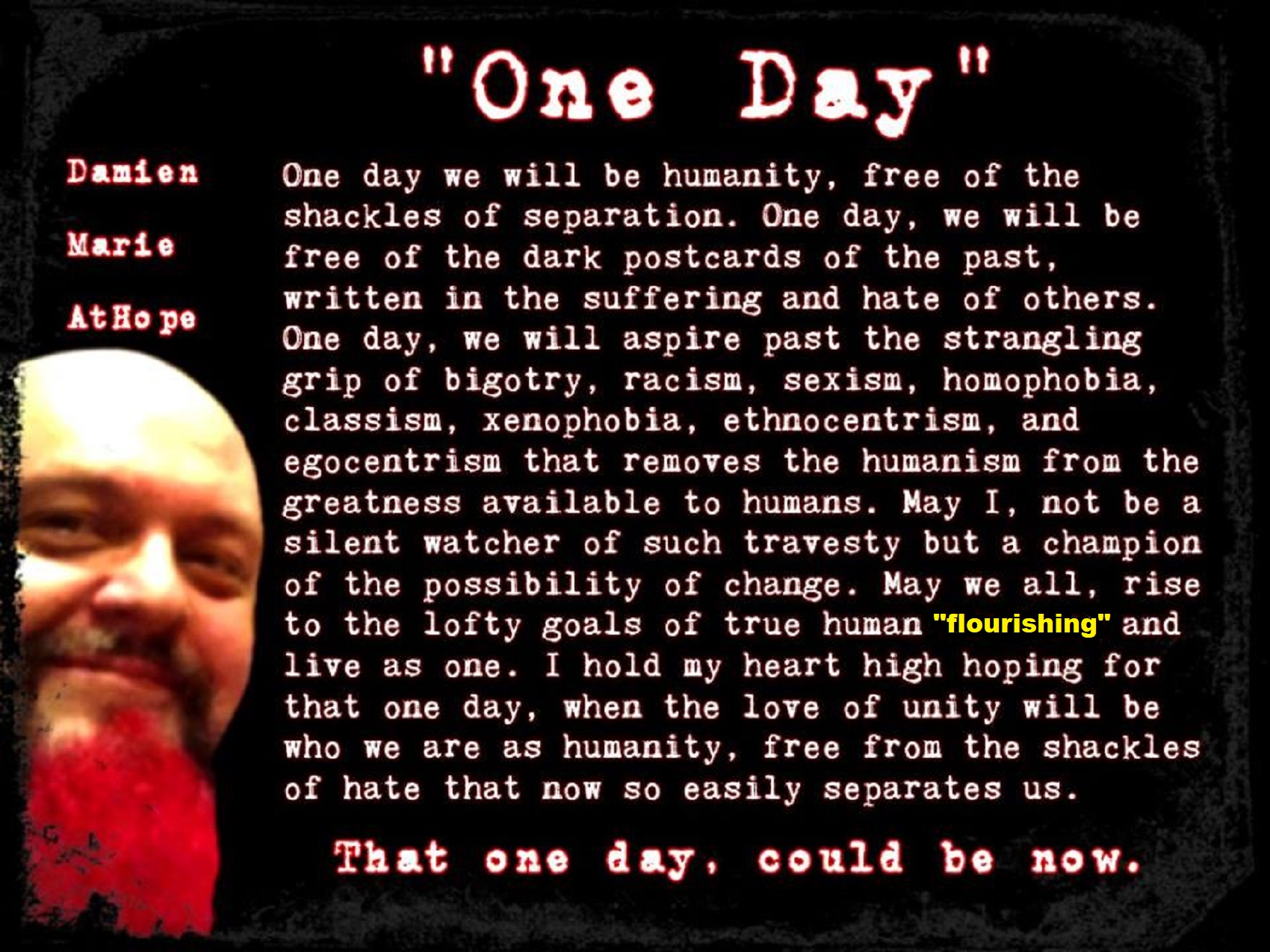
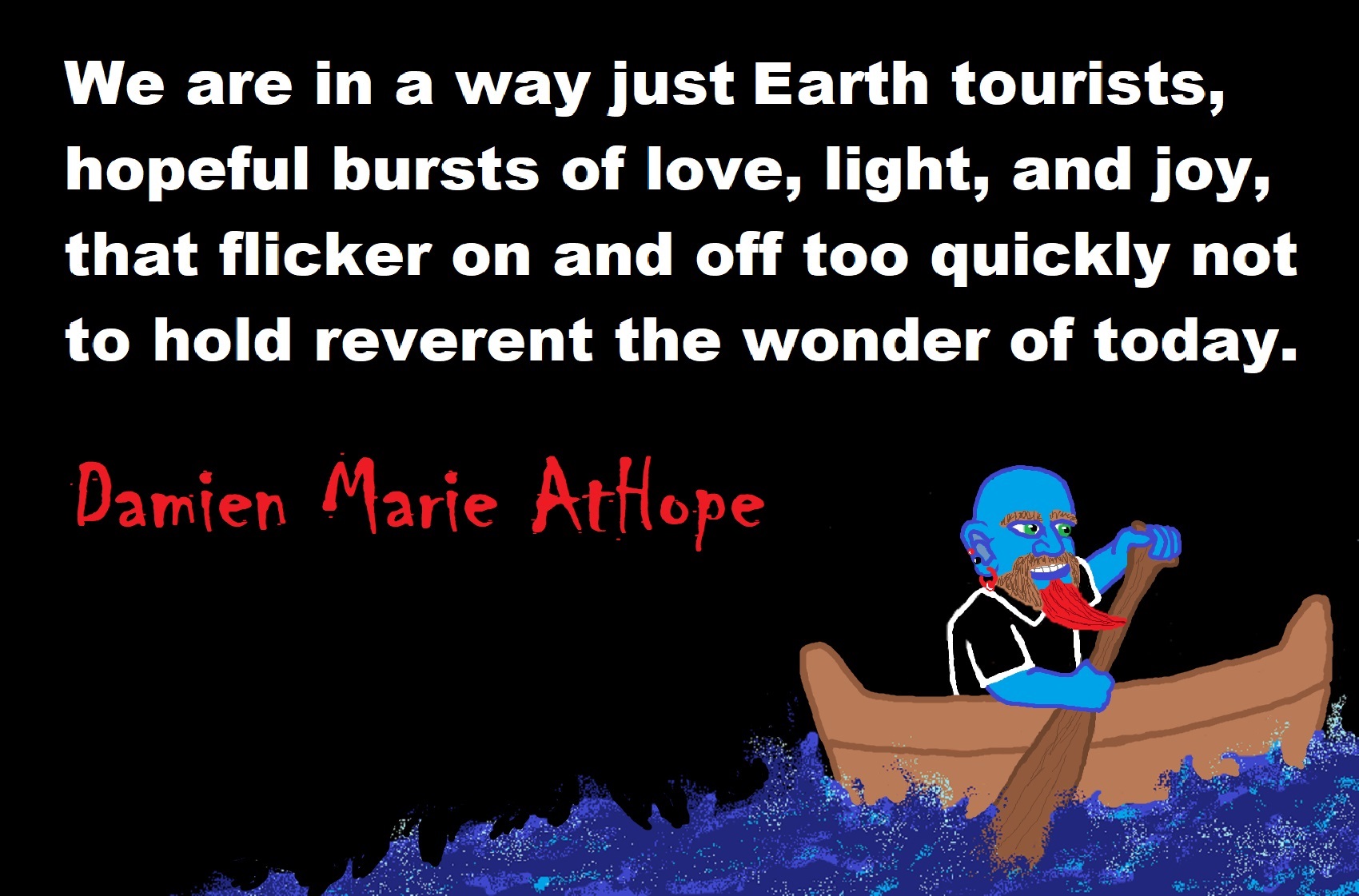
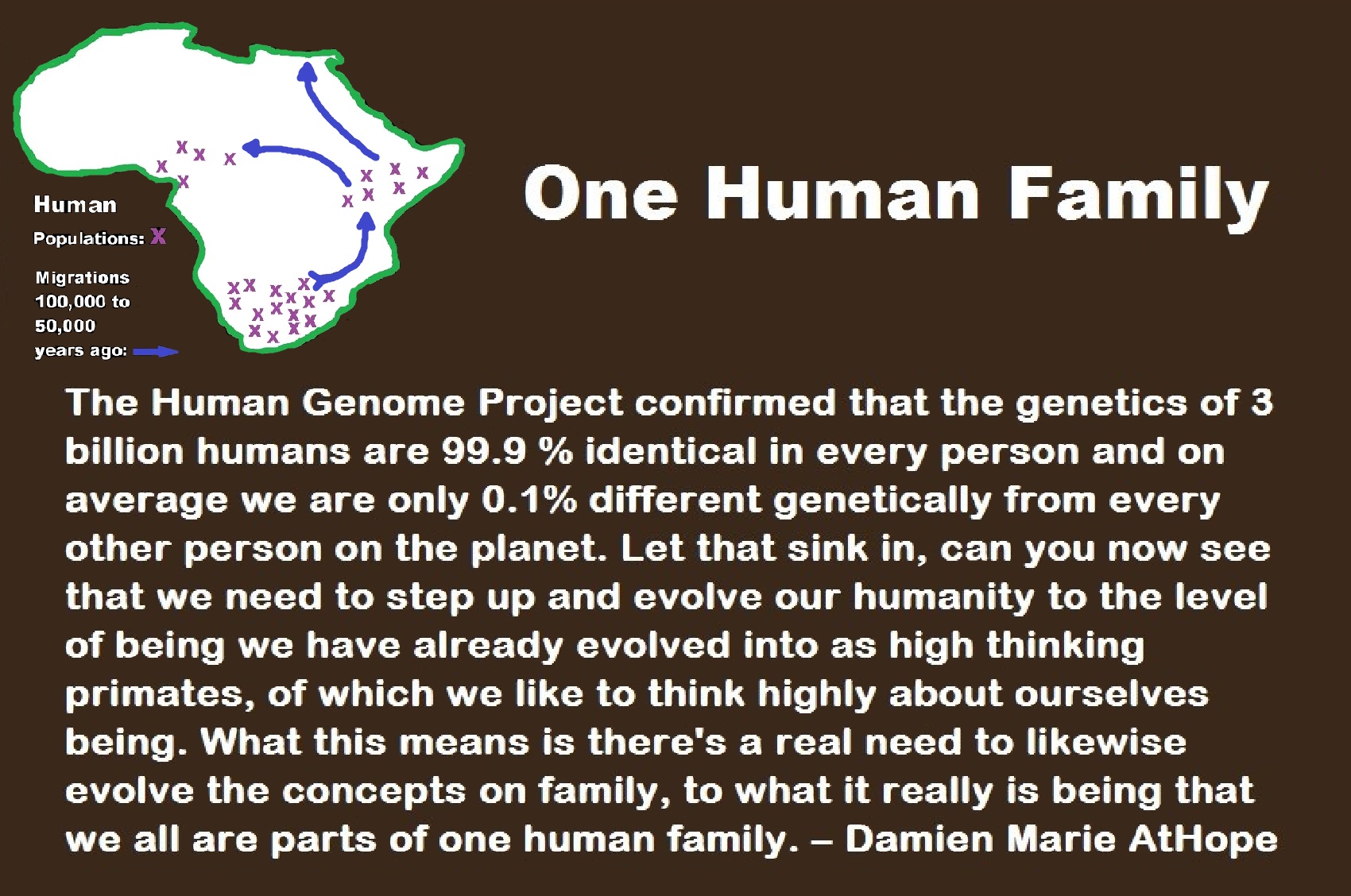
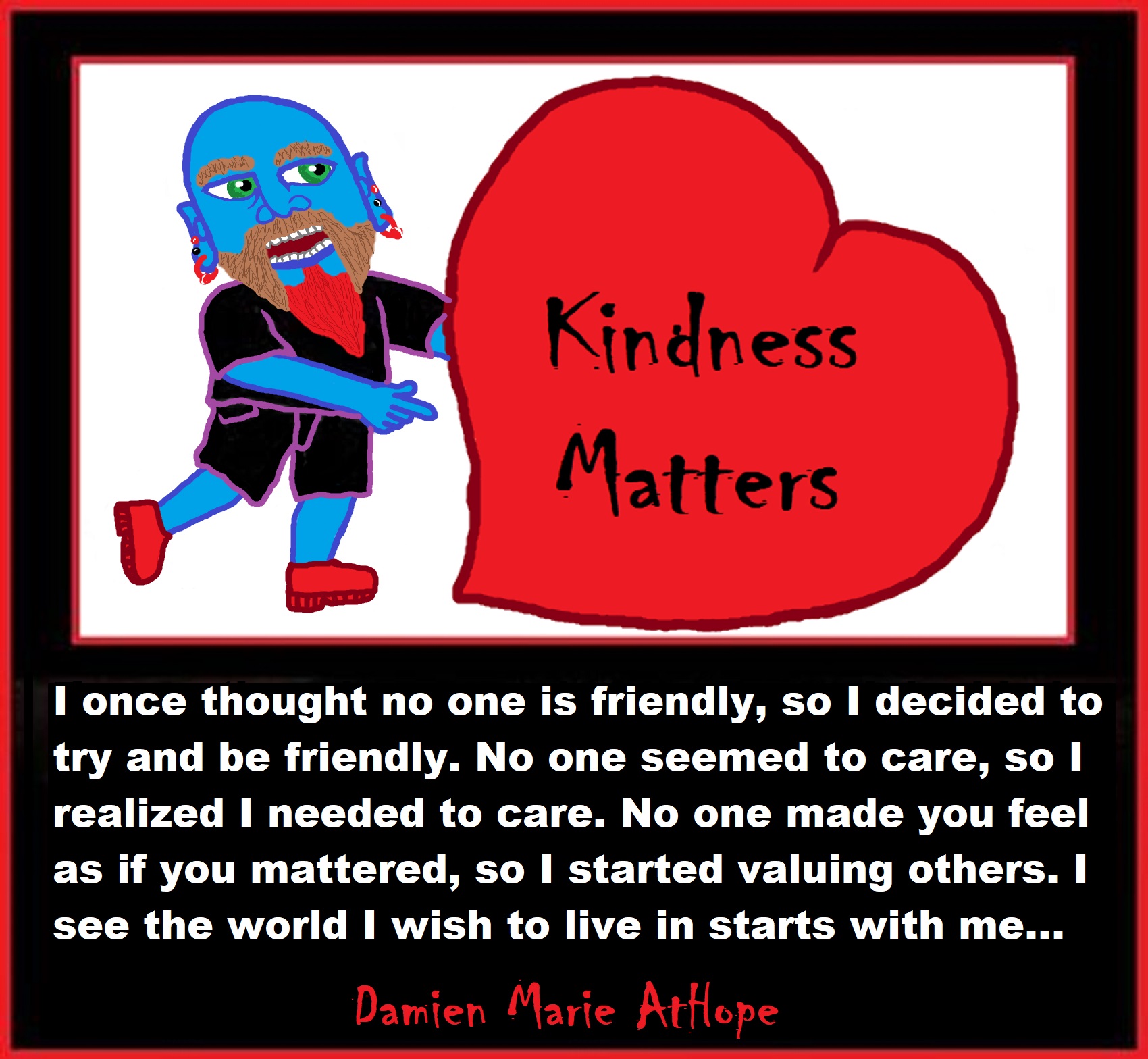
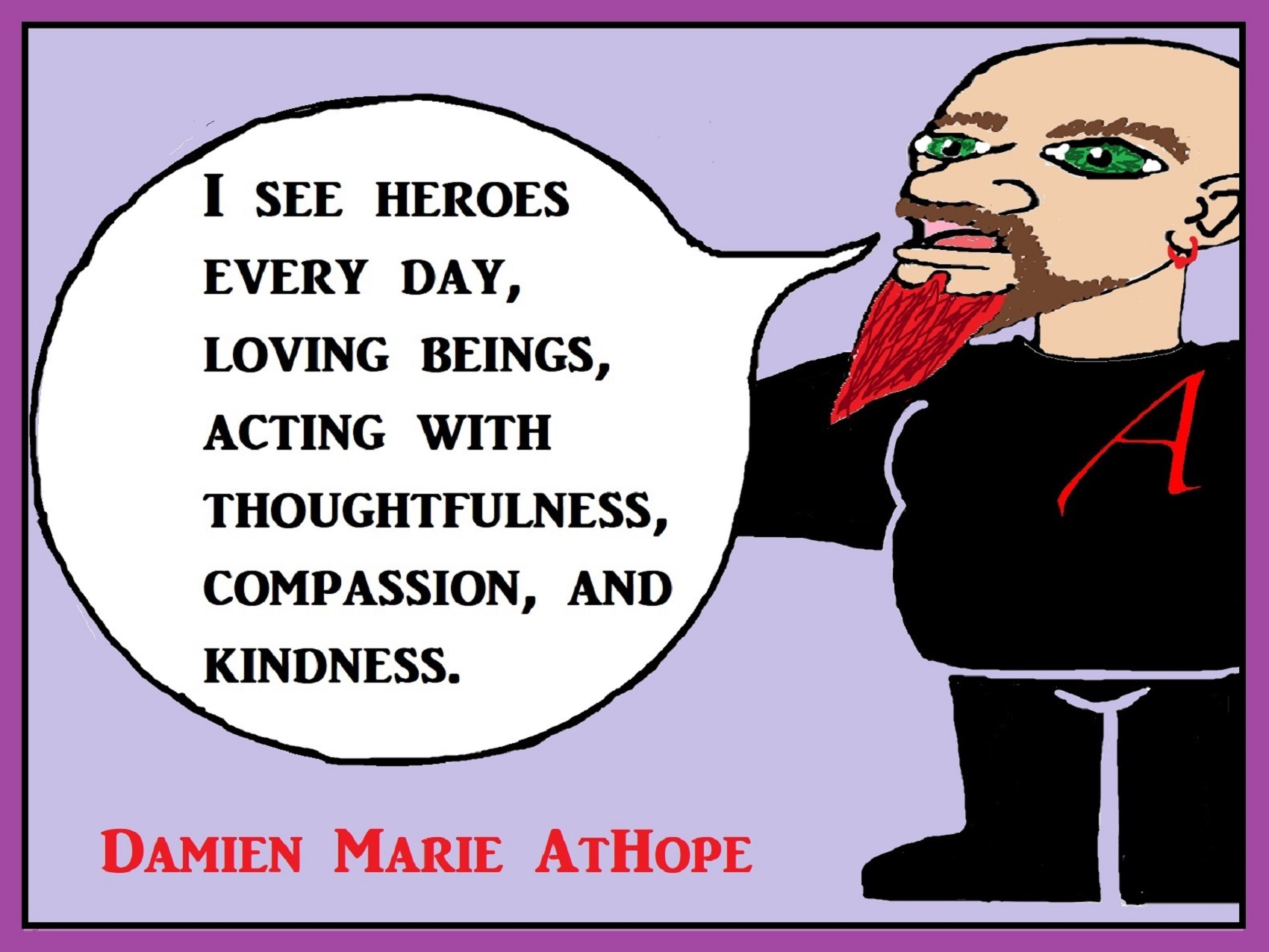
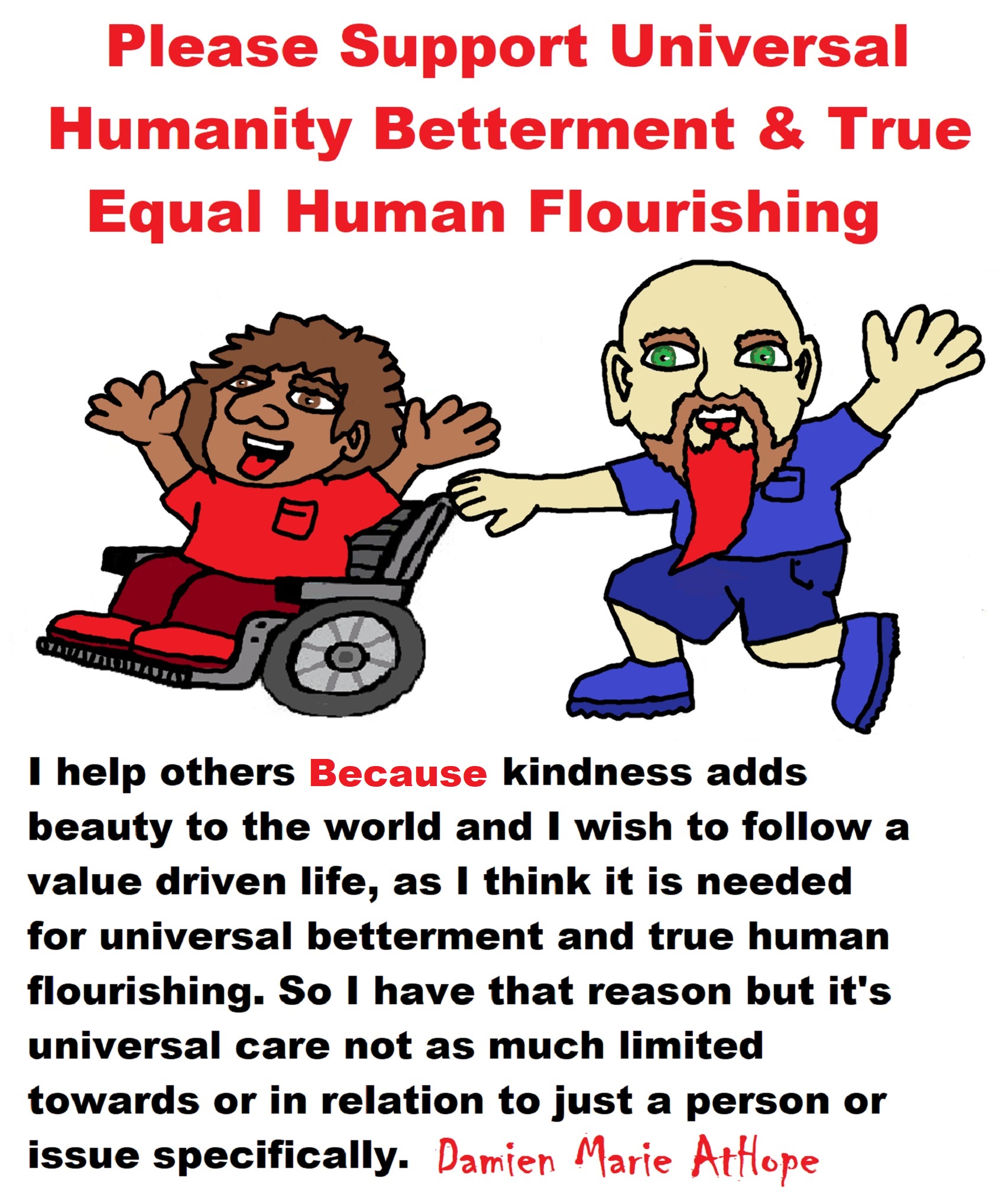
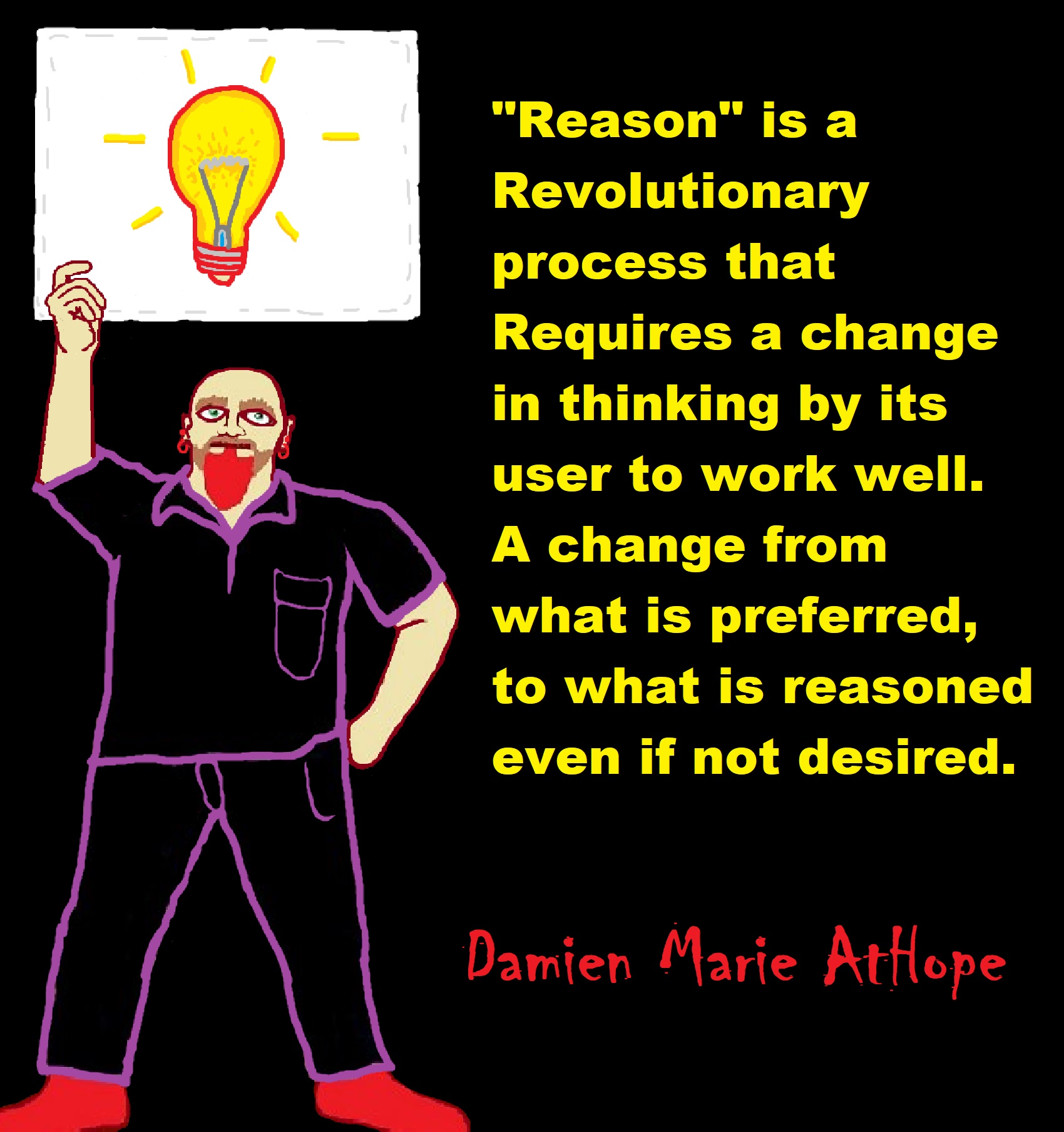

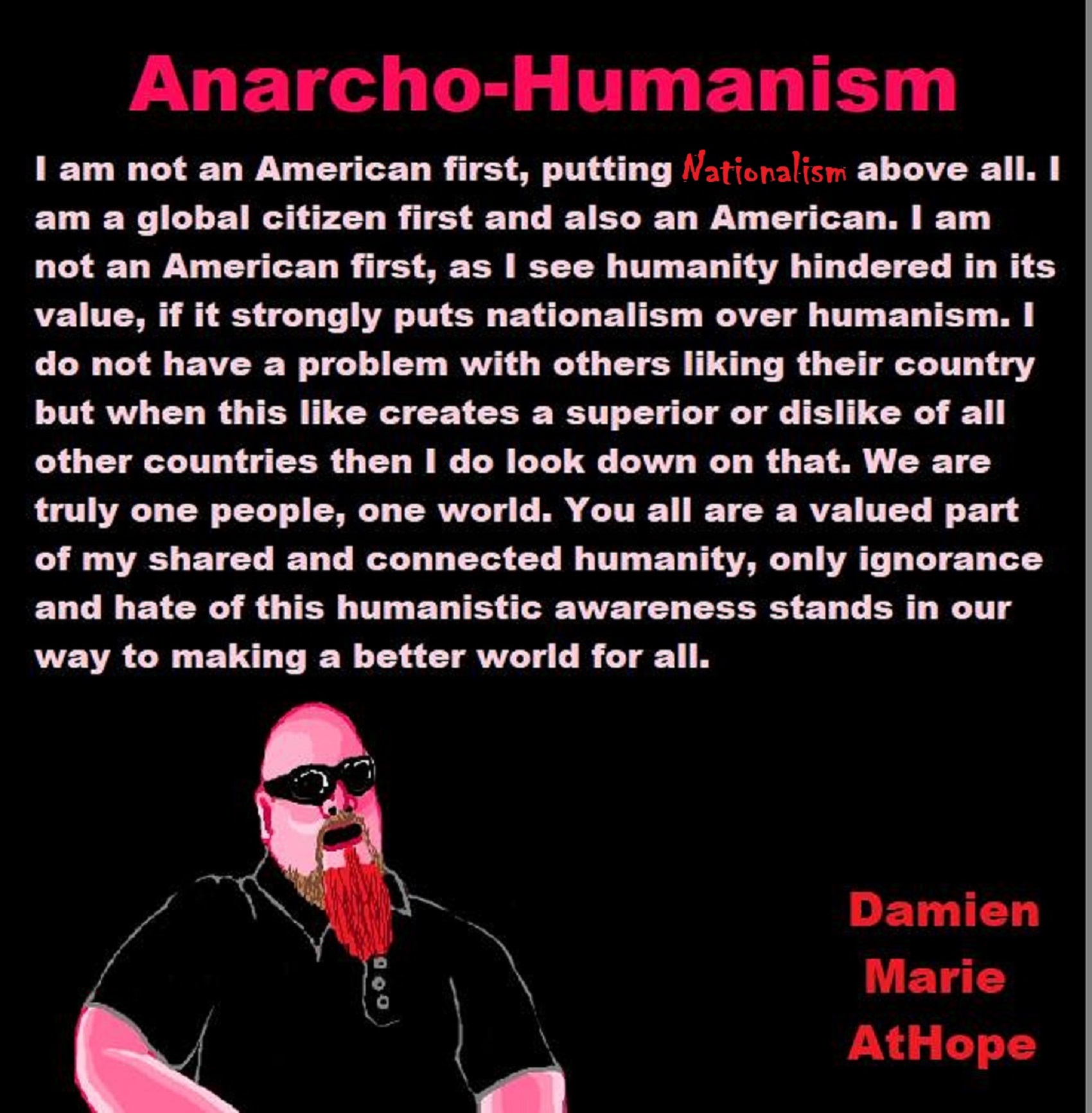
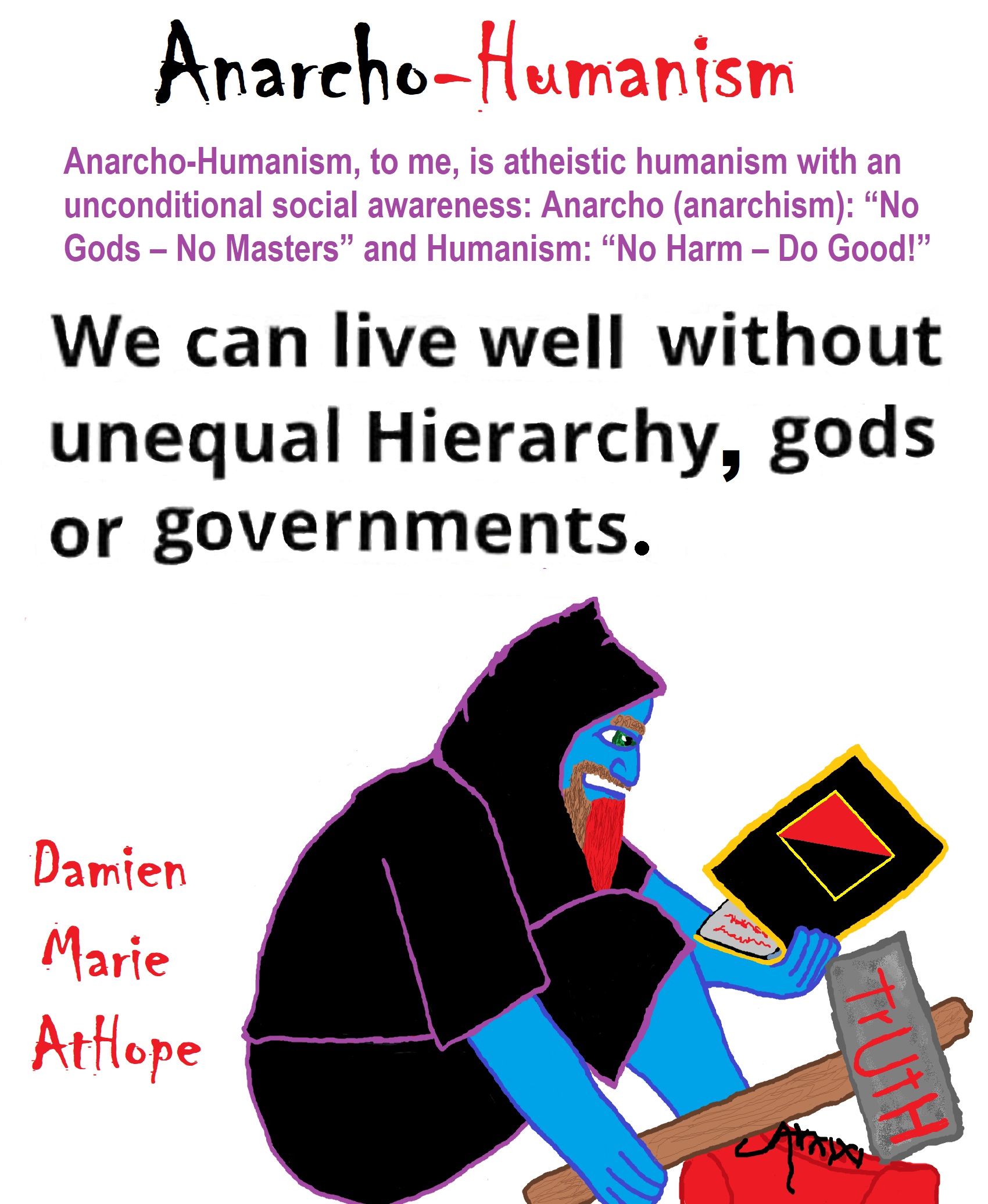
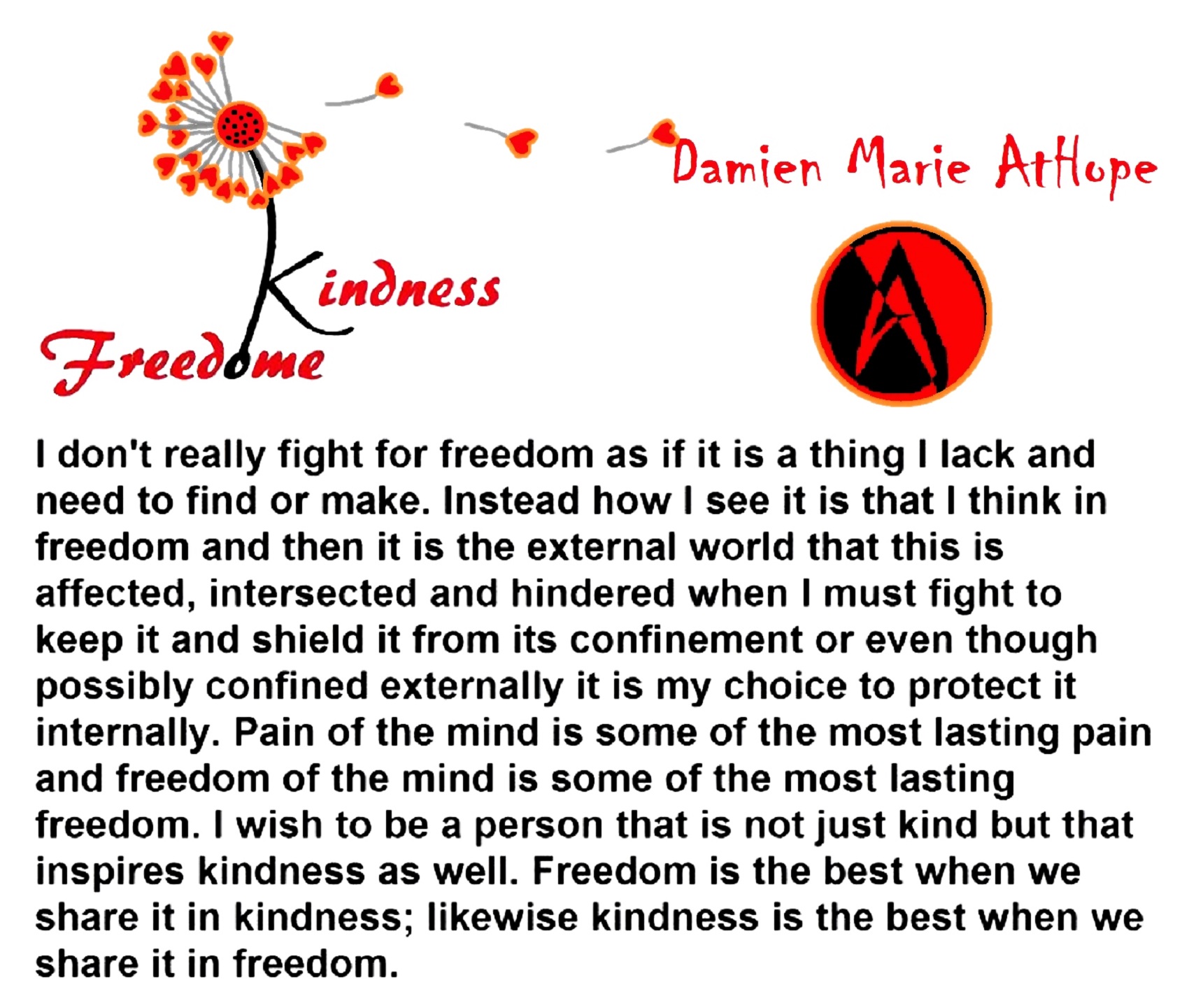
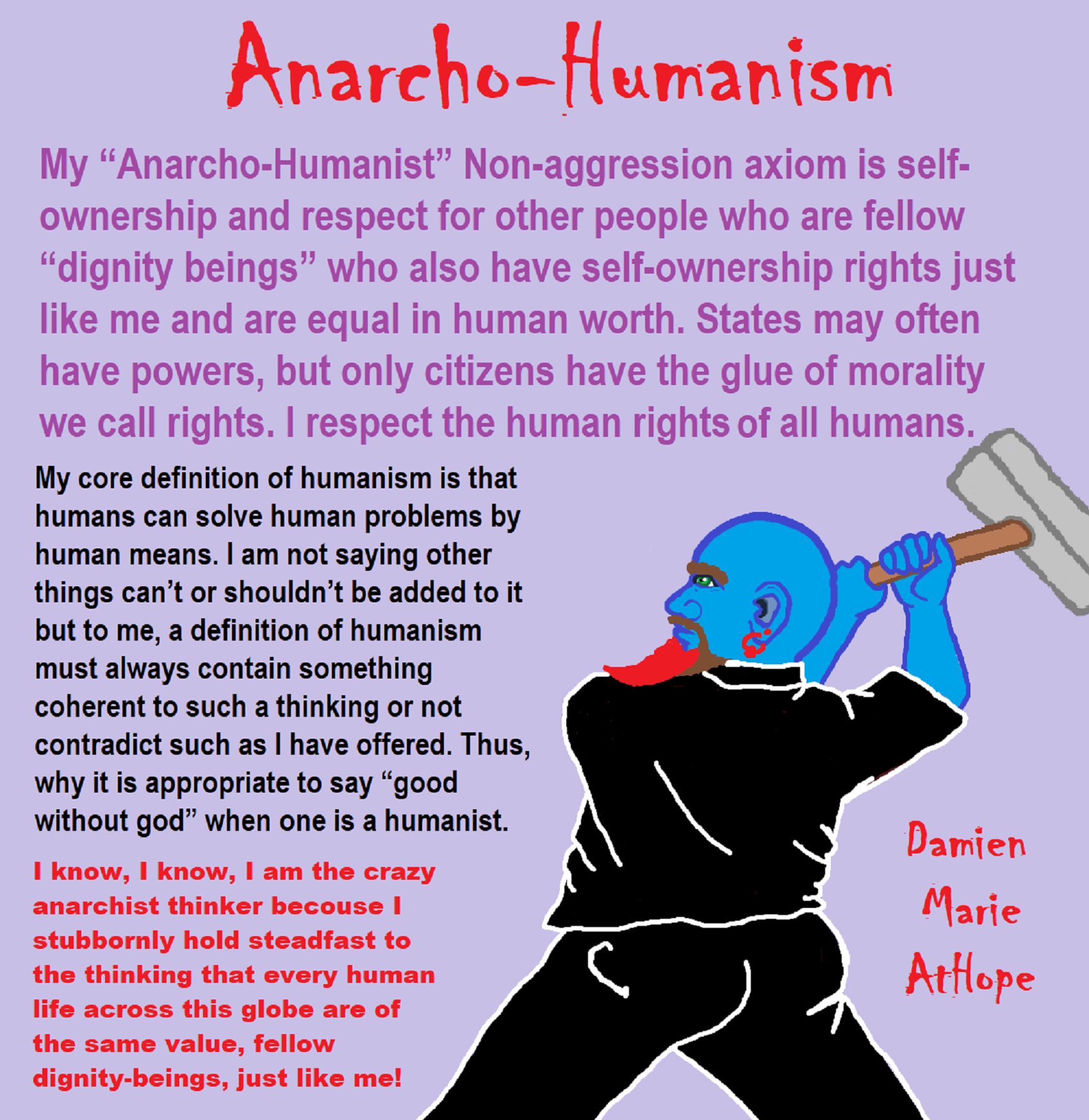

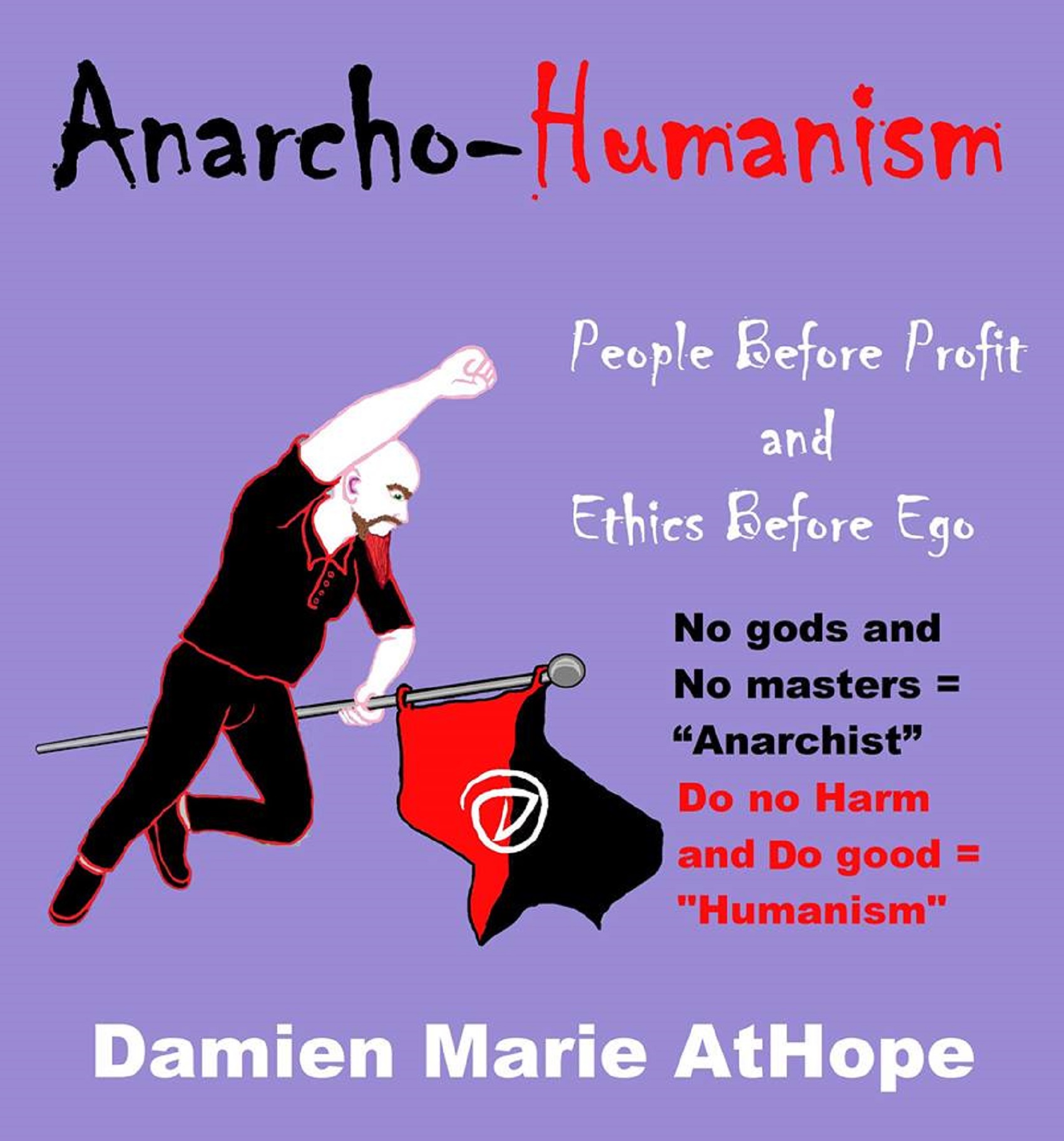
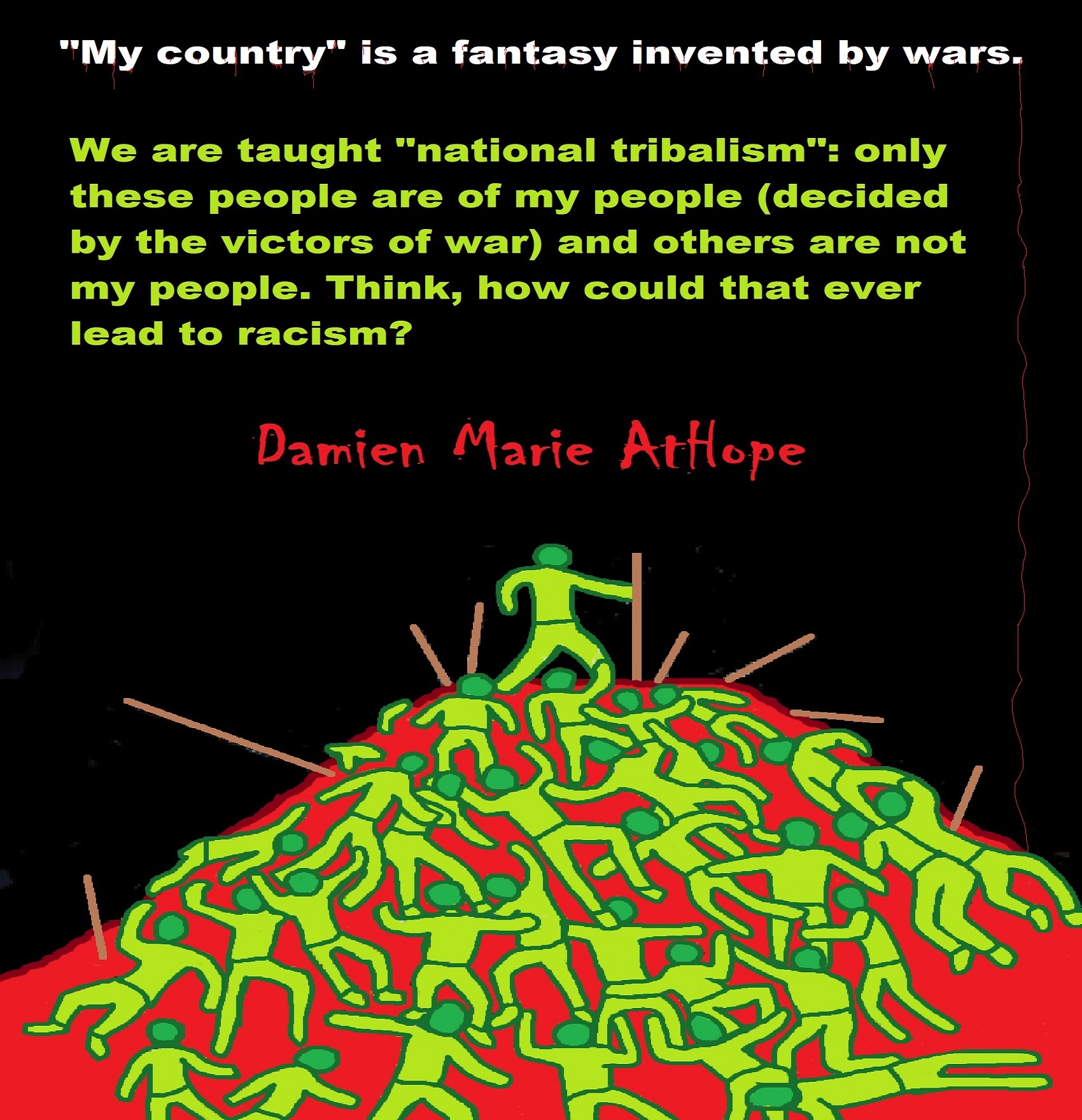
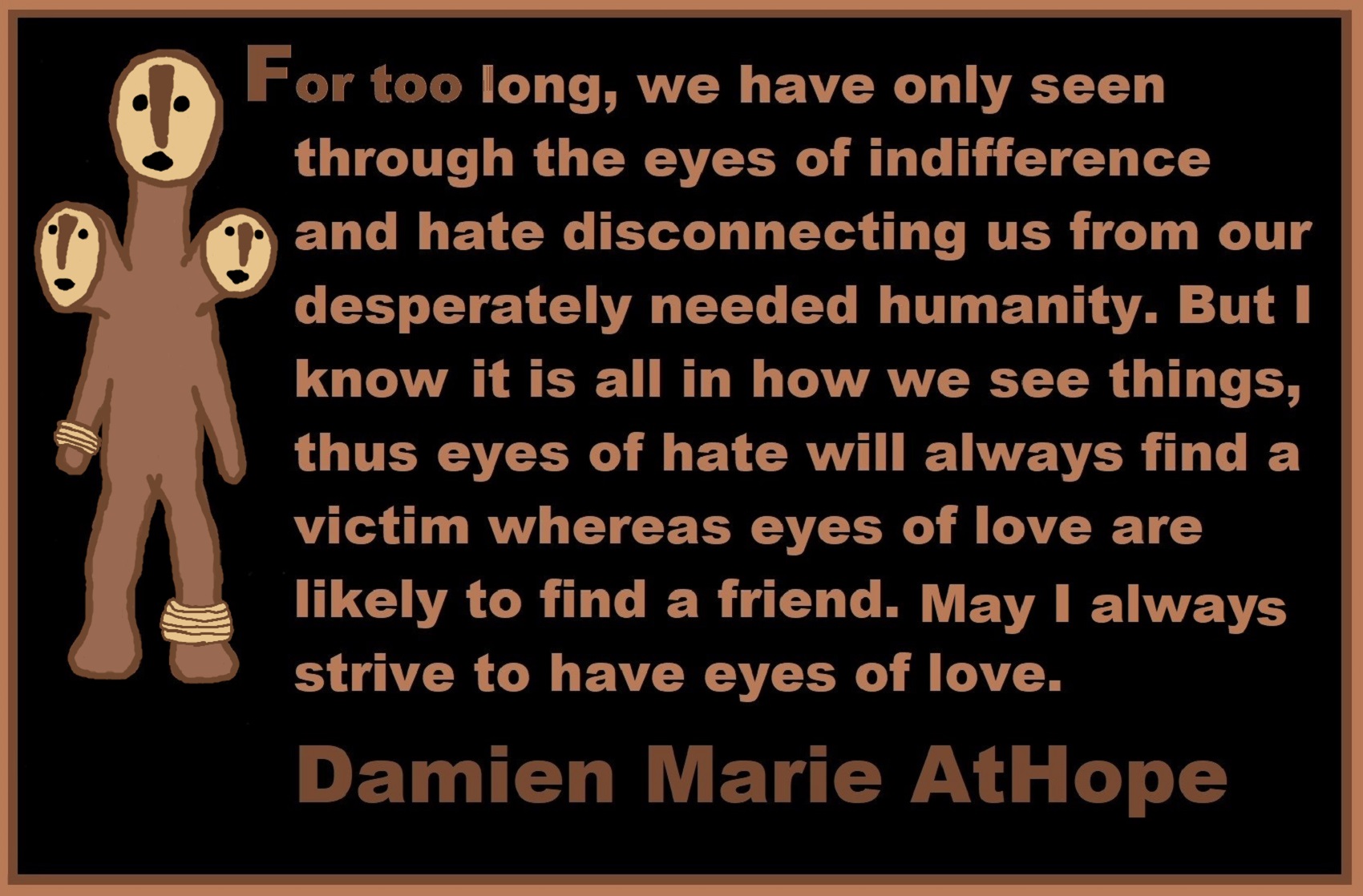
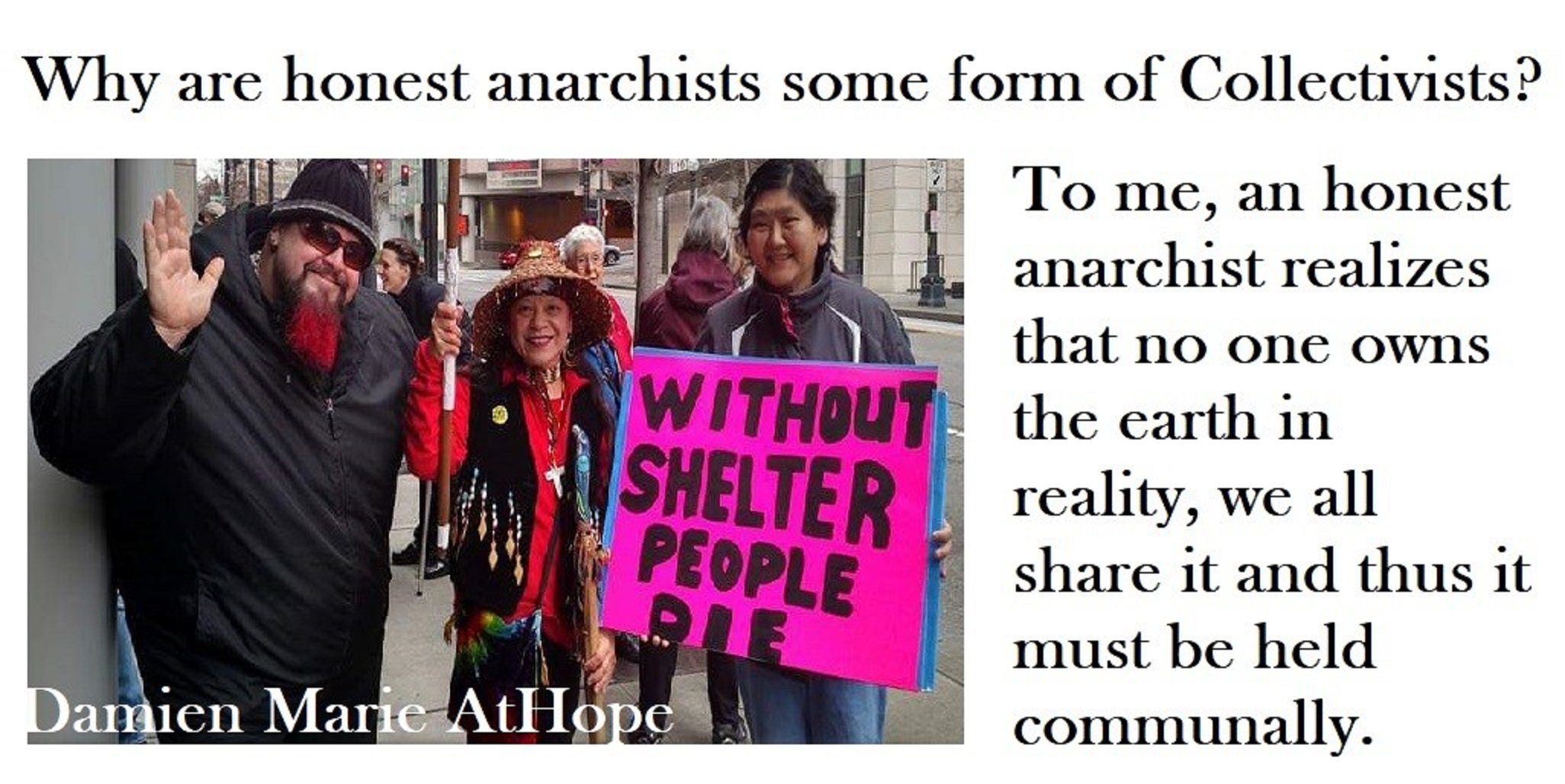
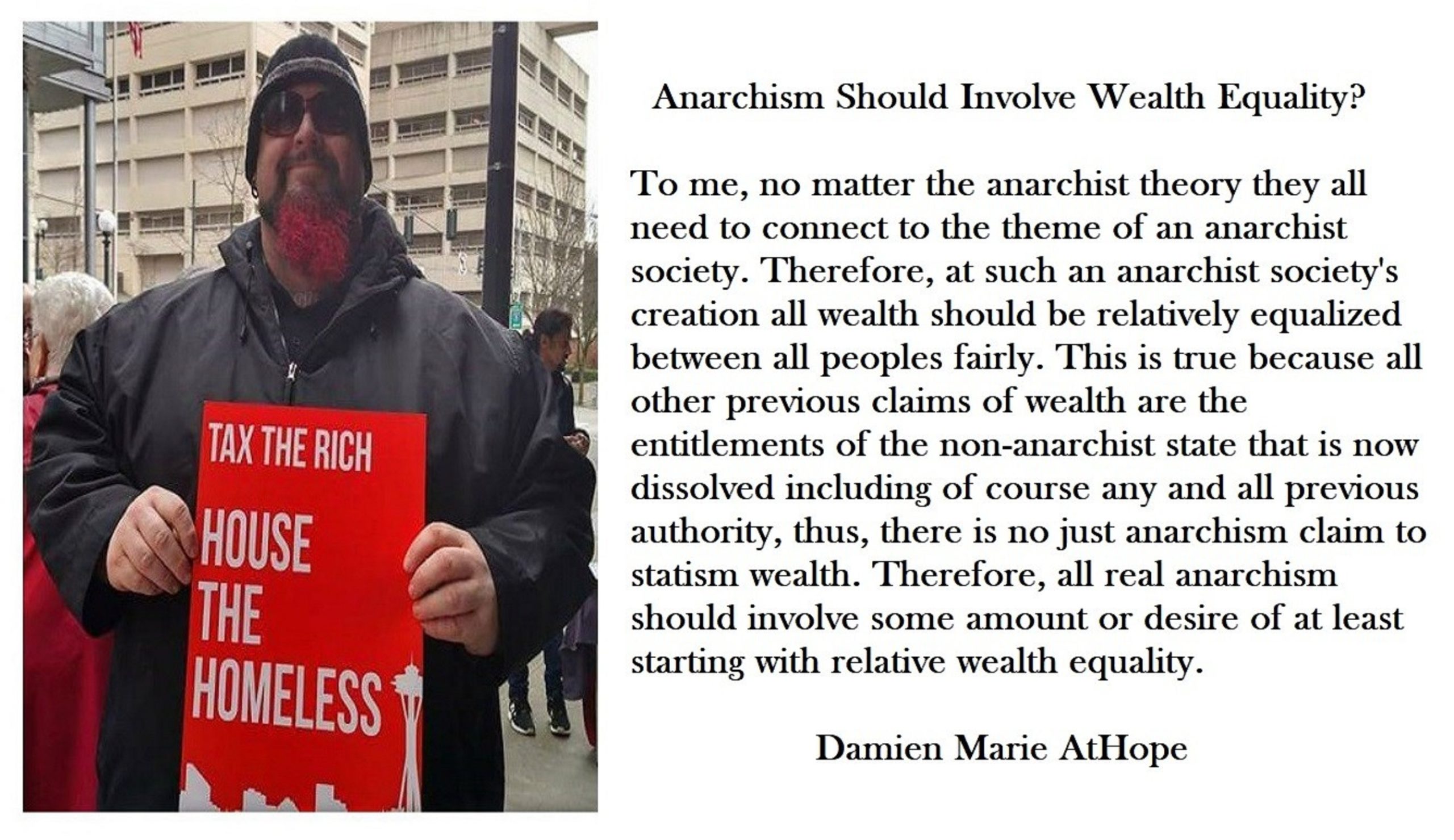
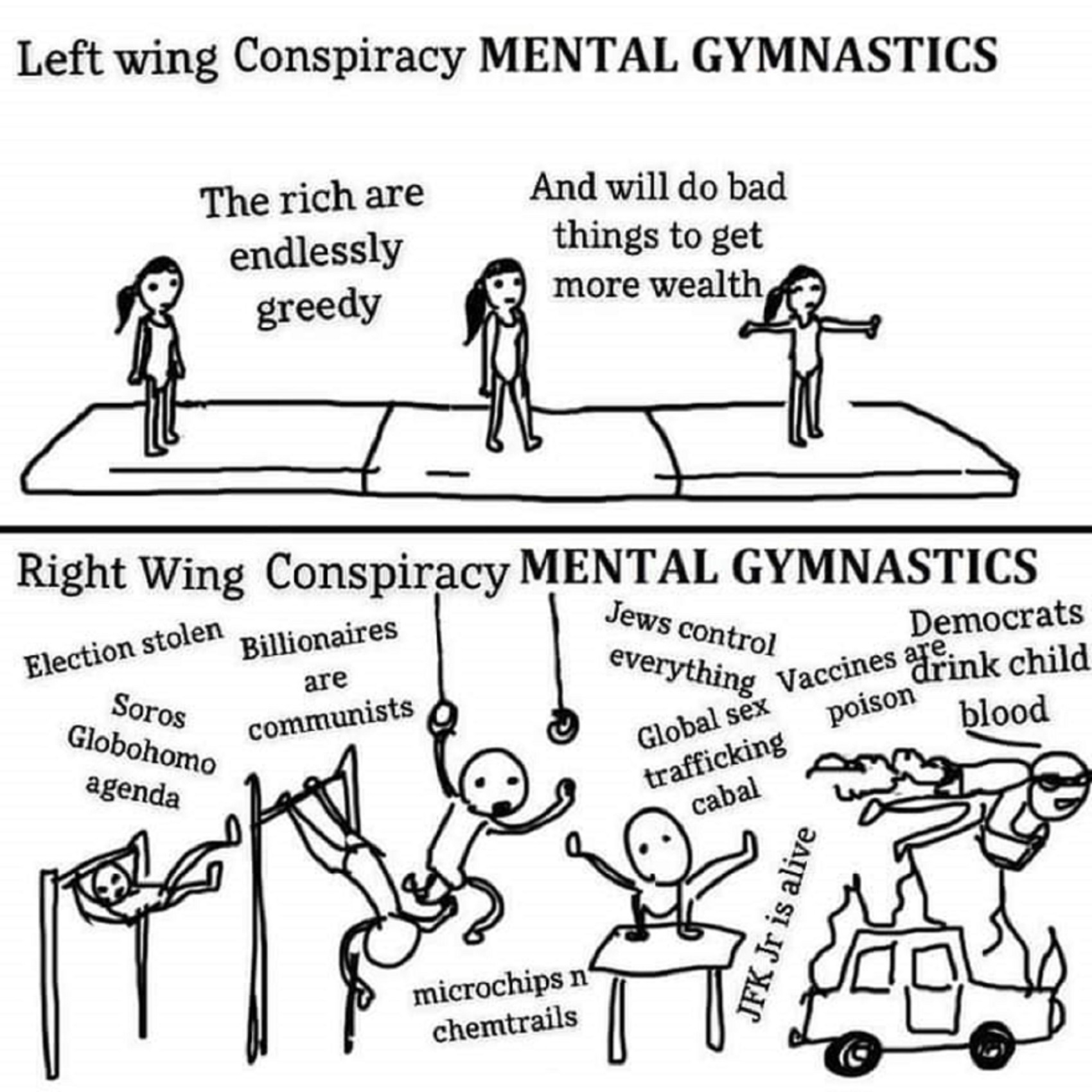
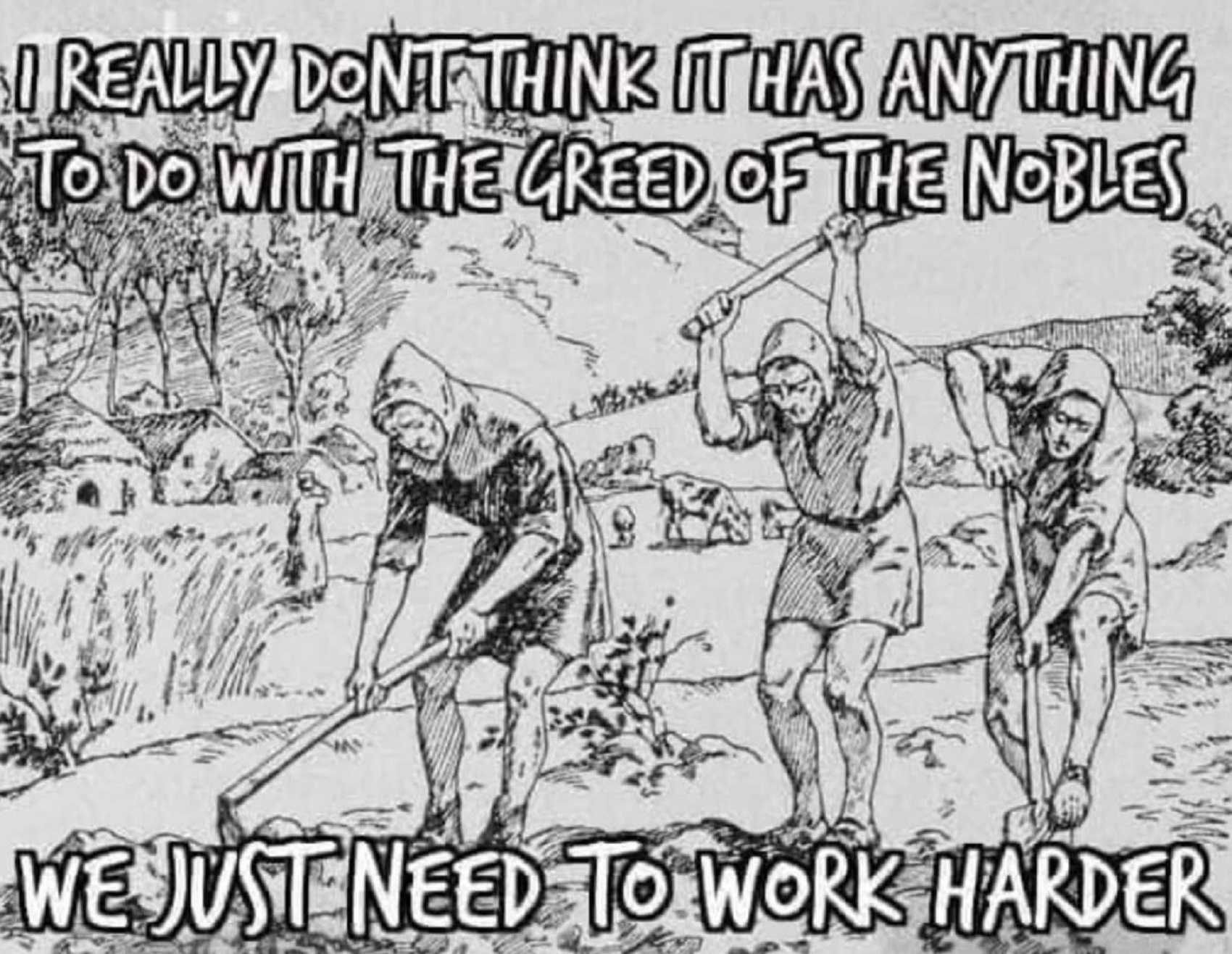
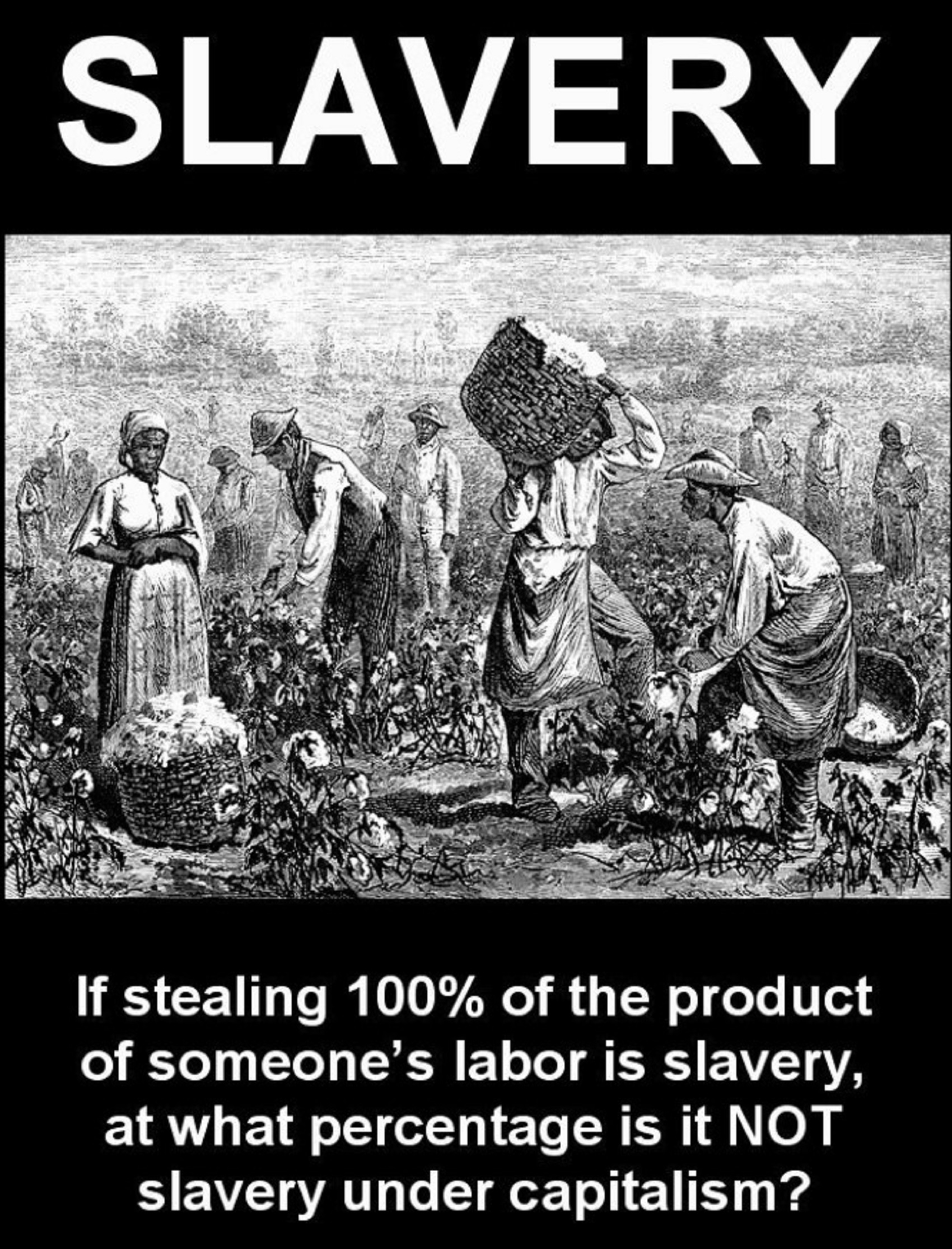
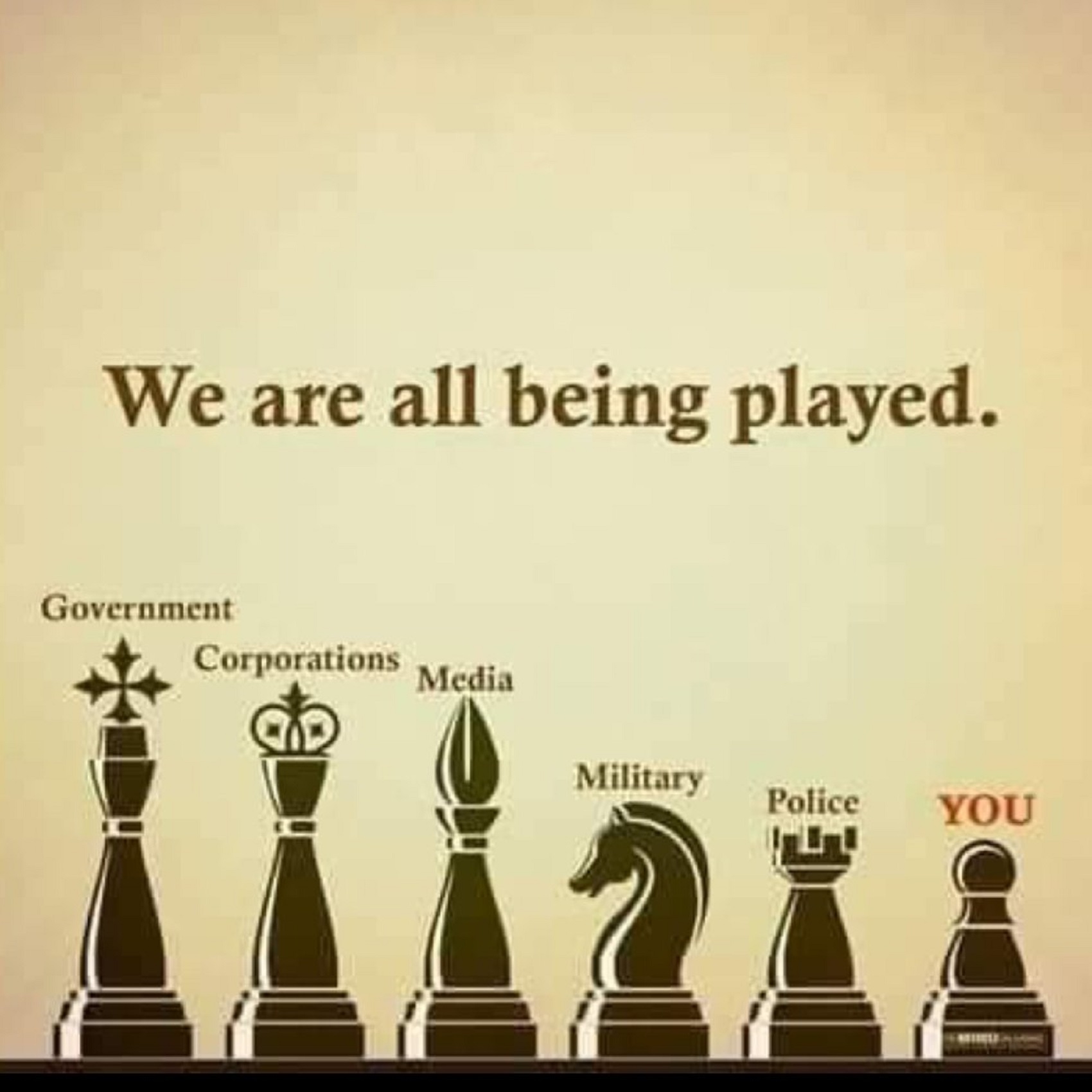
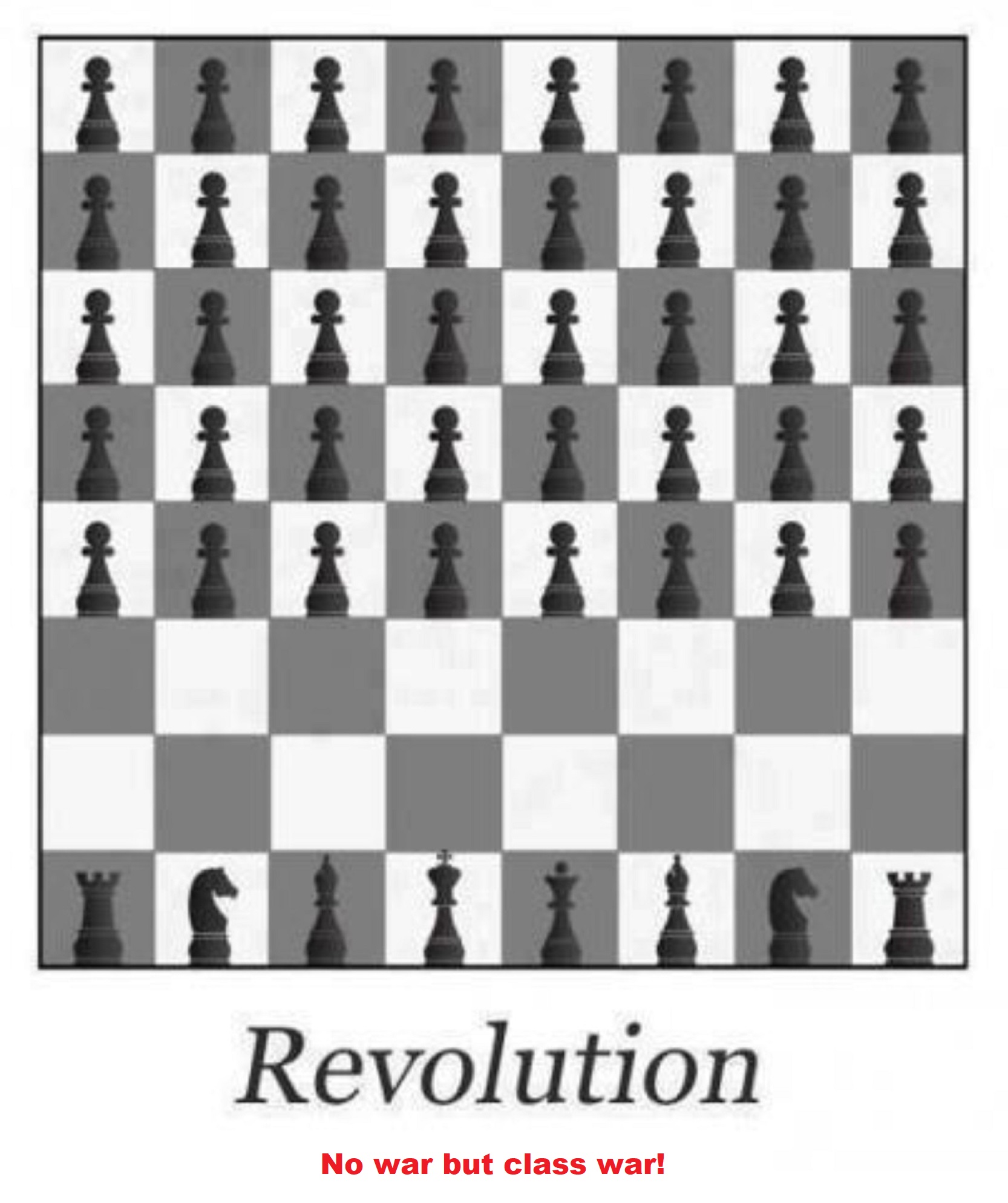
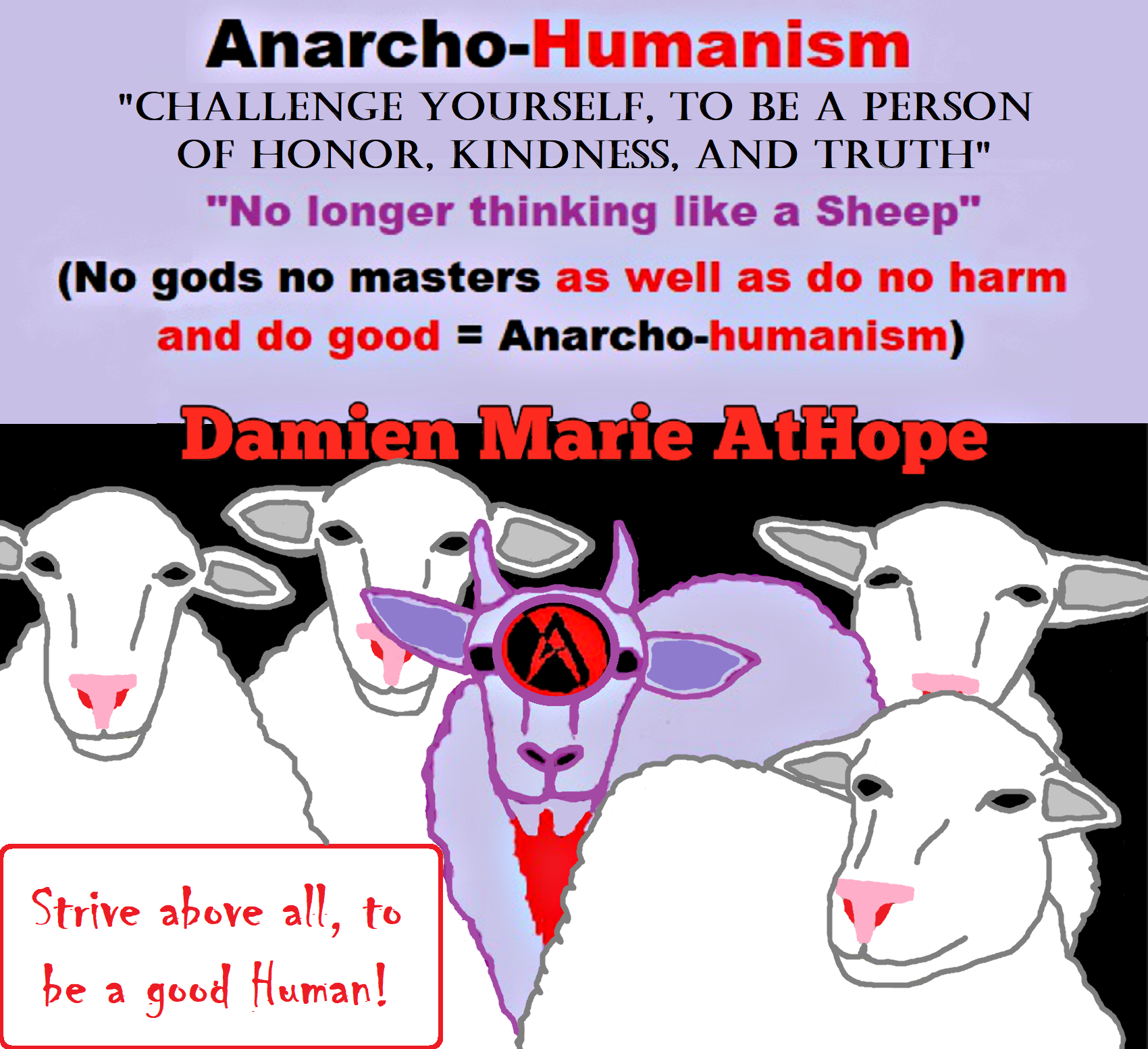

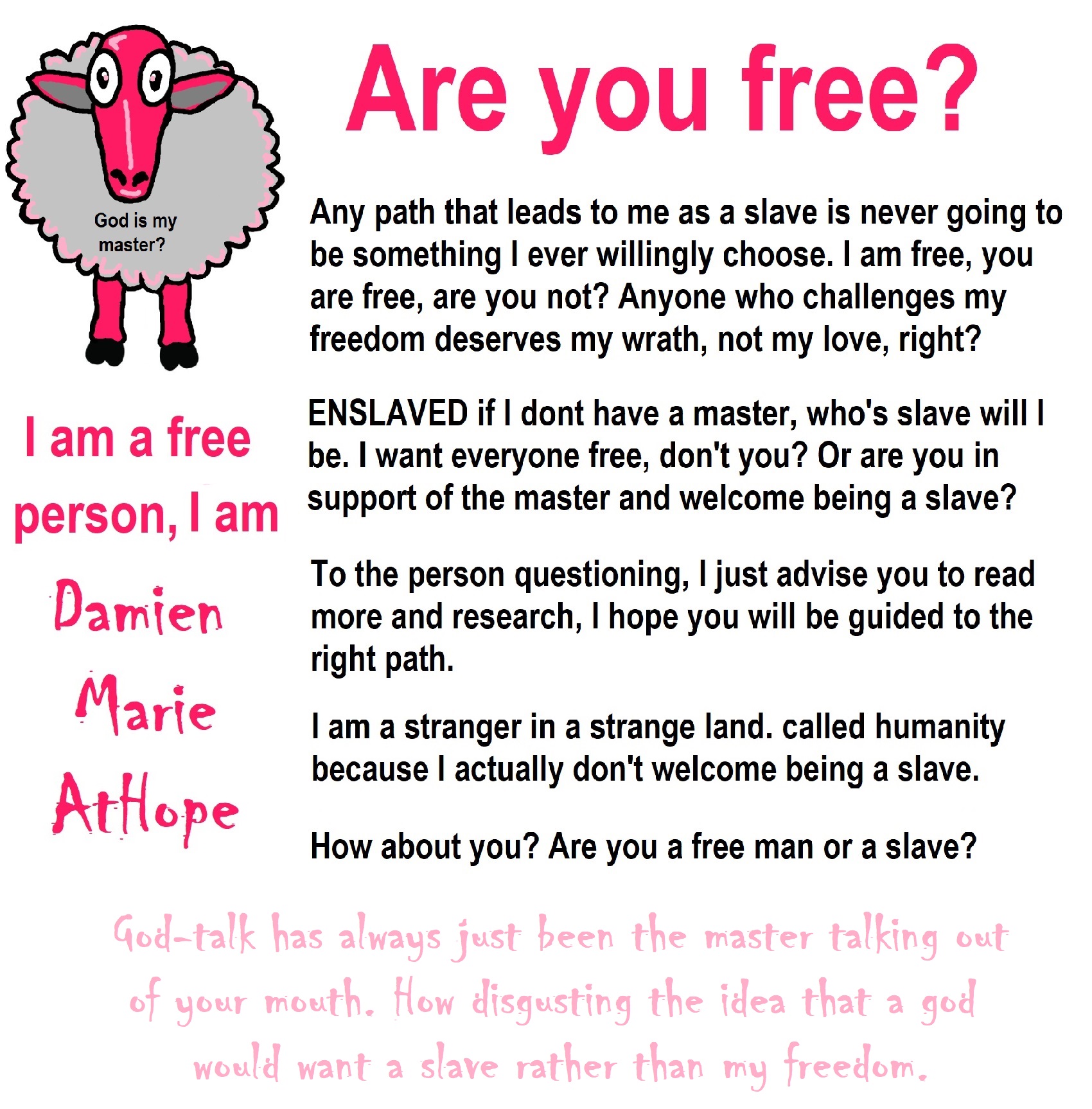


Political compass test: Link

LeftValues test: Link
Closest Match: Anarcho-Communism
Anarcho-Communism is a form of anarchism that advocates for the abolition of capitalism and the state, as well as the collective ownership of the means of production. Anarcho-Communists support a decentralized economy and government, with Anarcho-Syndicalism being a common way of organizing such a society.
Next closest matches
- Council Communism: 97.5%
- Council Communism is a form of Left Communism that emerged in Germany and Holland in the early-20th century. Council Communists reject participation in liberal democracy, support spontaneous revolutions, and believe in disempowering political parties in favor of the workers’ councils.
- Eco-Anarchism: 91.3%
- Eco-Anarchism, or Green Anarchism, is a form of anarchism that places a particular emphasis on environmental issues. It is often linked to more distinct ideologies such as Anarcho-Syndicalism. Eco-Anarchists are generally revolutionary and support using a decentralized egalitarian economy to achieve environmental goals.
- Orthodox Marxism: 89.4%
- Orthodox Marxism is a form of Marxism that adopts views that conform to Marxist theory as it was originally written, particularly on the topic of dialectical materialism. Orthodox Marxists are highly revolutionary and internationalist and hold that nonindustrial societies are incapable of achieving socialism.
- Left Communism: 87.3%
- Left Communism is a form of Marxism that leans towards so-called ultra-left positions. These include unconditional support for revolution and internationalism, a rejection of unions and participation in liberal democracy, and a rejection of national liberation and self-determination.
- Centrist Marxism: 87%
- Centrist Marxism is a form of Marxism that adopts Marxist views on society and the economy while also refraining from taking a definitive position on revolution and reformism. Many Centrist Marxists may also be more nationalistic than other Marxists.
- Democratic Socialism: 85.2%
- Democratic Socialism is a form of socialism that seeks to utilize liberal democracy as a means to achieve a socialist economy and society. Democratic Socialists reject revolution and a centrally planned economy, instead supporting moderate social ownership in the form of publicly owned utilities and democratic workplace self-management.
- Eco-Marxism: 80.8%
- Eco-Marxism is a form of Orthodox Marxism more commonly found in the modern day that places a particular emphasis on environmental issues. Eco-Marxists generally favor central economic planning as a way of combating climate issues.
- Market Anarchism: 78.9%
- Market Anarchism is a form of anarchism that mixes anarchist goals such as the abolition of hierarchy, the state and capitalism with heightened individualism and a moderate reformist approach. This should not be confused with Anarcho-Capitalism.
- Left-Wing Nationalism: 66.4%
- Left-Wing Nationalism is an ideology that mixes left-wing economics with non-xenophobic nationalism and patriotism. Many Left-Wing Nationalists are simultaneously supportive of international solidarity, and may be supportive of armed struggle.
- Social Democracy: 37.4%
- Social Democracy is a center-left ideology that advocates for mixing left-leaning values such as social welfare and corporate regulation with capitalism and liberal democracy in the form of a mixed economy. Many modern Social Democrats favor Keynesian economics.
- Marxism-Leninism: 35.1%
- Marxism-Leninism is a form of Marxism that was forged in the 20th century in the Soviet Union. Marxist-Leninists heavily favor the use of a communist political party as the platform for both achieving revolution and establishing socialism. Many Marxist-Leninists are somewhat more nationalistic and patriotic than many other Marxists, and may favor industrial progress over environmental goals.
- Utopian Socialism: 0%
- Utopian Socialism is a form of pre-Marxist socialism that believes highly in an egalitarian, moralistic and idealistic foundation for a socialist society. Utopian Socialists generally reject violent revolution and often believe the ruling class can be convinced to adopt socialism.
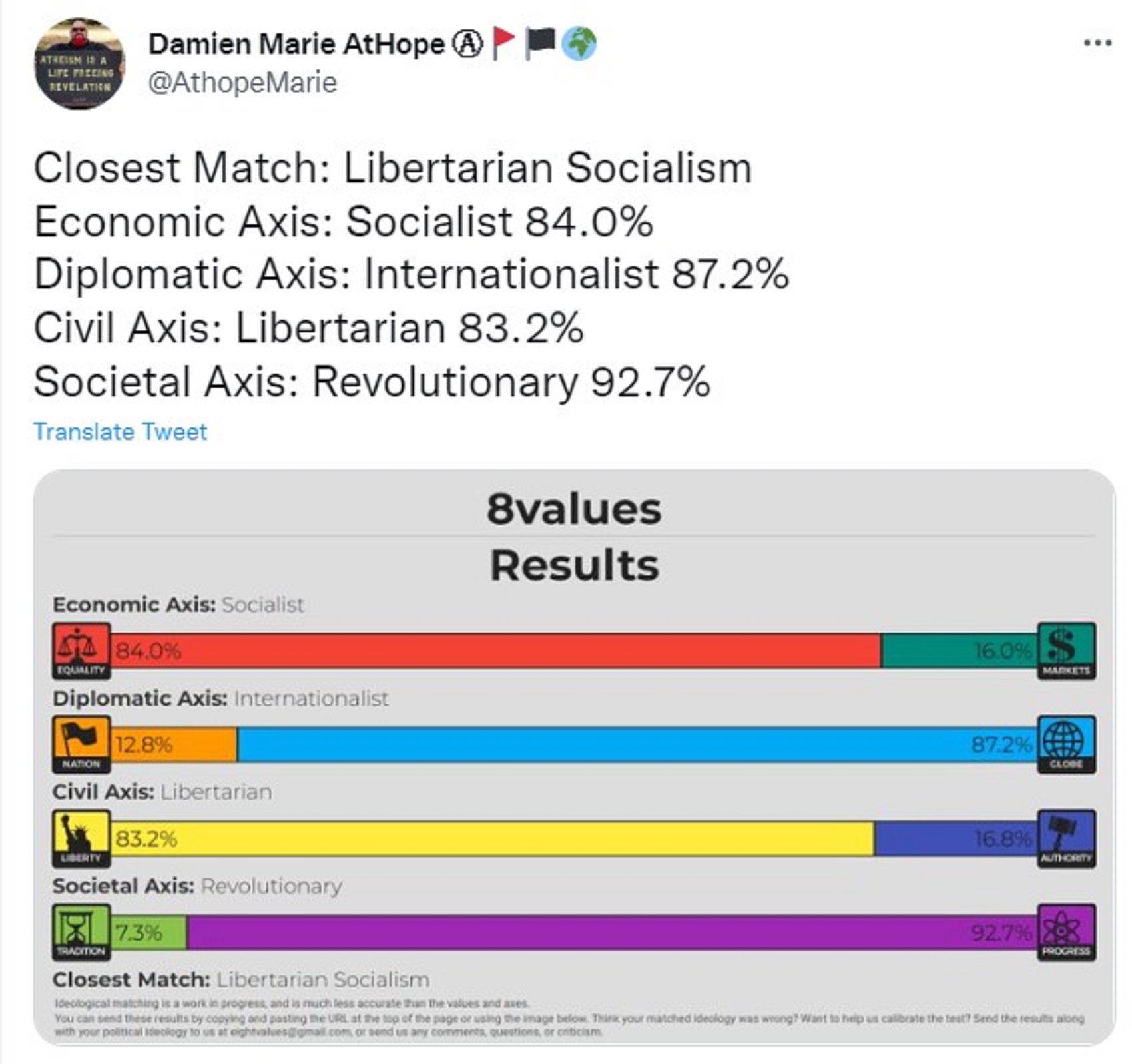
8values test: Link
Being a humanist is extremely important to me, so much so, it is a driving force in my political thinking, and that is why I call myself an anarcho-humanist.
Anarcho-Humanist
Anarcho (anarchist-socialist) “no gods and no masters” & Humanist “do no harm and do good”
I was a Right-winger and Christian, mainly until I turned atheist at 35. But it was not until around 41 when I was told my thoughts were anarchism and then experiencing anarcho-capitalists made me realize, that I was a socialist around 42.
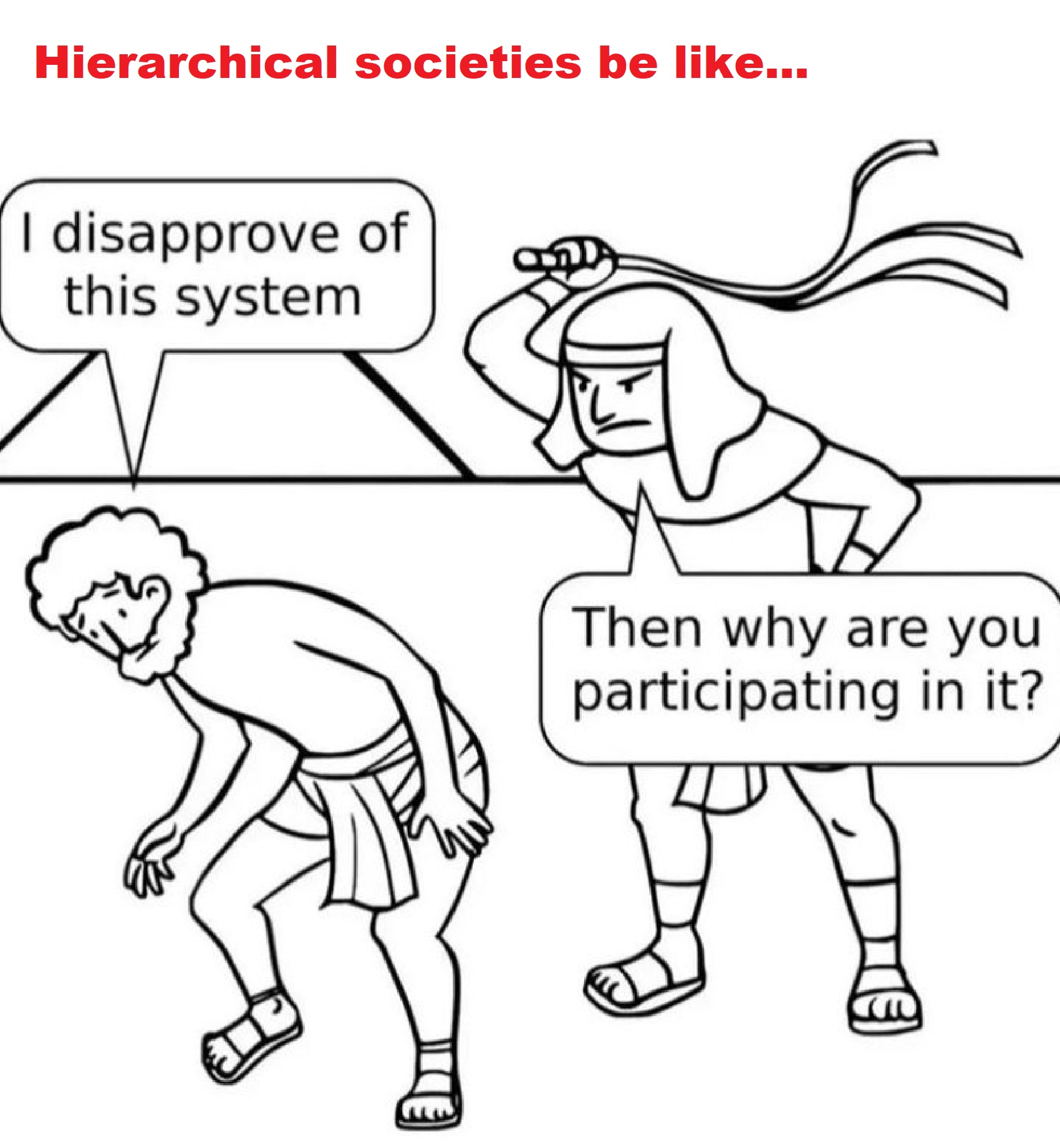
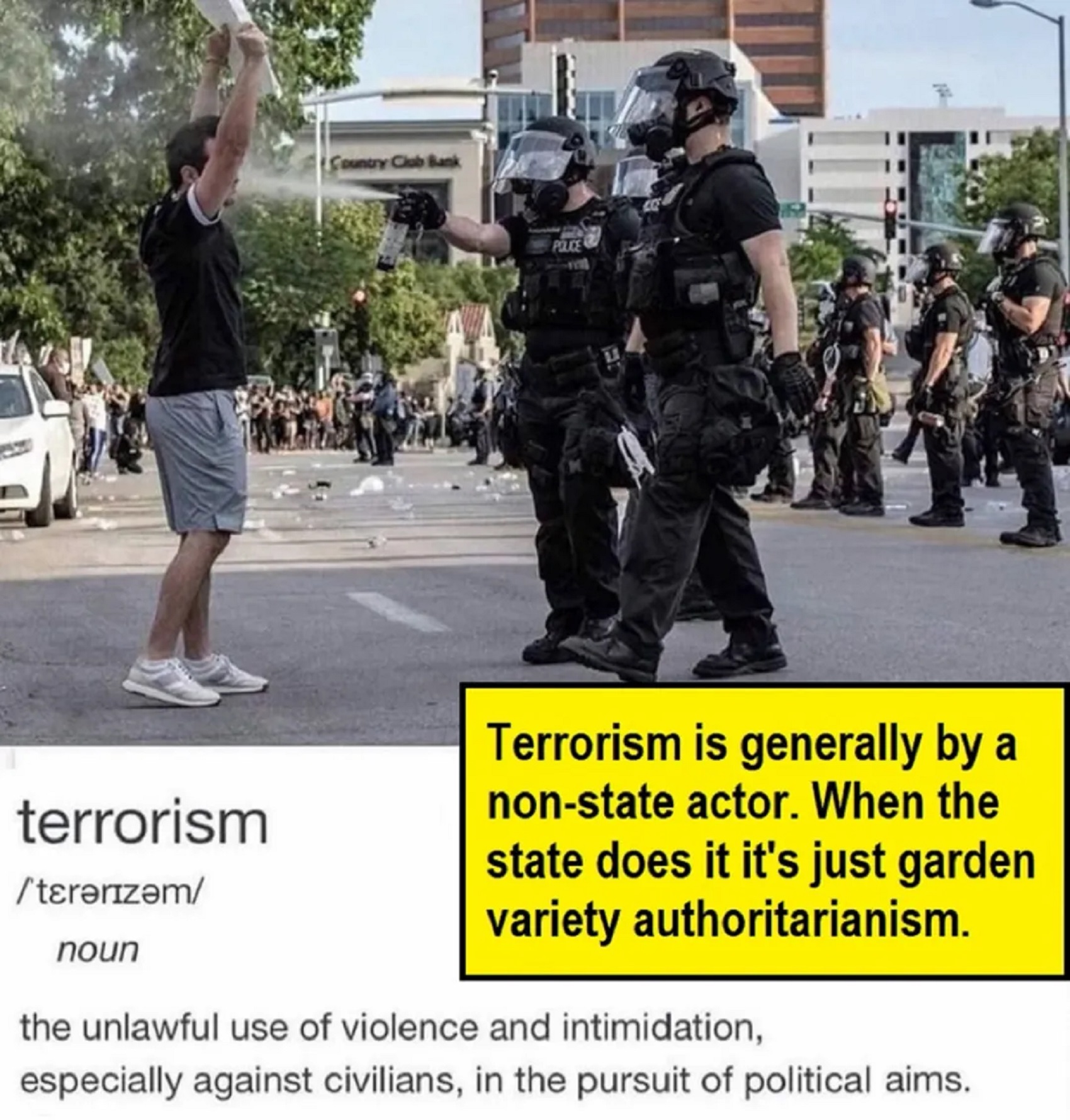
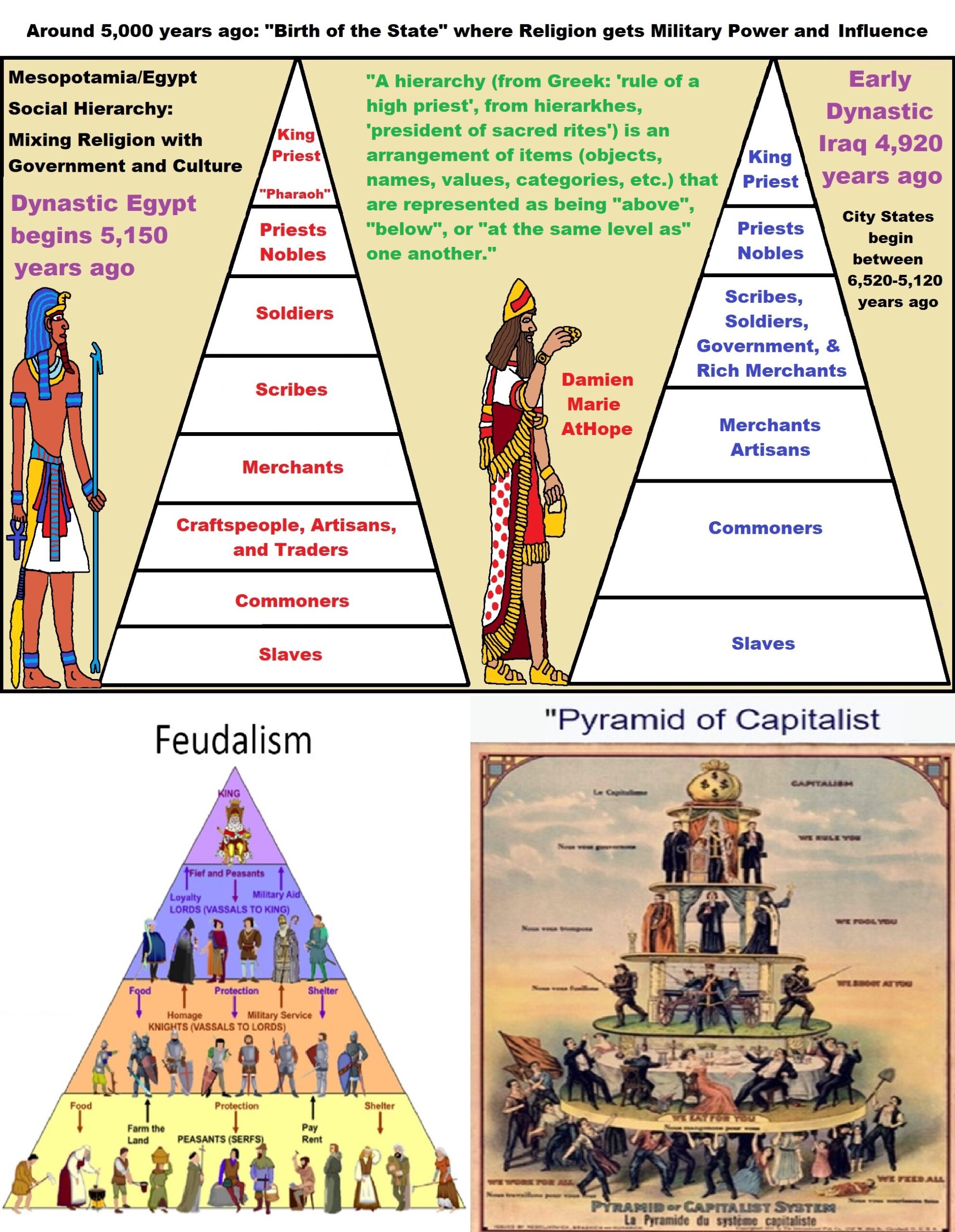
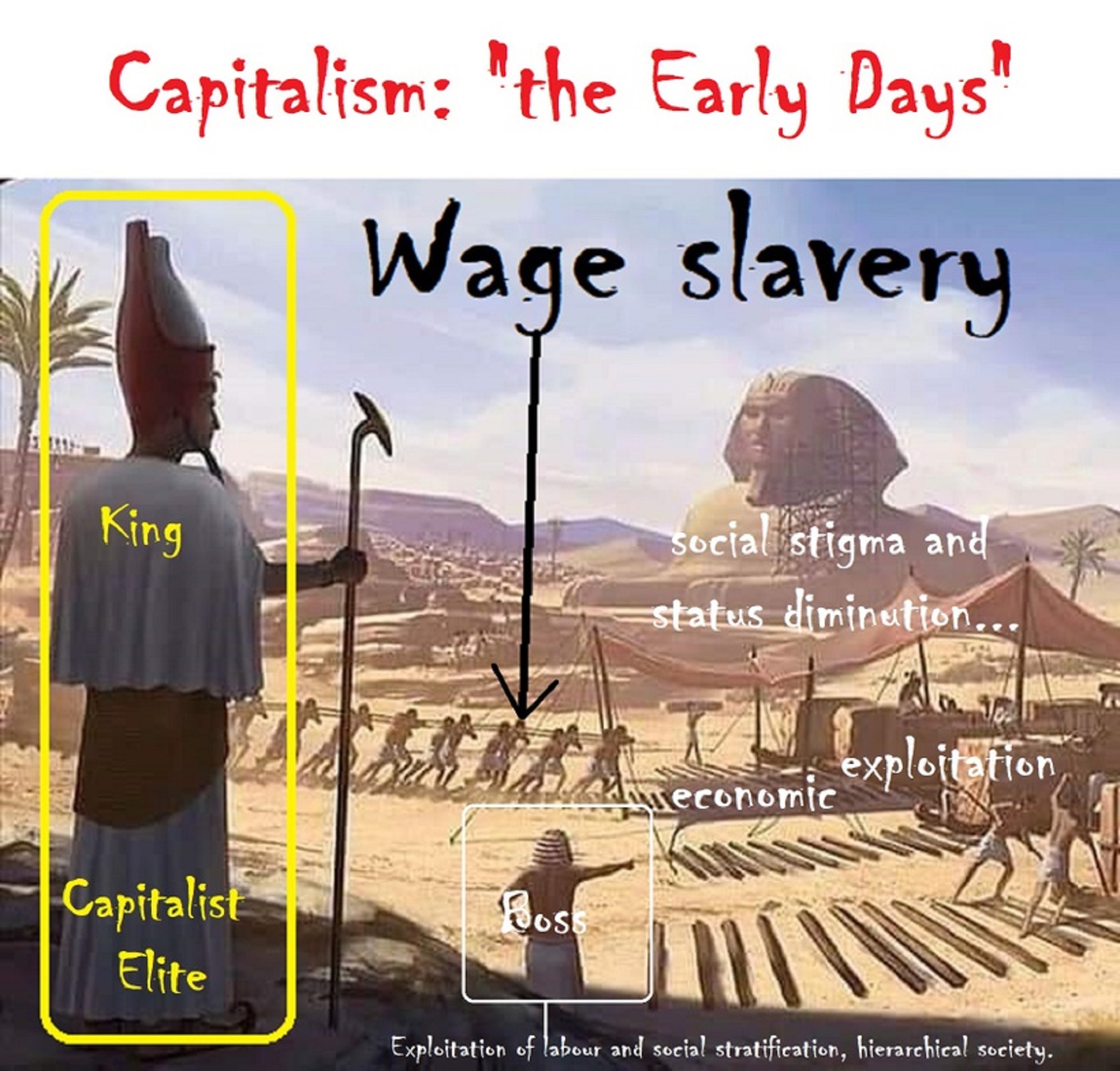
I wrote the writing on the picture.
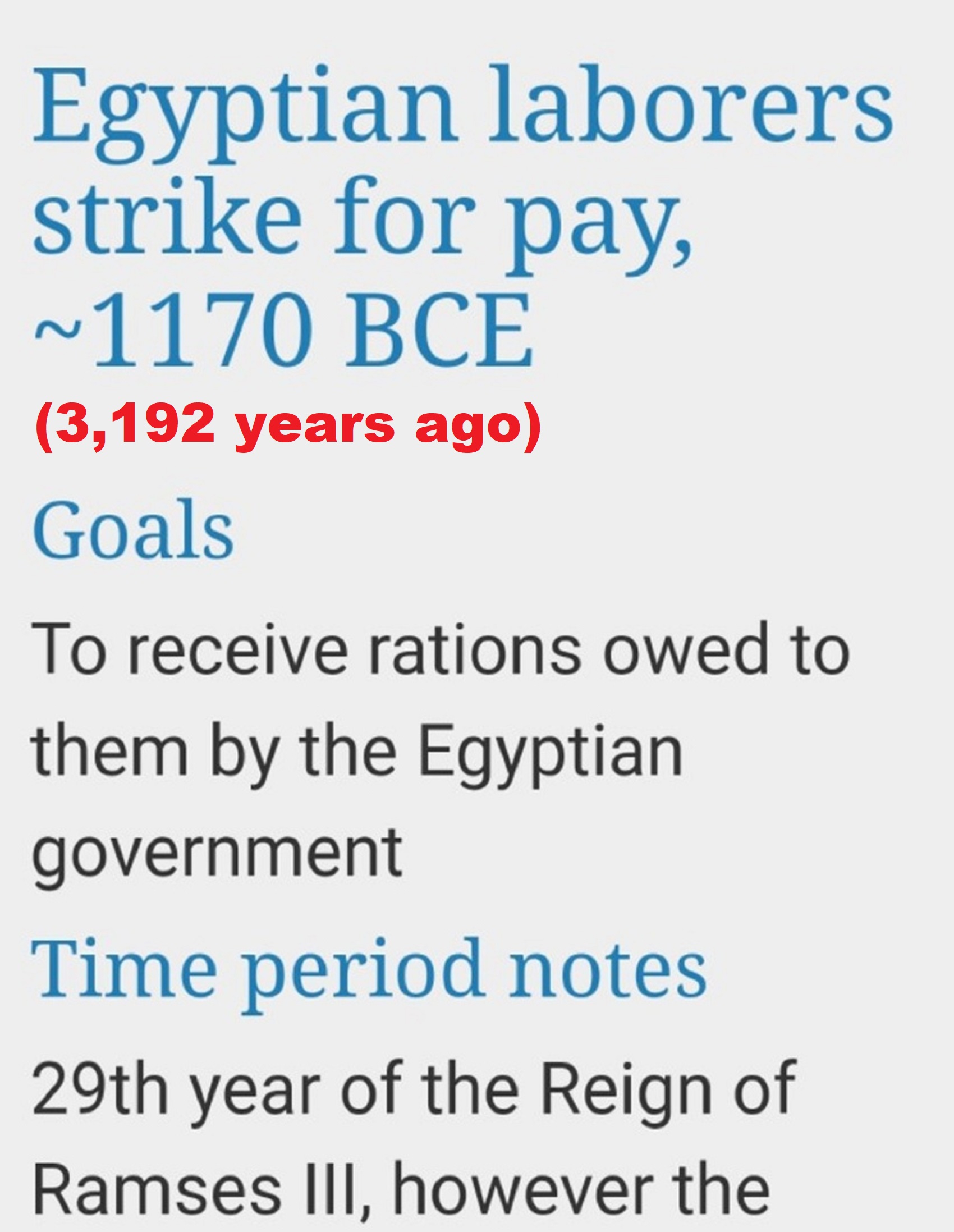
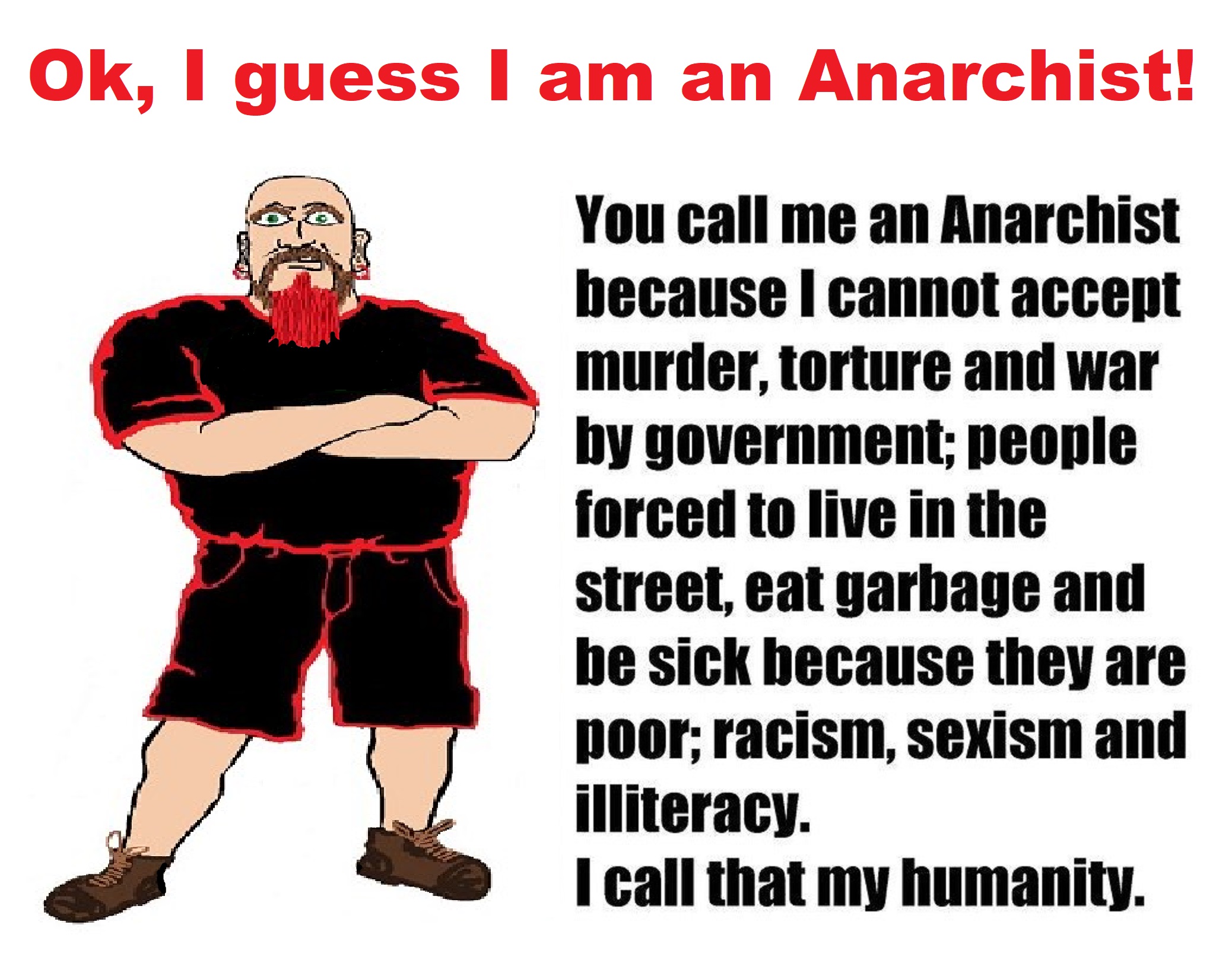

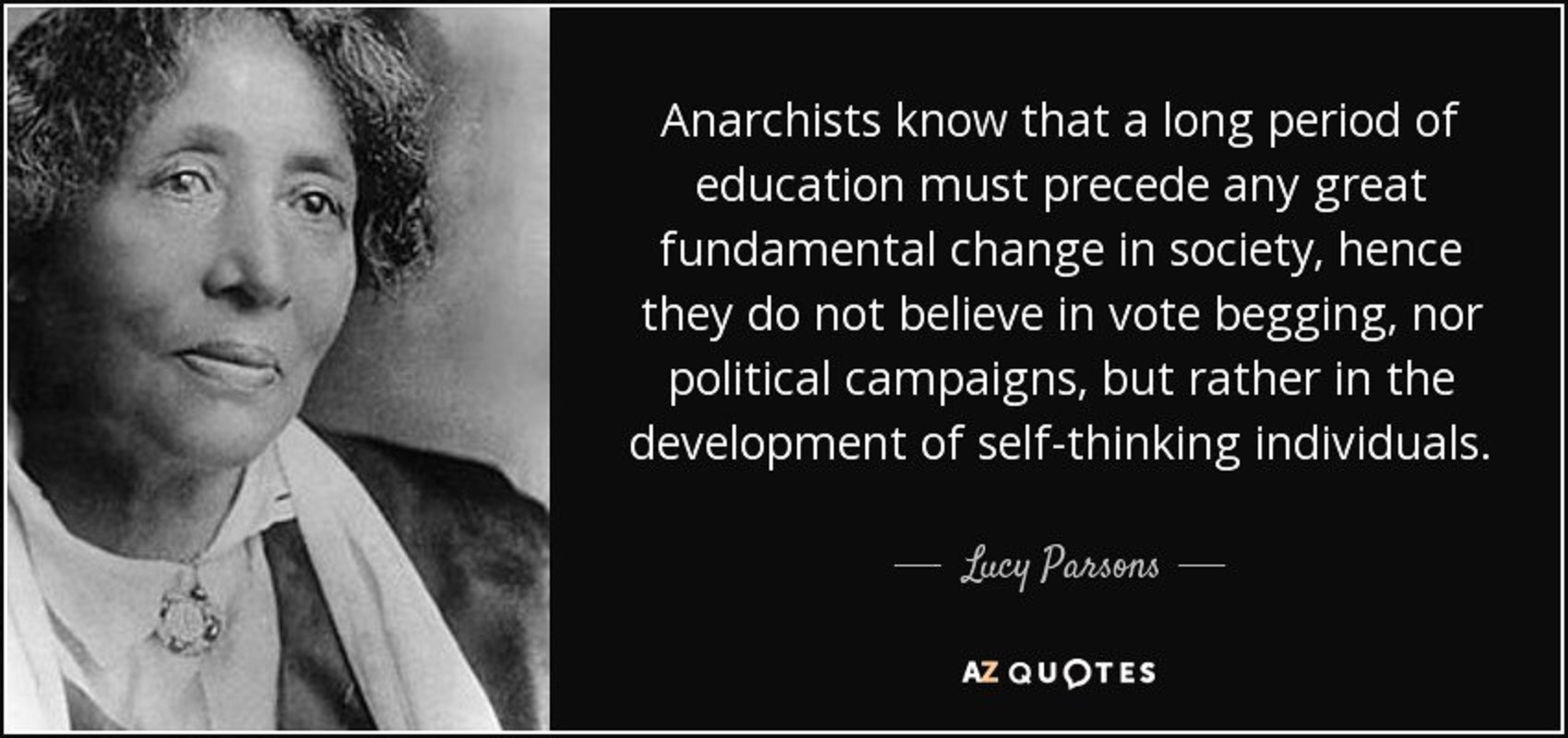

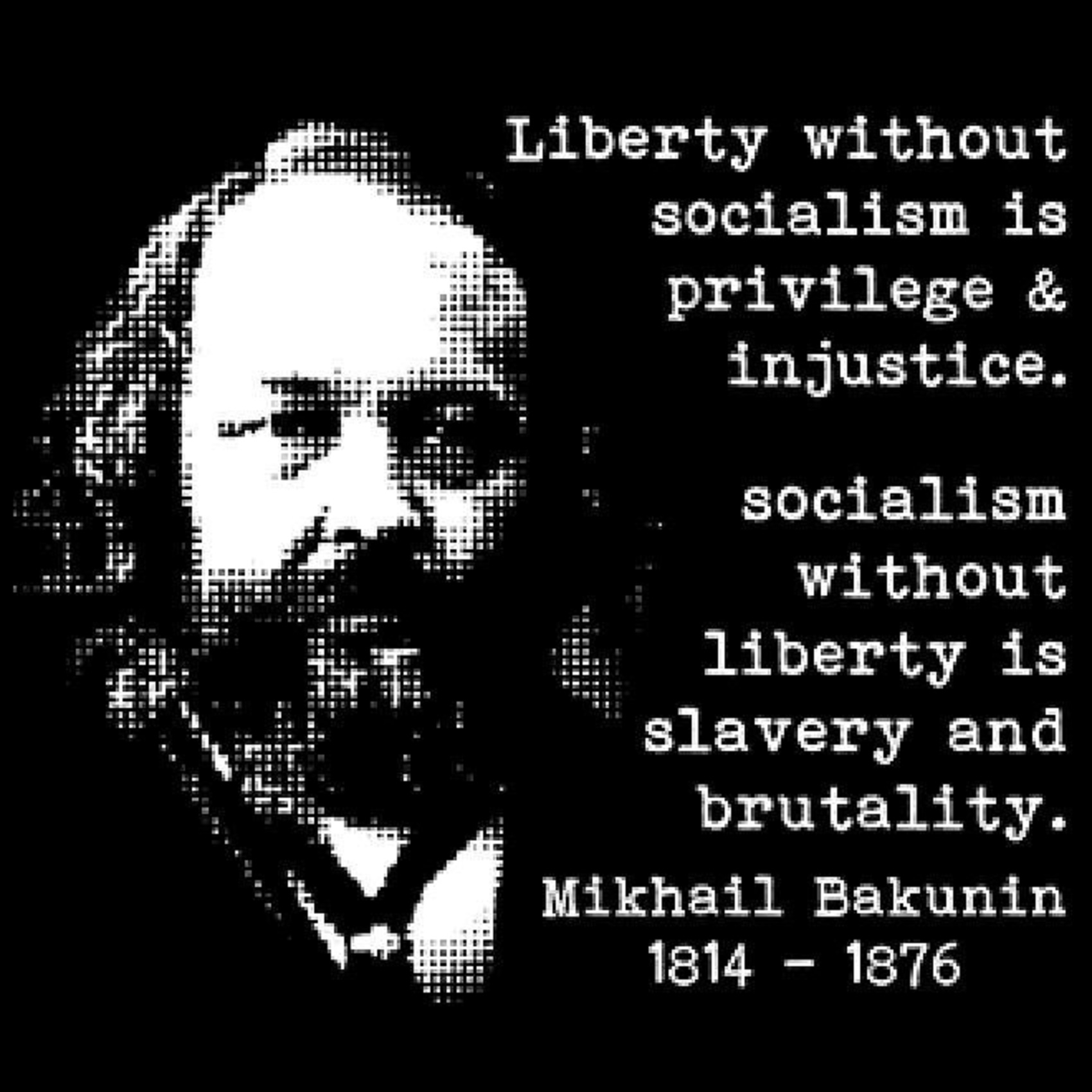
Anarcho (anarchist-socialist) “no gods and no masters” & Humanist “do no harm and do good”
“But Damien, do no harm and good will come of itself… naturally. If we do no harm then ‘good’ is the default.” – Commentor
My response, I can not harm but yet not help.
“And that is good. You have not harmed.” – Commentor
My response, Neutral is the default, lacking good or bad. It is a lack of bad to not harm. good is active actions of help. “In most contexts, the concept of good denotes the conduct that should be preferred when posed with a choice between possible actions.” en.wikipedia.org/wiki/Good
“Negligence is harm that does not require intent.” – Commentor
My response, “Negligence is failure to take proper care in doing something. So, Negligence is a failure to exercise appropriate and/or ethical ruled care expected to be exercised amongst specified circumstances.” en.wikipedia.org/wiki/Negligence
My response, Just think, you would not say Hitler was good when he did not harm and only bad when he harmed. His past actions condemn him as harmful, as in his current, or future actions will as well.
“If I believe that I am doing good then regardless of consequences, have done good. It is not a matter of negligence.” – Commentor
My response, This is a self-defence from just challenge and correction, not an ethical way to behave. One should ensure that what they list as good is actually good not just personally assumed without reasoned value standards other rational thinkers could agree. “The ethics of belief refers to a cluster of related issues that focus on standards of rational belief, intellectual excellence, and conscientious belief-formation.” https://en.wikipedia.org/wiki/Ethics_of_belief
“Ethics? Rational thinkers? If I believe that what I do is good then what I do is good regardless of consequences.” – Commentor

People don’t commonly teach religious history, even that of their own claimed religion. No, rather they teach a limited “pro their religion” history of their religion from a religious perspective favorable to the religion of choice.

Do you truly think “Religious Belief” is only a matter of some personal choice?
Do you not see how coercive one’s world of choice is limited to the obvious hereditary belief, in most religious choices available to the child of religious parents or caregivers? Religion is more commonly like a family, culture, society, etc. available belief that limits the belief choices of the child and that is when “Religious Belief” is not only a matter of some personal choice and when it becomes hereditary faith, not because of the quality of its alleged facts or proposed truths but because everyone else important to the child believes similarly so they do as well simply mimicking authority beliefs handed to them. Because children are raised in religion rather than being presented all possible choices but rather one limited dogmatic brand of “Religious Belief” where children only have a choice of following the belief as instructed, and then personally claim the faith hereditary belief seen in the confirming to the belief they have held themselves all their lives. This is obvious in statements asked and answered by children claiming a faith they barely understand but they do understand that their family believes “this or that” faith, so they feel obligated to believe it too. While I do agree that “Religious Belief” should only be a matter of some personal choice, it rarely is… End Hereditary Religion!

Animism: Respecting the Living World by Graham Harvey
“How have human cultures engaged with and thought about animals, plants, rocks, clouds, and other elements in their natural surroundings? Do animals and other natural objects have a spirit or soul? What is their relationship to humans? In this new study, Graham Harvey explores current and past animistic beliefs and practices of Native Americans, Maori, Aboriginal Australians, and eco-pagans. He considers the varieties of animism found in these cultures as well as their shared desire to live respectfully within larger natural communities. Drawing on his extensive casework, Harvey also considers the linguistic, performative, ecological, and activist implications of these different animisms.” ref

We are like believing machines we vacuum up ideas, like Velcro sticks to almost everything. We accumulate beliefs that we allow to negatively influence our lives, often without realizing it. Our willingness must be to alter skewed beliefs that impend our balance or reason, which allows us to achieve new positive thinking and accurate outcomes.

My thoughts on Religion Evolution with external links for more info:
- (Pre-Animism Africa mainly, but also Europe, and Asia at least 300,000 years ago), (Pre-Animism – Oxford Dictionaries)
- (Animism Africa around 100,000 years ago), (Animism – Britannica.com)
- (Totemism Europe around 50,000 years ago), (Totemism – Anthropology)
- (Shamanism Siberia around 30,000 years ago), (Shamanism – Britannica.com)
- (Paganism Turkey around 12,000 years ago), (Paganism – BBC Religion)
- (Progressed Organized Religion “Institutional Religion” Egypt around 5,000 years ago), (Ancient Egyptian Religion – Britannica.com)
- (CURRENT “World” RELIGIONS after 4,000 years ago) (Origin of Major Religions – Sacred Texts)
- (Early Atheistic Doubting at least by 2,600 years ago) (History of Atheism – Wikipedia)
“Religion is an Evolved Product” and Yes, Religion is Like Fear Given Wings…
Atheists talk about gods and religions for the same reason doctors talk about cancer, they are looking for a cure, or a firefighter talks about fires because they burn people and they care to stop them. We atheists too often feel a need to help the victims of mental slavery, held in the bondage that is the false beliefs of gods and the conspiracy theories of reality found in religions.
Understanding Religion Evolution:
- Pre-Animism (at least 300,000 years ago)
- Animism (Africa: 100,000 years ago)
- Totemism (Europe: 50,000 years ago)
- Shamanism (Siberia: 30,000 years ago)
- Paganism (Turkey: 12,000 years ago)
- Progressed organized religion (Egypt: 5,000 years ago), (Egypt, the First Dynasty 5,150 years ago)
- CURRENT “World” RELIGIONS (after 4,000 years ago)
- Early Atheistic Doubting (at least by 2,600 years ago)
“An Archaeological/Anthropological Understanding of Religion Evolution”
It seems ancient peoples had to survived amazing threats in a “dangerous universe (by superstition perceived as good and evil),” and human “immorality or imperfection of the soul” which was thought to affect the still living, leading to ancestor worship. This ancestor worship presumably led to the belief in supernatural beings, and then some of these were turned into the belief in gods. This feeble myth called gods were just a human conceived “made from nothing into something over and over, changing, again and again, taking on more as they evolve, all the while they are thought to be special,” but it is just supernatural animistic spirit-belief perceived as sacred.
Quick Evolution of Religion?
Pre-Animism (at least 300,000 years ago) pre-religion is a beginning that evolves into later Animism. So, Religion as we think of it, to me, all starts in a general way with Animism (Africa: 100,000 years ago) (theoretical belief in supernatural powers/spirits), then this is physically expressed in or with Totemism (Europe: 50,000 years ago) (theoretical belief in mythical relationship with powers/spirits through a totem item), which then enlists a full-time specific person to do this worship and believed interacting Shamanism (Siberia/Russia: 30,000 years ago) (theoretical belief in access and influence with spirits through ritual), and then there is the further employment of myths and gods added to all the above giving you Paganism (Turkey: 12,000 years ago) (often a lot more nature-based than most current top world religions, thus hinting to their close link to more ancient religious thinking it stems from). My hypothesis is expressed with an explanation of the building of a theatrical house (modern religions development). Progressed organized religion (Egypt: 5,000 years ago) with CURRENT “World” RELIGIONS (after 4,000 years ago).
Historically, in large city-state societies (such as Egypt or Iraq) starting around 5,000 years ago culminated to make religion something kind of new, a sociocultural-governmental-religious monarchy, where all or at least many of the people of such large city-state societies seem familiar with and committed to the existence of “religion” as the integrated life identity package of control dynamics with a fixed closed magical doctrine, but this juggernaut integrated religion identity package of Dogmatic-Propaganda certainly did not exist or if developed to an extent it was highly limited in most smaller prehistoric societies as they seem to lack most of the strong control dynamics with a fixed closed magical doctrine (magical beliefs could be at times be added or removed). Many people just want to see developed religious dynamics everywhere even if it is not. Instead, all that is found is largely fragments until the domestication of religion.
Religions, as we think of them today, are a new fad, even if they go back to around 6,000 years in the timeline of human existence, this amounts to almost nothing when seen in the long slow evolution of religion at least around 70,000 years ago with one of the oldest ritual worship. Stone Snake of South Africa: “first human worship” 70,000 years ago. This message of how religion and gods among them are clearly a man-made thing that was developed slowly as it was invented and then implemented peace by peace discrediting them all. Which seems to be a simple point some are just not grasping how devastating to any claims of truth when we can see the lie clearly in the archeological sites.
I wish people fought as hard for the actual values as they fight for the group/clan names political or otherwise they think support values. Every amount spent on war is theft to children in need of food or the homeless kept from shelter.
Here are several of my blog posts on history:
- To Find Truth You Must First Look
- (Magdalenian/Iberomaurusian) Connections to the First Paganists of the early Neolithic Near East Dating from around 17,000 to 12,000 Years Ago
- Natufians: an Ancient People at the Origins of Agriculture and Sedentary Life
- Possible Clan Leader/Special “MALE” Ancestor Totem Poles At Least 13,500 years ago?
- Jewish People with DNA at least 13,200 years old, Judaism, and the Origins of Some of its Ideas
- Baltic Reindeer Hunters: Swiderian, Lyngby, Ahrensburgian, and Krasnosillya cultures 12,020 to 11,020 years ago are evidence of powerful migratory waves during the last 13,000 years and a genetic link to Saami and the Finno-Ugric peoples.
- The Rise of Inequality: patriarchy and state hierarchy inequality
- Fertile Crescent 12,500 – 9,500 Years Ago: fertility and death cult belief system?
- 12,400 – 11,700 Years Ago – Kortik Tepe (Turkey) Pre/early-Agriculture Cultic Ritualism
- Ritualistic Bird Symbolism at Gobekli Tepe and its “Ancestor Cult”
- Male-Homosexual (female-like) / Trans-woman (female) Seated Figurine from Gobekli Tepe
- Could a 12,000-year-old Bull Geoglyph at Göbekli Tepe relate to older Bull and Female Art 25,000 years ago and Later Goddess and the Bull cults like Catal Huyuk?
- Sedentism and the Creation of goddesses around 12,000 years ago as well as male gods after 7,000 years ago.
- Alcohol, where Agriculture and Religion Become one? Such as Gobekli Tepe’s Ritualistic use of Grain as Food and Ritual Drink
- Neolithic Ritual Sites with T-Pillars and other Cultic Pillars
- Paganism: Goddesses around 12,000 years ago then Male Gods after 7,000 years ago
- First Patriarchy: Split of Women’s Status around 12,000 years ago & First Hierarchy: fall of Women’s Status around 5,000 years ago.
- Natufians: an Ancient People at the Origins of Agriculture and Sedentary Life
- J DNA and the Spread of Agricultural Religion (paganism)
- Paganism: an approximately 12,000-year-old belief system
- Paganism 12,000 years old: related to “Anarchism and Socialism” (Pre-Capitalism)
- Shaman burial in Israel 12,000 years ago and the Shamanism Phenomena
- Need to Mythicized: gods and goddesses
- 12,000 – 7,000 Years Ago – Paleo-Indian Culture (The Americas)
- 12,000 – 2,000 Years Ago – Indigenous-Scandinavians (Nordic)
- Norse did not wear helmets with horns?
- Pre-Pottery Neolithic Skull Cult around 11,500 to 8,400 Years Ago?
- 10,400 – 10,100 Years Ago, in Turkey the Nevail Cori Religious Settlement
- 9,000-6,500 Years Old Submerged Pre-Pottery/Pottery Neolithic Ritual Settlements off Israel’s Coast
- Catal Huyuk “first religious designed city” around 9,500 to 7,700 years ago (Turkey)
- Cultic Hunting at Catal Huyuk “first religious designed city”
- Special Items and Art as well as Special Elite Burials at Catal Huyuk
- New Rituals and Violence with the appearance of Pottery and People?
- Haplogroup N and its related Uralic Languages and Cultures
- Ainu people, Sámi people, Native Americans, the Ancient North Eurasians, and Paganistic-Shamanism with Totemism
- Ideas, Technology and People from Turkey, Europe, to China and Back again 9,000 to 5,000 years ago?
- First Pottery of Europe and the Related Cultures
- 9,000 years old Neolithic Artifacts Judean Desert and Hills Israel
- 9,000-7,000 years-old Sex and Death Rituals: Cult Sites in Israel, Jordan, and the Sinai
- 9,000-8500 year old Horned Female shaman Bad Dürrenberg Germany
- Neolithic Jewelry and the Spread of Farming in Europe Emerging out of West Turkey
- 8,600-year-old Tortoise Shells in Neolithic graves in central China have Early Writing and Shamanism
- Swing of the Mace: the rise of Elite, Forced Authority, and Inequality begin to Emerge 8,500 years ago?
- Migrations and Changing Europeans Beginning around 8,000 Years Ago
- My “Steppe-Anatolian-Kurgan hypothesis” 8,000/7,000 years ago
- Around 8,000-year-old Shared Idea of the Mistress of Animals, “Ritual” Motif
- Pre-Columbian Red-Paint (red ochre) Maritime Archaic Culture 8,000-3,000 years ago
- 7,522-6,522 years ago Linear Pottery culture which I think relates to Arcane Capitalism’s origins
- Arcane Capitalism: Primitive socialism, Primitive capital, Private ownership, Means of production, Market capitalism, Class discrimination, and Petite bourgeoisie (smaller capitalists)
- 7,500-4,750 years old Ritualistic Cucuteni-Trypillian culture of Moldova, Romania, and Ukraine
- Roots of a changing early society 7,200-6,700 years ago Jordan and Israel
- Agriculture religion (Paganism) with farming reached Britain between about 7,000 to 6,500 or so years ago and seemingly expressed in things like Western Europe’s Long Barrows
- My Thoughts on Possible Migrations of “R” DNA and Proto-Indo-European?
- “Millet” Spreading from China 7,022 years ago to Europe and related Language may have Spread with it leading to Proto-Indo-European
- Proto-Indo-European (PIE), ancestor of Indo-European languages: DNA, Society, Language, and Mythology
- The Dnieper–Donets culture and Asian varieties of Millet from China to the Black Sea region of Europe by 7,022 years ago
- Kurgan 6,000 years ago/dolmens 7,000 years ago: funeral, ritual, and other?
- 7,020 to 6,020-year-old Proto-Indo-European Homeland of Urheimat or proposed home of their Language and Religion
- Ancient Megaliths: Kurgan, Ziggurat, Pyramid, Menhir, Trilithon, Dolman, Kromlech, and Kromlech of Trilithons
- The Mytheme of Ancient North Eurasian Sacred-Dog belief and similar motifs are found in Indo-European, Native American, and Siberian comparative mythology
- Elite Power Accumulation: Ancient Trade, Tokens, Writing, Wealth, Merchants, and Priest-Kings
- Sacred Mounds, Mountains, Kurgans, and Pyramids may hold deep connections?
- Between 7,000-5,000 Years ago, rise of unequal hierarchy elite, leading to a “birth of the State” or worship of power, strong new sexism, oppression of non-elites, and the fall of Women’s equal status
- Paganism 7,000-5,000 years old: related to “Anarchism and Socialism” (Capitalism) (World War 0) Elite & their slaves
- Hell and Underworld mythologies starting maybe as far back as 7,000 to 5,000 years ago with the Proto-Indo-Europeans?
- The First Expression of the Male God around 7,000 years ago?
- White (light complexion skin) Bigotry and Sexism started 7,000 years ago?
- Around 7,000-year-old Shared Idea of the Divine Bird (Tutelary and/or Trickster spirit/deity), “Ritual” Motif
- Nekhbet an Ancient Egyptian Vulture Goddess and Tutelary Deity
- 6,720 to 4,920 years old Ritualistic Hongshan Culture of Inner Mongolia with 5,000-year-old Pyramid Mounds and Temples
- First proto-king in the Balkans, Varna culture around 6,500 years ago?
- 6,500–5,800 years ago in Israel Late Chalcolithic (Copper Age) Period in the Southern Levant Seems to Express Northern Levant Migrations, Cultural and Religious Transfer
- KING OF BEASTS: Master of Animals “Ritual” Motif, around 6,000 years old or older…
- Around 6000-year-old Shared Idea of the Solid Wheel & the Spoked Wheel-Shaped Ritual Motif
- “The Ghassulian Star,” a mysterious 6,000-year-old mural from Jordan; a Proto-Star of Ishtar, Star of Inanna or Star of Venus?
- Religious/Ritual Ideas, including goddesses and gods as well as ritual mounds or pyramids from Northeastern Asia at least 6,000 years old, seemingly filtering to Iran, Iraq, the Mediterranean, Europe, Egypt, and the Americas?
- Maykop (5,720–5,020 years ago) Caucasus region Bronze Age culture-related to Copper Age farmers from the south, influenced by the Ubaid period and Leyla-Tepe culture, as well as influencing the Kura-Araxes culture
- 5-600-year-old Tomb, Mummy, and First Bearded Male Figurine in a Grave
- Kura-Araxes Cultural 5,520 to 4,470 years old DNA traces to the Canaanites, Arabs, and Jews
- Minoan/Cretan (Keftiu) Civilization and Religion around 5,520 to 3,120 years ago
- Evolution Of Science at least by 5,500 years ago
- 5,500 Years old birth of the State, the rise of Hierarchy, and the fall of Women’s status
- “Jiroft culture” 5,100 – 4,200 years ago and the History of Iran
- Stonehenge: Paganistic Burial and Astrological Ritual Complex, England (5,100-3,600 years ago)
- Around 5,000-year-old Shared Idea of the “Tree of Life” Ritual Motif
- Complex rituals for elite, seen from China to Egypt, at least by 5,000 years ago
- Around 5,000 years ago: “Birth of the State” where Religion gets Military Power and Influence
- The Center of the World “Axis Mundi” and/or “Sacred Mountains” Mythology Could Relate to the Altai Mountains, Heart of the Steppe
- Progressed organized religion starts, an approximately 5,000-year-old belief system
- China’s Civilization between 5,000-3,000 years ago, was a time of war and class struggle, violent transition from free clans to a Slave or Elite society
- Origin of Logics is Naturalistic Observation at least by around 5,000 years ago.
- Paganism 5,000 years old: progressed organized religion and the state: related to “Anarchism and Socialism” (Kings and the Rise of the State)
- Ziggurats (multi-platform temples: 4,900 years old) to Pyramids (multi-platform tombs: 4,700 years old)
- Did a 4,520–4,420-year-old Volcano In Turkey Inspire the Bible God?
- Finland’s Horned Shaman and Pre-Horned-God at least 4,500 years ago?
- 4,000-year-Old Dolmens in Israel: A Connected Dolmen Religious Phenomenon?
- Creation myths: From chaos, Ex nihilo, Earth-diver, Emergence, World egg, and World parent
- Bronze Age “Ritual” connections of the Bell Beaker culture with the Corded Ware/Single Grave culture, which were related to the Yamnaya culture and Proto-Indo-European Languages/Religions
- Low Gods (Earth/ Tutelary deity), High Gods (Sky/Supreme deity), and Moralistic Gods (Deity enforcement/divine order)
- The exchange of people, ideas, and material-culture including, to me, the new god (Sky Father) and goddess (Earth Mother) religion between the Cucuteni-Trypillians and others which is then spread far and wide
- Koryaks: Indigenous People of the Russian Far East and Big Raven myths also found in Tlingit, Haida, Tsimshian, and other Indigenous People of North America
- 42 Principles Of Maat (Egyptian Goddess of the justice) around 4,400 years ago, 2000 Years Before Ten Commandments
- “Happy Easter” Well Happy Eostre/Ishter
- 4,320-3,820 years old “Shimao” (North China) site with Totemistic-Shamanistic Paganism and a Stepped Pyramid
- 4,250 to 3,400 Year old Stonehenge from Russia: Arkaim?
- 4,100-year-old beaker with medicinal & flowering plants in a grave of a woman in Scotland
- Early European Farmer ancestry, Kelif el Boroud people with the Cardial Ware culture, and the Bell Beaker culture Paganists too, spread into North Africa, then to the Canary Islands off West Africa
- Flood Accounts: Gilgamesh epic (4,100 years ago) Noah in Genesis (2,600 years ago)
- Paganism 4,000 years old: related to “Anarchism and Socialism” (First Moralistic gods, then the Origin time of Monotheism)
- When was the beginning: TIMELINE OF CURRENT RELIGIONS, which start around 4,000 years ago.
- Early Religions Thought to Express Proto-Monotheistic Systems around 4,000 years ago
- Kultepe? An archaeological site with a 4,000 years old women’s rights document.
- Single God Religions (Monotheism) = “Man-o-theism” started around 4,000 years ago with the Great Sky Spirit/God Tiān (天)?
- Confucianism’s Tiān (Shangdi god 4,000 years old): Supernaturalism, Pantheism or Theism?
- Yes, Your Male God is Ridiculous
- Mythology, a Lunar Deity is a Goddess or God of the Moon
- Sacred Land, Hills, and Mountains: Sami Mythology (Paganistic Shamanism)
- Horse Worship/Sacrifice: mythical union of Ruling Elite/Kingship and the Horse
- The Amorite/Amurru people’s God Amurru “Lord of the Steppe”, relates to the Origins of the Bible God?
- Bronze Age Exotic Trade Routes Spread Quite Far as well as Spread Religious Ideas with Them
- Sami and the Northern Indigenous Peoples Landscape, Language, and its Connection to Religion
- Prototype of Ancient Analemmatic Sundials around 3,900-3,150 years ago and a Possible Solar Connection to gods?
- Judaism is around 3,450 or 3,250 years old. (“Paleo-Hebrew” 3,000 years ago and Torah 2,500 years ago)
- The Weakening of Ancient Trade and the Strengthening of Religions around 3000 years ago?
- Are you aware that there are religions that worship women gods, explain now religion tears women down?
- Animistic, Totemistic, and Paganistic Superstition Origins of bible god and the bible’s Religion.
- Myths and Folklore: “Trickster gods and goddesses”
- Jews, Judaism, and the Origins of Some of its Ideas
- An Old Branch of Religion Still Giving Fruit: Sacred Trees
- Dating the BIBLE: naming names and telling times (written less than 3,000 years ago, provable to 2,200 years ago)
- Did a Volcano Inspire the bible god?
- Dené–Yeniseian language, Old Copper Complex, and Pre-Columbian Mound Builders?
- No “dinosaurs and humans didn’t exist together just because some think they are in the bible itself”
- Sacred Shit and Sacred Animals?
- Everyone Killed in the Bible Flood? “Nephilim” (giants)?
- Hey, Damien dude, I have a question for you regarding “the bible” Exodus.
- Archaeology Disproves the Bible
- Bible Battle, Just More, Bible Babble
- The Jericho Conquest lie?
- Canaanites and Israelites?
- Accurate Account on how did Christianity Began?
- Let’s talk about Christianity.
- So the 10 commandments isn’t anything to go by either right?
- Misinformed christian
- Debunking Jesus?
- Paulism vs Jesus
- Ok, you seem confused so let’s talk about Buddhism.
- Unacknowledged Buddhism: Gods, Savior, Demons, Rebirth, Heavens, Hells, and Terrorism
- His Foolishness The Dalai Lama
- Yin and Yang is sexist with an ORIGIN around 2,300 years ago?
- I Believe Archaeology, not Myths & Why Not, as the Religious Myths Already Violate Reason!
- Archaeological, Scientific, & Philosophic evidence shows the god myth is man-made nonsense.
- Aquatic Ape Theory/Hypothesis? As Always, Just Pseudoscience.
- Ancient Aliens Conspiracy Theorists are Pseudohistorians
- The Pseudohistoric and Pseudoscientific claims about “Bakoni Ruins” of South Africa
- Why do people think Religion is much more than supernaturalism and superstitionism?
- Religion is an Evolved Product
- Was the Value of Ancient Women Different?
- 1000 to 1100 CE, human sacrifice Cahokia Mounds a pre-Columbian Native American site
- Feminist atheists as far back as the 1800s?
- Promoting Religion as Real is Mentally Harmful to a Flourishing Humanity
- Screw All Religions and Their Toxic lies, they are all fraud
- Forget Religions’ Unfounded Myths, I Have Substantiated “Archaeology Facts.”
- Religion Dispersal throughout the World
- I Hate Religion Just as I Hate all Pseudoscience
- Exposing Scientology, Eckankar, Wicca and Other Nonsense?
- Main deity or religious belief systems
- Quit Trying to Invent Your God From the Scraps of Science.
- Archaeological, Scientific, & Philosophic evidence shows the god myth is man-made nonsense.
- Ancient Alien Conspiracy Theorists: Misunderstanding, Rhetoric, Misinformation, Fabrications, and Lies
- Misinformation, Distortion, and Pseudoscience in Talking with a Christian Creationist
- Judging the Lack of Goodness in Gods, Even the Norse God Odin
- Challenging the Belief in God-like Aliens and Gods in General
- A Challenge to Christian use of Torture Devices?
- Yes, Hinduism is a Religion
- Trump is One of the Most Reactionary Forces of Far-right Christian Extremism
- Was the Bull Head a Symbol of God? Yes!
- Primate Death Rituals
- Christian – “God and Christianity are objectively true”
- Australopithecus afarensis Death Ritual?
- You Claim Global Warming is a Hoax?
- Doubter of Science and Defamer of Atheists?
- I think that sounds like the Bible?
- History of the Antifa (“anti-fascist”) Movements
- Indianapolis Anti-Blasphemy Laws #Free Soheil Rally
- Damien, you repeat the golden rule in so many forms then you say religion is dogmatic?
- Science is a Trustable Methodology whereas Faith is not Trustable at all!
- Was I ever a believer, before I was an atheist?
- Atheists rise in reason
- Mistrust of science?
- Open to Talking About the Definition of ‘God’? But first, we address Faith.
- ‘United Monarchy’ full of splendor and power – Saul, David, and Solomon? Most likely not.
- Is there EXODUS ARCHAEOLOGY? The short answer is “no.”
- Lacking Proof of Bigfoots, Unicorns, and Gods is Just a Lack of Research?
- Religion and Politics: Faith Beliefs vs. Rational Thinking
- Hammer of Truth that lying pig RELIGION: challenged by an archaeologist
- “The Hammer of Truth” -ontology question- What do You Mean by That?
- Navigation of a bad argument: Ad Hominem vs. Attack
- Why is it Often Claimed that Gods have a Gender?
- Why are basically all monotheistic religions ones that have a male god?
- Shifting through the Claims in support of Faith
- Dear Mr. AtHope, The 20th Century is an Indictment of Secularism and a Failed Atheist Century
- An Understanding of the Worldwide Statistics and Dynamics of Terrorist Incidents and Suicide Attacks
- Intoxication and Evolution? Addressing and Assessing the “Stoned Ape” or “Drunken Monkey” Theories as Catalysts in Human Evolution
- Sacred Menstrual cloth? Inanna’s knot, Isis knot, and maybe Ma’at’s feather?
- Damien, why don’t the Hebrews accept the bible stories?
- Dealing with a Troll and Arguing Over Word Meaning
- Knowledge without Belief? Justified beliefs or disbeliefs worthy of Knowledge?
- Afrocentrism and African Religions
- Crecganford @crecganford offers history & stories of the people, places, gods, & culture
- Empiricism-Denier?
I am not an academic. I am a revolutionary that teaches in public, in places like social media, and in the streets. I am not a leader by some title given but from my commanding leadership style of simply to start teaching everywhere to everyone, all manner of positive education.


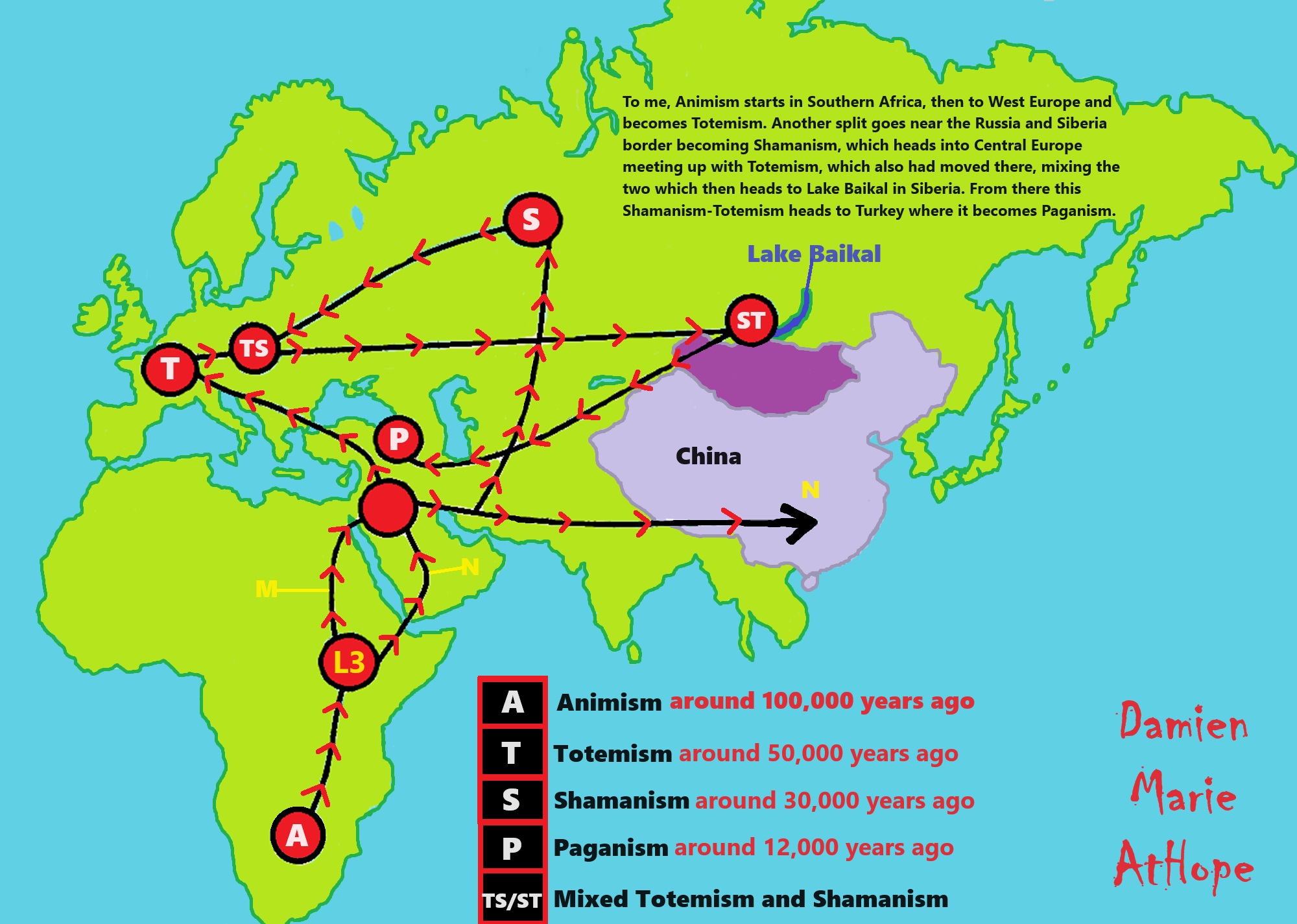
To me, Animism starts in Southern Africa, then to West Europe, and becomes Totemism. Another split goes near the Russia and Siberia border becoming Shamanism, which heads into Central Europe meeting up with Totemism, which also had moved there, mixing the two which then heads to Lake Baikal in Siberia. From there this Shamanism-Totemism heads to Turkey where it becomes Paganism.





Not all “Religions” or “Religious Persuasions” have a god(s) but
All can be said to believe in some imaginary beings or imaginary things like spirits, afterlives, etc.
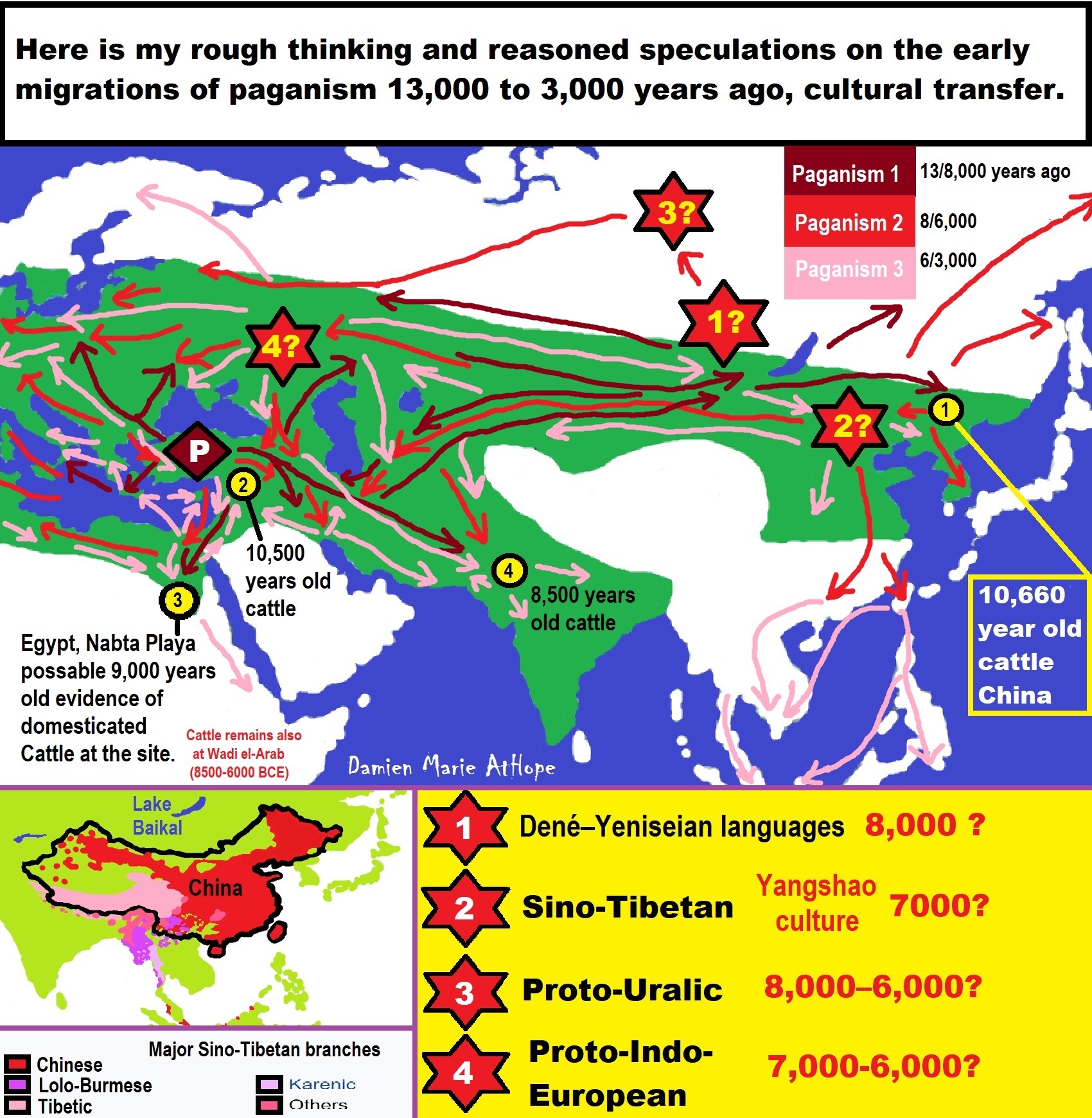
Paganism 12,000-4,000 years old
12,000-7,000 years old: related to (Pre-Capitalism)
7,000-5,000 years old: related to (Capitalism) (World War 0) Elite and their slaves!
5,000 years old: related to (Kings and the Rise of the State)
4,000 years old: related to (First Moralistic gods, then the Origin time of Monotheism)

ref, ref, ref, ref, ref, ref, ref, ref, ref, ref, ref, ref, ref, ref, ref, ref, ref, ref, ref, ref, ref
Low Gods “Earth” or Tutelary deity and High Gods “Sky” or Supreme deity
“An Earth goddess is a deification of the Earth. Earth goddesses are often associated with the “chthonic” deities of the underworld. Ki and Ninhursag are Mesopotamian earth goddesses. In Greek mythology, the Earth is personified as Gaia, corresponding to Roman Terra, Indic Prithvi/Bhūmi, etc. traced to an “Earth Mother” complementary to the “Sky Father” in Proto-Indo-European religion. Egyptian mythology exceptionally has a sky goddess and an Earth god.” ref
“A mother goddess is a goddess who represents or is a personification of nature, motherhood, fertility, creation, destruction or who embodies the bounty of the Earth. When equated with the Earth or the natural world, such goddesses are sometimes referred to as Mother Earth or as the Earth Mother. In some religious traditions or movements, Heavenly Mother (also referred to as Mother in Heaven or Sky Mother) is the wife or feminine counterpart of the Sky father or God the Father.” ref
“Any masculine sky god is often also king of the gods, taking the position of patriarch within a pantheon. Such king gods are collectively categorized as “sky father” deities, with a polarity between sky and earth often being expressed by pairing a “sky father” god with an “earth mother” goddess (pairings of a sky mother with an earth father are less frequent). A main sky goddess is often the queen of the gods and may be an air/sky goddess in her own right, though she usually has other functions as well with “sky” not being her main. In antiquity, several sky goddesses in ancient Egypt, Mesopotamia, and the Near East were called Queen of Heaven. Neopagans often apply it with impunity to sky goddesses from other regions who were never associated with the term historically. The sky often has important religious significance. Many religions, both polytheistic and monotheistic, have deities associated with the sky.” ref
“In comparative mythology, sky father is a term for a recurring concept in polytheistic religions of a sky god who is addressed as a “father”, often the father of a pantheon and is often either a reigning or former King of the Gods. The concept of “sky father” may also be taken to include Sun gods with similar characteristics, such as Ra. The concept is complementary to an “earth mother“. “Sky Father” is a direct translation of the Vedic Dyaus Pita, etymologically descended from the same Proto-Indo-European deity name as the Greek Zeûs Pater and Roman Jupiter and Germanic Týr, Tir or Tiwaz, all of which are reflexes of the same Proto-Indo-European deity’s name, *Dyēus Ph₂tḗr. While there are numerous parallels adduced from outside of Indo-European mythology, there are exceptions (e.g. In Egyptian mythology, Nut is the sky mother and Geb is the earth father).” ref
Tutelary deity
“A tutelary (also tutelar) is a deity or spirit who is a guardian, patron, or protector of a particular place, geographic feature, person, lineage, nation, culture, or occupation. The etymology of “tutelary” expresses the concept of safety and thus of guardianship. In late Greek and Roman religion, one type of tutelary deity, the genius, functions as the personal deity or daimon of an individual from birth to death. Another form of personal tutelary spirit is the familiar spirit of European folklore.” ref
“A tutelary (also tutelar) in Korean shamanism, jangseung and sotdae were placed at the edge of villages to frighten off demons. They were also worshiped as deities. Seonangshin is the patron deity of the village in Korean tradition and was believed to embody the Seonangdang. In Philippine animism, Diwata or Lambana are deities or spirits that inhabit sacred places like mountains and mounds and serve as guardians. Such as: Maria Makiling is the deity who guards Mt. Makiling and Maria Cacao and Maria Sinukuan. In Shinto, the spirits, or kami, which give life to human bodies come from nature and return to it after death. Ancestors are therefore themselves tutelaries to be worshiped. And similarly, Native American beliefs such as Tonás, tutelary animal spirit among the Zapotec and Totems, familial or clan spirits among the Ojibwe, can be animals.” ref
“A tutelary (also tutelar) in Austronesian beliefs such as: Atua (gods and spirits of the Polynesian peoples such as the Māori or the Hawaiians), Hanitu (Bunun of Taiwan‘s term for spirit), Hyang (Kawi, Sundanese, Javanese, and Balinese Supreme Being, in ancient Java and Bali mythology and this spiritual entity, can be either divine or ancestral), Kaitiaki (New Zealand Māori term used for the concept of guardianship, for the sky, the sea, and the land), Kawas (mythology) (divided into 6 groups: gods, ancestors, souls of the living, spirits of living things, spirits of lifeless objects, and ghosts), Tiki (Māori mythology, Tiki is the first man created by either Tūmatauenga or Tāne and represents deified ancestors found in most Polynesian cultures). ” ref, ref, ref, ref, ref, ref, ref
Mesopotamian Tutelary Deities can be seen as ones related to City-States
“Historical city-states included Sumerian cities such as Uruk and Ur; Ancient Egyptian city-states, such as Thebes and Memphis; the Phoenician cities (such as Tyre and Sidon); the five Philistine city-states; the Berber city-states of the Garamantes; the city-states of ancient Greece (the poleis such as Athens, Sparta, Thebes, and Corinth); the Roman Republic (which grew from a city-state into a vast empire); the Italian city-states from the Middle Ages to the early modern period, such as Florence, Siena, Ferrara, Milan (which as they grew in power began to dominate neighboring cities) and Genoa and Venice, which became powerful thalassocracies; the Mayan and other cultures of pre-Columbian Mesoamerica (including cities such as Chichen Itza, Tikal, Copán and Monte Albán); the central Asian cities along the Silk Road; the city-states of the Swahili coast; Ragusa; states of the medieval Russian lands such as Novgorod and Pskov; and many others.” ref
“The Uruk period (ca. 4000 to 3100 BCE; also known as Protoliterate period) of Mesopotamia, named after the Sumerian city of Uruk, this period saw the emergence of urban life in Mesopotamia and the Sumerian civilization. City-States like Uruk and others had a patron tutelary City Deity along with a Priest-King.” ref
“Chinese folk religion, both past, and present, includes myriad tutelary deities. Exceptional individuals, highly cultivated sages, and prominent ancestors can be deified and honored after death. Lord Guan is the patron of military personnel and police, while Mazu is the patron of fishermen and sailors. Such as Tu Di Gong (Earth Deity) is the tutelary deity of a locality, and each individual locality has its own Earth Deity and Cheng Huang Gong (City God) is the guardian deity of an individual city, worshipped by local officials and locals since imperial times.” ref
“A tutelary (also tutelar) in Hinduism, personal tutelary deities are known as ishta-devata, while family tutelary deities are known as Kuladevata. Gramadevata are guardian deities of villages. Devas can also be seen as tutelary. Shiva is the patron of yogis and renunciants. City goddesses include: Mumbadevi (Mumbai), Sachchika (Osian); Kuladevis include: Ambika (Porwad), and Mahalakshmi. In NorthEast India Meitei mythology and religion (Sanamahism) of Manipur, there are various types of tutelary deities, among which Lam Lais are the most predominant ones. Tibetan Buddhism has Yidam as a tutelary deity. Dakini is the patron of those who seek knowledge.” ref
“A tutelary (also tutelar) The Greeks also thought deities guarded specific places: for instance, Athena was the patron goddess of the city of Athens. Socrates spoke of hearing the voice of his personal spirit or daimonion:
You have often heard me speak of an oracle or sign which comes to me … . This sign I have had ever since I was a child. The sign is a voice which comes to me and always forbids me to do something which I am going to do, but never commands me to do anything, and this is what stands in the way of my being a politician.” ref
“Tutelary deities who guard and preserve a place or a person are fundamental to ancient Roman religion. The tutelary deity of a man was his Genius, that of a woman her Juno. In the Imperial era, the Genius of the Emperor was a focus of Imperial cult. An emperor might also adopt a major deity as his personal patron or tutelary, as Augustus did Apollo. Precedents for claiming the personal protection of a deity were established in the Republican era, when for instance the Roman dictator Sulla advertised the goddess Victory as his tutelary by holding public games (ludi) in her honor.” ref
“Each town or city had one or more tutelary deities, whose protection was considered particularly vital in time of war and siege. Rome itself was protected by a goddess whose name was to be kept ritually secret on pain of death (for a supposed case, see Quintus Valerius Soranus). The Capitoline Triad of Juno, Jupiter, and Minerva were also tutelaries of Rome. The Italic towns had their own tutelary deities. Juno often had this function, as at the Latin town of Lanuvium and the Etruscan city of Veii, and was often housed in an especially grand temple on the arx (citadel) or other prominent or central location. The tutelary deity of Praeneste was Fortuna, whose oracle was renowned.” ref
“The Roman ritual of evocatio was premised on the belief that a town could be made vulnerable to military defeat if the power of its tutelary deity were diverted outside the city, perhaps by the offer of superior cult at Rome. The depiction of some goddesses such as the Magna Mater (Great Mother, or Cybele) as “tower-crowned” represents their capacity to preserve the city. A town in the provinces might adopt a deity from within the Roman religious sphere to serve as its guardian, or syncretize its own tutelary with such; for instance, a community within the civitas of the Remi in Gaul adopted Apollo as its tutelary, and at the capital of the Remi (present-day Rheims), the tutelary was Mars Camulus.” ref
Household deity (a kind of or related to a Tutelary deity)
“A household deity is a deity or spirit that protects the home, looking after the entire household or certain key members. It has been a common belief in paganism as well as in folklore across many parts of the world. Household deities fit into two types; firstly, a specific deity – typically a goddess – often referred to as a hearth goddess or domestic goddess who is associated with the home and hearth, such as the ancient Greek Hestia.” ref
“The second type of household deities are those that are not one singular deity, but a type, or species of animistic deity, who usually have lesser powers than major deities. This type was common in the religions of antiquity, such as the Lares of ancient Roman religion, the Gashin of Korean shamanism, and Cofgodas of Anglo-Saxon paganism. These survived Christianisation as fairy-like creatures existing in folklore, such as the Anglo-Scottish Brownie and Slavic Domovoy.” ref
“Household deities were usually worshipped not in temples but in the home, where they would be represented by small idols (such as the teraphim of the Bible, often translated as “household gods” in Genesis 31:19 for example), amulets, paintings, or reliefs. They could also be found on domestic objects, such as cosmetic articles in the case of Tawaret. The more prosperous houses might have a small shrine to the household god(s); the lararium served this purpose in the case of the Romans. The gods would be treated as members of the family and invited to join in meals, or be given offerings of food and drink.” ref
“In many religions, both ancient and modern, a god would preside over the home. Certain species, or types, of household deities, existed. An example of this was the Roman Lares. Many European cultures retained house spirits into the modern period. Some examples of these include:
- Brownie (Scotland and England) or Hob (England) / Kobold (Germany) / Goblin / Hobgoblin
- Domovoy (Slavic)
- Nisse (Norwegian or Danish) / Tomte (Swedish) / Tonttu (Finnish)
- Húsvættir (Norse)” ref
“Although the cosmic status of household deities was not as lofty as that of the Twelve Olympians or the Aesir, they were also jealous of their dignity and also had to be appeased with shrines and offerings, however humble. Because of their immediacy they had arguably more influence on the day-to-day affairs of men than the remote gods did. Vestiges of their worship persisted long after Christianity and other major religions extirpated nearly every trace of the major pagan pantheons. Elements of the practice can be seen even today, with Christian accretions, where statues to various saints (such as St. Francis) protect gardens and grottos. Even the gargoyles found on older churches, could be viewed as guardians partitioning a sacred space.” ref
“For centuries, Christianity fought a mop-up war against these lingering minor pagan deities, but they proved tenacious. For example, Martin Luther‘s Tischreden have numerous – quite serious – references to dealing with kobolds. Eventually, rationalism and the Industrial Revolution threatened to erase most of these minor deities, until the advent of romantic nationalism rehabilitated them and embellished them into objects of literary curiosity in the 19th century. Since the 20th century this literature has been mined for characters for role-playing games, video games, and other fantasy personae, not infrequently invested with invented traits and hierarchies somewhat different from their mythological and folkloric roots.” ref
“In contradistinction to both Herbert Spencer and Edward Burnett Tylor, who defended theories of animistic origins of ancestor worship, Émile Durkheim saw its origin in totemism. In reality, this distinction is somewhat academic, since totemism may be regarded as a particularized manifestation of animism, and something of a synthesis of the two positions was attempted by Sigmund Freud. In Freud’s Totem and Taboo, both totem and taboo are outward expressions or manifestations of the same psychological tendency, a concept which is complementary to, or which rather reconciles, the apparent conflict. Freud preferred to emphasize the psychoanalytic implications of the reification of metaphysical forces, but with particular emphasis on its familial nature. This emphasis underscores, rather than weakens, the ancestral component.” ref
“William Edward Hearn, a noted classicist, and jurist, traced the origin of domestic deities from the earliest stages as an expression of animism, a belief system thought to have existed also in the neolithic, and the forerunner of Indo-European religion. In his analysis of the Indo-European household, in Chapter II “The House Spirit”, Section 1, he states:
The belief which guided the conduct of our forefathers was … the spirit rule of dead ancestors.” ref
“In Section 2 he proceeds to elaborate:
It is thus certain that the worship of deceased ancestors is a vera causa, and not a mere hypothesis. …
In the other European nations, the Slavs, the Teutons, and the Kelts, the House Spirit appears with no less distinctness. … [T]he existence of that worship does not admit of doubt. … The House Spirits had a multitude of other names which it is needless here to enumerate, but all of which are more or less expressive of their friendly relations with man. … In [England] … [h]e is the Brownie. … In Scotland this same Brownie is well known. He is usually described as attached to particular families, with whom he has been known to reside for centuries, threshing the corn, cleaning the house, and performing similar household tasks. His favorite gratification was milk and honey.” ref

ref, ref, ref, ref, ref, ref, ref, ref, ref, ref, ref, ref, ref, ref, ref, ref, ref
“These ideas are my speculations from the evidence.”
I am still researching the “god‘s origins” all over the world. So you know, it is very complicated but I am smart and willing to look, DEEP, if necessary, which going very deep does seem to be needed here, when trying to actually understand the evolution of gods and goddesses. I am sure of a few things and less sure of others, but even in stuff I am not fully grasping I still am slowly figuring it out, to explain it to others. But as I research more I am understanding things a little better, though I am still working on understanding it all or something close and thus always figuring out more.
Sky Father/Sky God?
“Egyptian: (Nut) Sky Mother and (Geb) Earth Father” (Egypt is different but similar)
Turkic/Mongolic: (Tengri/Tenger Etseg) Sky Father and (Eje/Gazar Eej) Earth Mother *Transeurasian*
Hawaiian: (Wākea) Sky Father and (Papahānaumoku) Earth Mother *Austronesian*
New Zealand/ Māori: (Ranginui) Sky Father and (Papatūānuku) Earth Mother *Austronesian*
Proto-Indo-European: (Dyḗus/Dyḗus ph₂tḗr) Sky Father and (Dʰéǵʰōm/Pleth₂wih₁) Earth Mother
Indo-Aryan: (Dyaus Pita) Sky Father and (Prithvi Mata) Earth Mother *Indo-European*
Italic: (Jupiter) Sky Father and (Juno) Sky Mother *Indo-European*
Etruscan: (Tinia) Sky Father and (Uni) Sky Mother *Tyrsenian/Italy Pre–Indo-European*
Hellenic/Greek: (Zeus) Sky Father and (Hera) Sky Mother who started as an “Earth Goddess” *Indo-European*
Nordic: (Dagr) Sky Father and (Nótt) Sky Mother *Indo-European*
Slavic: (Perun) Sky Father and (Mokosh) Earth Mother *Indo-European*
Illyrian: (Deipaturos) Sky Father and (Messapic Damatura’s “earth-mother” maybe) Earth Mother *Indo-European*
Albanian: (Zojz) Sky Father and (?) *Indo-European*
Baltic: (Perkūnas) Sky Father and (Saulė) Sky Mother *Indo-European*
Germanic: (Týr) Sky Father and (?) *Indo-European*
Colombian-Muisca: (Bochica) Sky Father and (Huythaca) Sky Mother *Chibchan*
Aztec: (Quetzalcoatl) Sky Father and (Xochiquetzal) Sky Mother *Uto-Aztecan*
Incan: (Viracocha) Sky Father and (Mama Runtucaya) Sky Mother *Quechuan*
China: (Tian/Shangdi) Sky Father and (Dì) Earth Mother *Sino-Tibetan*
Sumerian, Assyrian and Babylonian: (An/Anu) Sky Father and (Ki) Earth Mother
Finnish: (Ukko) Sky Father and (Akka) Earth Mother *Finno-Ugric*
Sami: (Horagalles) Sky Father and (Ravdna) Earth Mother *Finno-Ugric*
Puebloan-Zuni: (Ápoyan Ta’chu) Sky Father and (Áwitelin Tsíta) Earth Mother
Puebloan-Hopi: (Tawa) Sky Father and (Kokyangwuti/Spider Woman/Grandmother) Earth Mother *Uto-Aztecan*
Puebloan-Navajo: (Tsohanoai) Sky Father and (Estsanatlehi) Earth Mother *Na-Dene*
ref, ref, ref, ref, ref, ref, ref, ref, ref, ref, ref, ref, ref, ref, ref, ref, ref, ref, ref, ref, ref, ref, ref, ref, ref, ref, ref

Hinduism around 3,700 to 3,500 years old. ref
Judaism around 3,450 or 3,250 years old. (The first writing in the bible was “Paleo-Hebrew” dated to around 3,000 years ago Khirbet Qeiyafa is the site of an ancient fortress city overlooking the Elah Valley. And many believe the religious Jewish texts were completed around 2,500) ref, ref
Judaism is around 3,450 or 3,250 years old. (“Paleo-Hebrew” 3,000 years ago and Torah 2,500 years ago)
“Judaism is an Abrahamic, its roots as an organized religion in the Middle East during the Bronze Age. Some scholars argue that modern Judaism evolved from Yahwism, the religion of ancient Israel and Judah, by the late 6th century BCE, and is thus considered to be one of the oldest monotheistic religions.” ref
“Yahwism is the name given by modern scholars to the religion of ancient Israel, essentially polytheistic, with a plethora of gods and goddesses. Heading the pantheon was Yahweh, the national god of the Israelite kingdoms of Israel and Judah, with his consort, the goddess Asherah; below them were second-tier gods and goddesses such as Baal, Shamash, Yarikh, Mot, and Astarte, all of whom had their own priests and prophets and numbered royalty among their devotees, and a third and fourth tier of minor divine beings, including the mal’ak, the messengers of the higher gods, who in later times became the angels of Judaism, Christianity and Islam. Yahweh, however, was not the ‘original’ god of Israel “Isra-El”; it is El, the head of the Canaanite pantheon, whose name forms the basis of the name “Israel”, and none of the Old Testament patriarchs, the tribes of Israel, the Judges, or the earliest monarchs, have a Yahwistic theophoric name (i.e., one incorporating the name of Yahweh).” ref
“El is a Northwest Semitic word meaning “god” or “deity“, or referring (as a proper name) to any one of multiple major ancient Near Eastern deities. A rarer form, ‘ila, represents the predicate form in Old Akkadian and in Amorite. The word is derived from the Proto-Semitic *ʔil-, meaning “god”. Specific deities known as ‘El or ‘Il include the supreme god of the ancient Canaanite religion and the supreme god of East Semitic speakers in Mesopotamia’s Early Dynastic Period. ʼĒl is listed at the head of many pantheons. In some Canaanite and Ugaritic sources, ʼĒl played a role as father of the gods, of creation, or both. For example, in the Ugaritic texts, ʾil mlk is understood to mean “ʼĒl the King” but ʾil hd as “the god Hadad“. The Semitic root ʾlh (Arabic ʾilāh, Aramaic ʾAlāh, ʾElāh, Hebrew ʾelōah) may be ʾl with a parasitic h, and ʾl may be an abbreviated form of ʾlh. In Ugaritic the plural form meaning “gods” is ʾilhm, equivalent to Hebrew ʾelōhîm “powers”. In the Hebrew texts this word is interpreted as being semantically singular for “god” by biblical commentators. However the documentary hypothesis for the Old Testament (corresponds to the Jewish Torah) developed originally in the 1870s, identifies these that different authors – the Jahwist, Elohist, Deuteronomist, and the Priestly source – were responsible for editing stories from a polytheistic religion into those of a monotheistic religion. Inconsistencies that arise between monotheism and polytheism in the texts are reflective of this hypothesis.” ref
Jainism around 2,599 – 2,527 years old. ref
Confucianism around 2,600 – 2,551 years old. ref
Buddhism around 2,563/2,480 – 2,483/2,400 years old. ref
Christianity around 2,o00 years old. ref
Shinto around 1,305 years old. ref
Islam around 1407–1385 years old. ref

Knowledge to Ponder:
Stars/Astrology:
- Possibly, around 30,000 years ago (in simpler form) to 6,000 years ago, Stars/Astrology are connected to Ancestors, Spirit Animals, and Deities.
- The star also seems to be a possible proto-star for Star of Ishtar, Star of Inanna, or Star of Venus.
- Around 7,000 to 6,000 years ago, Star Constellations/Astrology have connections to the “Kurgan phenomenon” of below-ground “mound” stone/wood burial structures and “Dolmen phenomenon” of above-ground stone burial structures.
- Around 6,500–5,800 years ago, The Northern Levant migrations into Jordon and Israel in the Southern Levant brought new cultural and religious transfer from Turkey and Iran.
- “The Ghassulian Star,” a mysterious 6,000-year-old mural from Jordan may have connections to the European paganstic kurgan/dolmens phenomenon.
“Astrology is a range of divinatory practices, recognized as pseudoscientific since the 18th century, that claim to discern information about human affairs and terrestrial events by studying the apparent positions of celestial objects. Different cultures have employed forms of astrology since at least the 2nd millennium BCE, these practices having originated in calendrical systems used to predict seasonal shifts and to interpret celestial cycles as signs of divine communications. Most, if not all, cultures have attached importance to what they observed in the sky, and some—such as the Hindus, Chinese, and the Maya—developed elaborate systems for predicting terrestrial events from celestial observations. Western astrology, one of the oldest astrological systems still in use, can trace its roots to 19th–17th century BCE Mesopotamia, from where it spread to Ancient Greece, Rome, the Islamicate world and eventually Central and Western Europe. Contemporary Western astrology is often associated with systems of horoscopes that purport to explain aspects of a person’s personality and predict significant events in their lives based on the positions of celestial objects; the majority of professional astrologers rely on such systems.” ref
Around 5,500 years ago, Science evolves, The first evidence of science was 5,500 years ago and was demonstrated by a body of empirical, theoretical, and practical knowledge about the natural world. ref
Around 5,000 years ago, Origin of Logics is a Naturalistic Observation (principles of valid reasoning, inference, & demonstration) ref
Around 4,150 to 4,000 years ago: The earliest surviving versions of the Sumerian Epic of Gilgamesh, which was originally titled “He who Saw the Deep” (Sha naqba īmuru) or “Surpassing All Other Kings” (Shūtur eli sharrī) were written. ref
Hinduism:
- 3,700 years ago or so, the oldest of the Hindu Vedas (scriptures), the Rig Veda was composed.
- 3,500 years ago or so, the Vedic Age began in India after the collapse of the Indus Valley Civilization.
Judaism:
- around 3,000 years ago, the first writing in the bible was “Paleo-Hebrew”
- around 2,500 years ago, many believe the religious Jewish texts were completed
Myths: The bible inspired religion is not just one religion or one myth but a grouping of several religions and myths
- Around 3,450 or 3,250 years ago, according to legend, is the traditionally accepted period in which the Israelite lawgiver, Moses, provided the Ten Commandments.
- Around 2,500 to 2,400 years ago, a collection of ancient religious writings by the Israelites based primarily upon the Hebrew Bible, Tanakh, or Old Testament is the first part of Christianity’s bible.
- Around 2,400 years ago, the most accepted hypothesis is that the canon was formed in stages, first the Pentateuch (Torah).
- Around 2,140 to 2,116 years ago, the Prophets was written during the Hasmonean dynasty, and finally the remaining books.
- Christians traditionally divide the Old Testament into four sections:
- The first five books or Pentateuch (Torah).
- The proposed history books telling the history of the Israelites from their conquest of Canaan to their defeat and exile in Babylon.
- The poetic and proposed “Wisdom books” dealing, in various forms, with questions of good and evil in the world.
- The books of the biblical prophets, warning of the consequences of turning away from God:
- Henotheism:
- Exodus 20:23 “You shall not make other gods besides Me (not saying there are no other gods just not to worship them); gods of silver or gods of gold, you shall not make for yourselves.”
- Polytheism:
- Judges 10:6 “Then the sons of Israel again did evil in the sight of the LORD, served the Baals and the Ashtaroth, the gods of Aram, the gods of Sidon, the gods of Moab, the gods of the sons of Ammon, and the gods of the Philistines; thus they forsook the LORD and did not serve Him.”
- 1 Corinthians 8:5 “For even if there are so-called gods whether in heaven or on earth, as indeed there are many gods and many lords.”
- Monotheism:
- Isaiah 43:10 “You are my witnesses,” declares the LORD, “and my servant whom I have chosen, so that you may know and believe me and understand that I am he. Before me no god was formed, nor will there be one after me.
Around 2,570 to 2,270 Years Ago, there is a confirmation of atheistic doubting as well as atheistic thinking, mainly by Greek philosophers. However, doubting gods is likely as old as the invention of gods and should destroy the thinking that belief in god(s) is the “default belief”. The Greek word is apistos (a “not” and pistos “faithful,”), thus not faithful or faithless because one is unpersuaded and unconvinced by a god(s) claim. Short Definition: unbelieving, unbeliever, or unbelief.

Expressions of Atheistic Thinking:
- Around 2,600 years ago, Ajita Kesakambali, ancient Indian philosopher, who is the first known proponent of Indian materialism. ref
- Around 2,535 to 2,475 years ago, Heraclitus, Greek pre-Socratic philosopher, a native of the Greek city Ephesus, Ionia, on the coast of Anatolia, also known as Asia Minor or modern Turkey. ref
- Around 2,500 to 2,400 years ago, according to The Story of Civilization book series certain African pygmy tribes have no identifiable gods, spirits, or religious beliefs or rituals, and even what burials accrue are without ceremony. ref
- Around 2,490 to 2,430 years ago, Empedocles, Greek pre-Socratic philosopher and a citizen of Agrigentum, a Greek city in Sicily. ref
- Around 2,460 to 2,370 years ago, Democritus, Greek pre-Socratic philosopher considered to be the “father of modern science” possibly had some disbelief amounting to atheism. ref
- Around 2,399 years ago or so, Socrates, a famous Greek philosopher was tried for sinfulness by teaching doubt of state gods. ref
- Around 2,341 to 2,270 years ago, Epicurus, a Greek philosopher known for composing atheistic critics and famously stated, “Is God willing to prevent evil, but not able? Then he is not omnipotent. Is he able, but not willing? Then he is malevolent. Is he both able and willing? Then whence cometh evil? Is he neither able nor willing? Then why call him god?” ref
This last expression by Epicurus, seems to be an expression of Axiological Atheism. To understand and utilize value or actually possess “Value Conscious/Consciousness” to both give a strong moral “axiological” argument (the problem of evil) as well as use it to fortify humanism and positive ethical persuasion of human helping and care responsibilities. Because value-blindness gives rise to sociopathic/psychopathic evil.

“Theists, there has to be a god, as something can not come from nothing.”
Well, thus something (unknown) happened and then there was something. This does not tell us what the something that may have been involved with something coming from nothing. A supposed first cause, thus something (unknown) happened and then there was something is not an open invitation to claim it as known, neither is it justified to call or label such an unknown as anything, especially an unsubstantiated magical thinking belief born of mythology and religious storytelling.


While hallucinogens are associated with shamanism, it is alcohol that is associated with paganism.
The Atheist-Humanist-Leftist Revolutionaries Shows in the prehistory series:
Show two: Pre-animism 300,000 years old and animism 100,000 years old: related to “Anarchism and Socialism”
Show tree: Totemism 50,000 years old: related to “Anarchism and Socialism”
Show four: Shamanism 30,000 years old: related to “Anarchism and Socialism”
Show five: Paganism 12,000 years old: related to “Anarchism and Socialism”
Show six: Emergence of hierarchy, sexism, slavery, and the new male god dominance: Paganism 7,000-5,000 years old: related to “Anarchism and Socialism” (Capitalism) (World War 0) Elite and their slaves!
Prehistory: related to “Anarchism and Socialism” the division of labor, power, rights, and recourses: VIDEO
Pre-animism 300,000 years old and animism 100,000 years old: related to “Anarchism and Socialism”: VIDEO
Totemism 50,000 years old: related to “Anarchism and Socialism”: VIDEO
Shamanism 30,000 years old: related to “Anarchism and Socialism”: VIDEO
Paganism 12,000 years old: related to “Anarchism and Socialism” (Pre-Capitalism): VIDEO
Paganism 7,000-5,000 years old: related to “Anarchism and Socialism” (Capitalism) (World War 0) Elite and their slaves: VIEDO
Paganism 5,000 years old: progressed organized religion and the state: related to “Anarchism and Socialism” (Kings and the Rise of the State): VIEDO
Paganism 4,000 years old: related to “Anarchism and Socialism” (First Moralistic gods, then the Origin time of Monotheism): VIEDO
I do not hate simply because I challenge and expose myths or lies any more than others being thought of as loving simply because of the protection and hiding from challenge their favored myths or lies.
The truth is best championed in the sunlight of challenge.
An archaeologist once said to me “Damien religion and culture are very different”
My response, So are you saying that was always that way, such as would you say Native Americans’ cultures are separate from their religions? And do you think it always was the way you believe?
I had said that religion was a cultural product. That is still how I see it and there are other archaeologists that think close to me as well. Gods too are the myths of cultures that did not understand science or the world around them, seeing magic/supernatural everywhere.
I personally think there is a goddess and not enough evidence to support a male god at Çatalhöyük but if there was both a male and female god and goddess then I know the kind of gods they were like Proto-Indo-European mythology.
This series idea was addressed in, Anarchist Teaching as Free Public Education or Free Education in the Public: VIDEO
Our 12 video series: Organized Oppression: Mesopotamian State Force and the Politics of power (9,000-4,000 years ago), is adapted from: The Complete and Concise History of the Sumerians and Early Bronze Age Mesopotamia (7000-2000 BC): https://www.youtube.com/watch?v=szFjxmY7jQA by “History with Cy“
Show #1: Mesopotamian State Force and the Politics of Power (Samarra, Halaf, Ubaid)
Show #2: Mesopotamian State Force and the Politics of Power
Show #3: Mesopotamian State Force and the Politics of Power (Uruk and the First Cities)
Show #4: Mesopotamian State Force and the Politics of Power (First Kings)
Show #5: Mesopotamian State Force and the Politics of Power (Early Dynastic Period)
Show #6: Mesopotamian State Force and the Politics of Power
Show #7: Mesopotamian State Force and the Politics of Power (Sargon and Akkadian Rule)
Show #9: Mesopotamian State Force and the Politics of Power (Gudea of Lagash and Utu-hegal)
Show #12: Mesopotamian State Force and the Politics of Power (Aftermath and Legacy of Sumer)

The “Atheist-Humanist-Leftist Revolutionaries”
Cory Johnston ☭ Ⓐ Atheist Leftist @Skepticallefty & I (Damien Marie AtHope) @AthopeMarie (my YouTube & related blog) are working jointly in atheist, antitheist, antireligionist, antifascist, anarchist, socialist, and humanist endeavors in our videos together, generally, every other Saturday.
Why Does Power Bring Responsibility?
Think, how often is it the powerless that start wars, oppress others, or commit genocide? So, I guess the question is to us all, to ask, how can power not carry responsibility in a humanity concept? I know I see the deep ethical responsibility that if there is power their must be a humanistic responsibility of ethical and empathic stewardship of that power. Will I be brave enough to be kind? Will I possess enough courage to be compassionate? Will my valor reach its height of empathy? I as everyone, earns our justified respect by our actions, that are good, ethical, just, protecting, and kind. Do I have enough self-respect to put my love for humanity’s flushing, over being brought down by some of its bad actors? May we all be the ones doing good actions in the world, to help human flourishing.
I create the world I want to live in, striving for flourishing. Which is not a place but a positive potential involvement and promotion; a life of humanist goal precision. To master oneself, also means mastering positive prosocial behaviors needed for human flourishing. I may have lost a god myth as an atheist, but I am happy to tell you, my friend, it is exactly because of that, leaving the mental terrorizer, god belief, that I truly regained my connected ethical as well as kind humanity.
Cory and I will talk about prehistory and theism, addressing the relevance to atheism, anarchism, and socialism.
At the same time as the rise of the male god, 7,000 years ago, there was also the very time there was the rise of violence, war, and clans to kingdoms, then empires, then states. It is all connected back to 7,000 years ago, and it moved across the world.
Cory Johnston: https://damienmarieathope.com/2021/04/cory-johnston-mind-of-a-skeptical-leftist/?v=32aec8db952d
The Mind of a Skeptical Leftist (YouTube)
Cory Johnston: Mind of a Skeptical Leftist @Skepticallefty
The Mind of a Skeptical Leftist By Cory Johnston: “Promoting critical thinking, social justice, and left-wing politics by covering current events and talking to a variety of people. Cory Johnston has been thoughtfully talking to people and attempting to promote critical thinking, social justice, and left-wing politics.” http://anchor.fm/skepticalleft
Cory needs our support. We rise by helping each other.
Cory Johnston ☭ Ⓐ @Skepticallefty Evidence-based atheist leftist (he/him) Producer, host, and co-host of 4 podcasts @skeptarchy @skpoliticspod and @AthopeMarie
Damien Marie AtHope (“At Hope”) Axiological Atheist, Anti-theist, Anti-religionist, Secular Humanist. Rationalist, Writer, Artist, Poet, Philosopher, Advocate, Activist, Psychology, and Armchair Archaeology/Anthropology/Historian.
Damien is interested in: Freedom, Liberty, Justice, Equality, Ethics, Humanism, Science, Atheism, Antiteism, Antireligionism, Ignosticism, Left-Libertarianism, Anarchism, Socialism, Mutualism, Axiology, Metaphysics, LGBTQI, Philosophy, Advocacy, Activism, Mental Health, Psychology, Archaeology, Social Work, Sexual Rights, Marriage Rights, Woman’s Rights, Gender Rights, Child Rights, Secular Rights, Race Equality, Ageism/Disability Equality, Etc. And a far-leftist, “Anarcho-Humanist.”
I am not a good fit in the atheist movement that is mostly pro-capitalist, I am anti-capitalist. Mostly pro-skeptic, I am a rationalist not valuing skepticism. Mostly pro-agnostic, I am anti-agnostic. Mostly limited to anti-Abrahamic religions, I am an anti-religionist.
To me, the “male god” seems to have either emerged or become prominent around 7,000 years ago, whereas the now favored monotheism “male god” is more like 4,000 years ago or so. To me, the “female goddess” seems to have either emerged or become prominent around 11,000-10,000 years ago or so, losing the majority of its once prominence around 2,000 years ago due largely to the now favored monotheism “male god” that grow in prominence after 4,000 years ago or so.
My Thought on the Evolution of Gods?
Animal protector deities from old totems/spirit animal beliefs come first to me, 13,000/12,000 years ago, then women as deities 11,000/10,000 years ago, then male gods around 7,000/8,000 years ago. Moralistic gods around 5,000/4,000 years ago, and monotheistic gods around 4,000/3,000 years ago.
To me, animal gods were likely first related to totemism animals around 13,000 to 12,000 years ago or older. Female as goddesses was next to me, 11,000 to 10,000 years ago or so with the emergence of agriculture. Then male gods come about 8,000 to 7,000 years ago with clan wars. Many monotheism-themed religions started in henotheism, emerging out of polytheism/paganism.


Damien Marie AtHope (Said as “At” “Hope”)/(Autodidact Polymath but not good at math):
Axiological Atheist, Anti-theist, Anti-religionist, Secular Humanist, Rationalist, Writer, Artist, Jeweler, Poet, “autodidact” Philosopher, schooled in Psychology, and “autodidact” Armchair Archaeology/Anthropology/Pre-Historian (Knowledgeable in the range of: 1 million to 5,000/4,000 years ago). I am an anarchist socialist politically. Reasons for or Types of Atheism
My Website, My Blog, & Short-writing or Quotes, My YouTube, Twitter: @AthopeMarie, and My Email: damien.marie.athope@gmail.com
